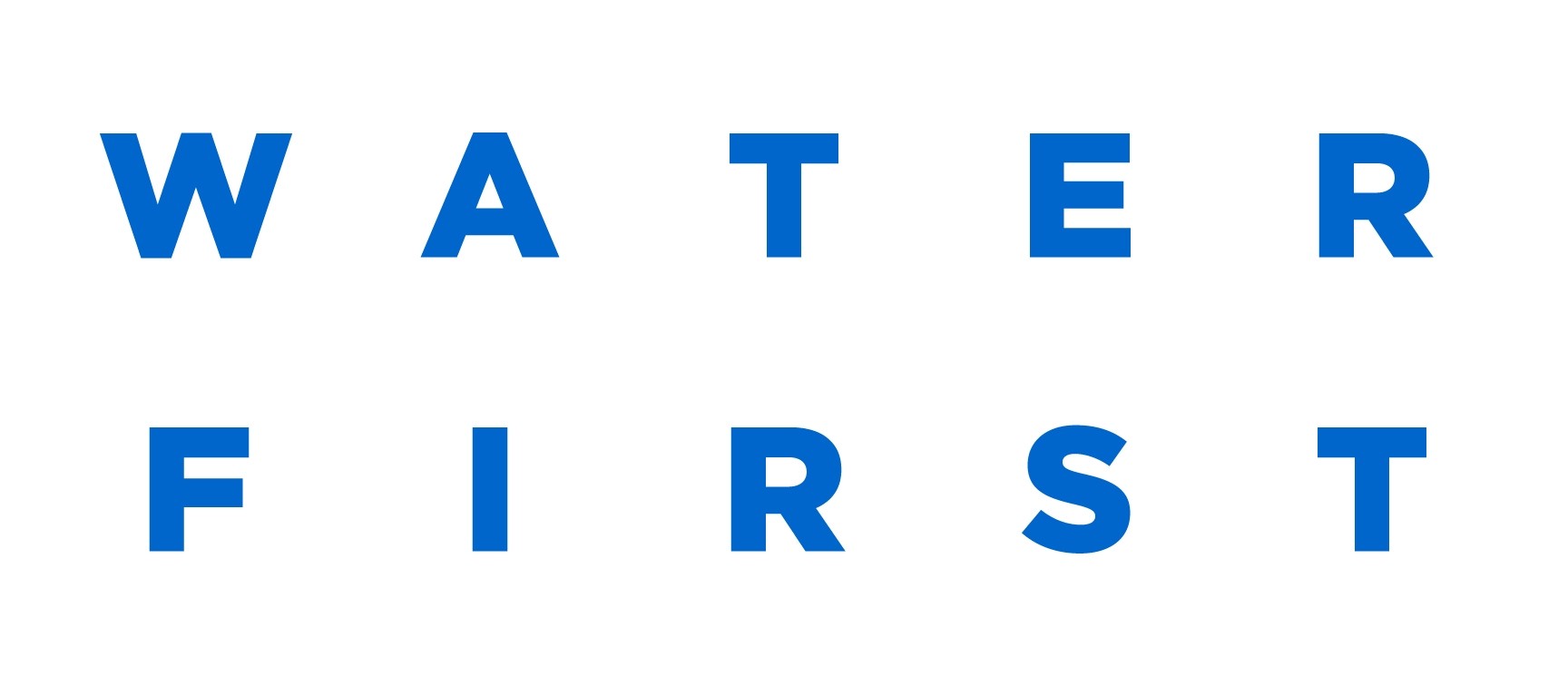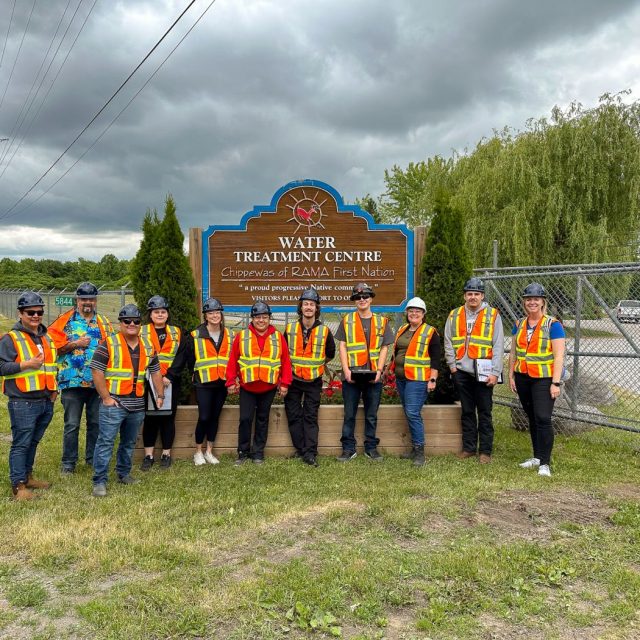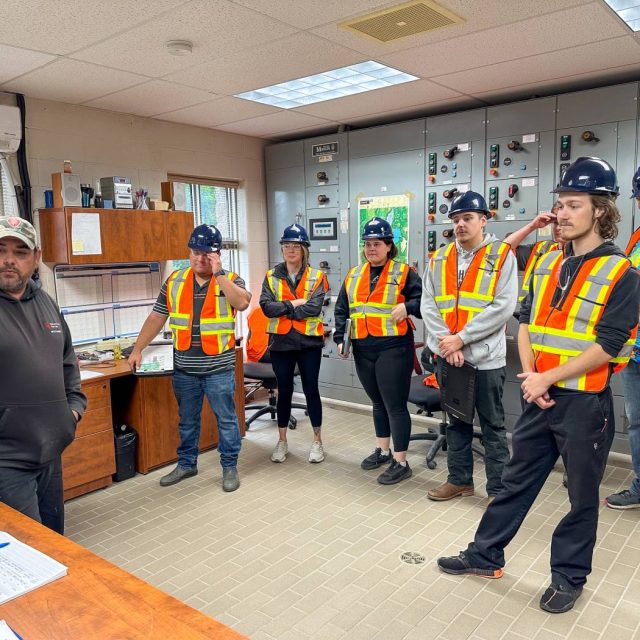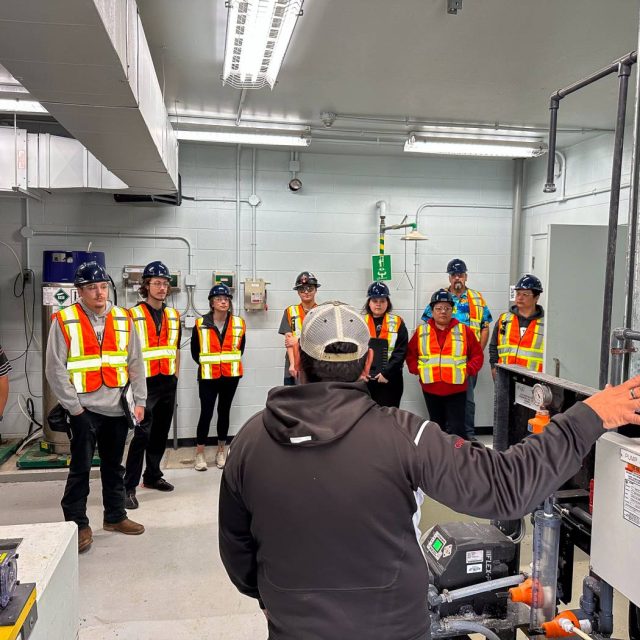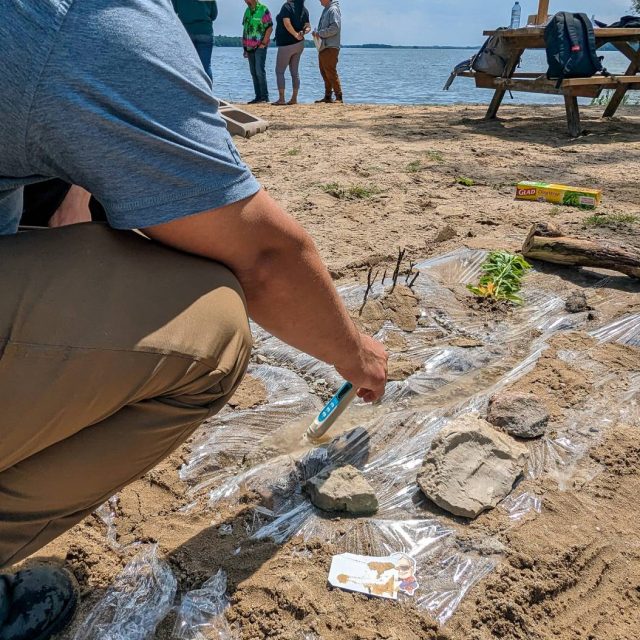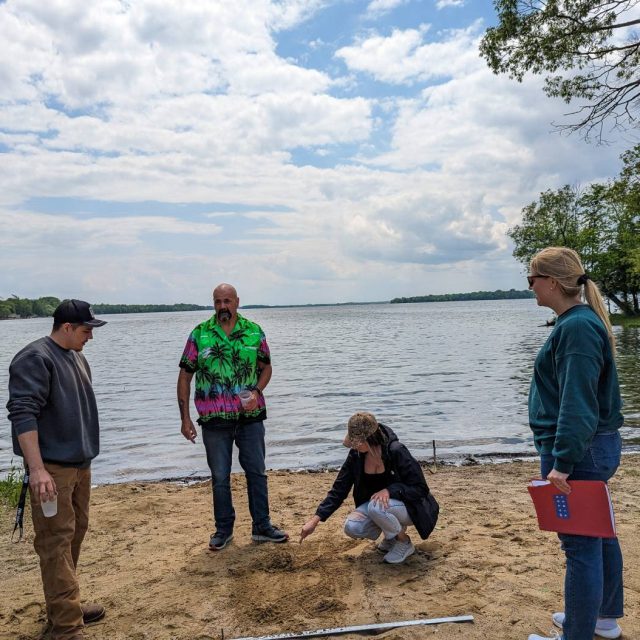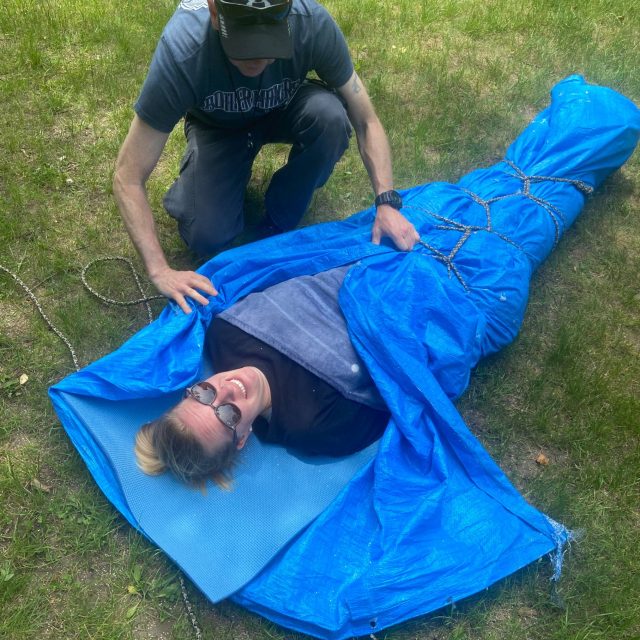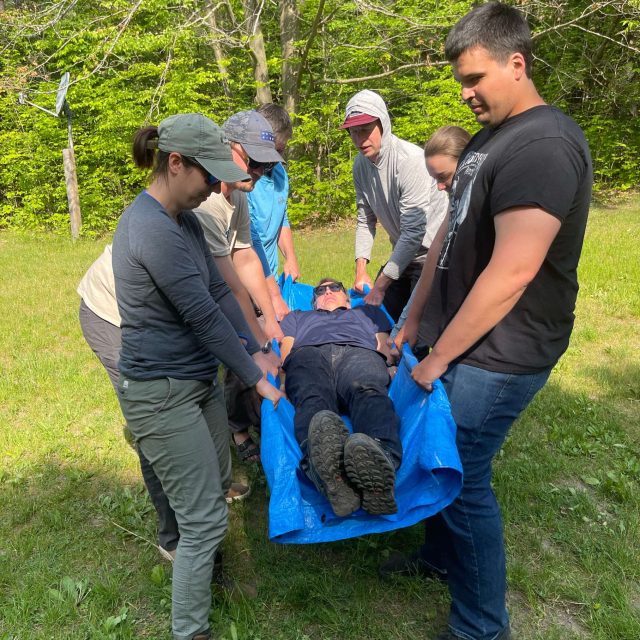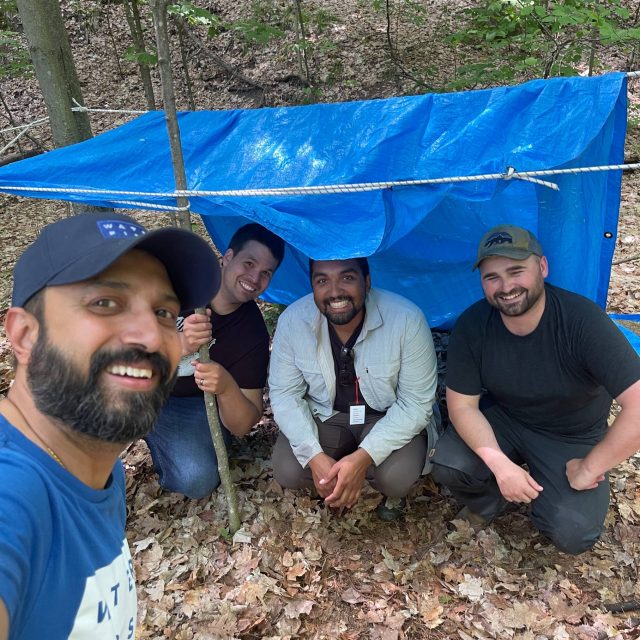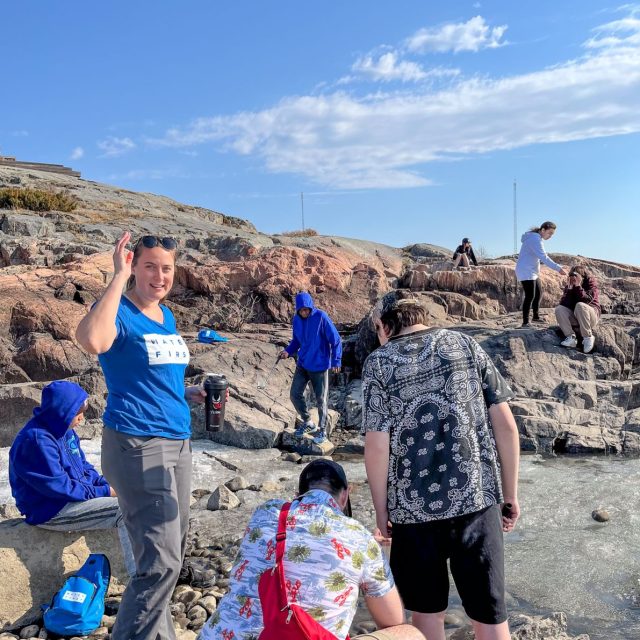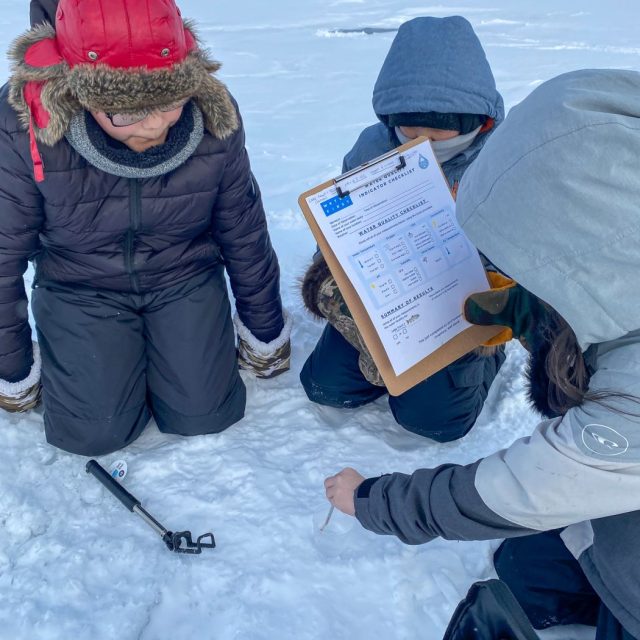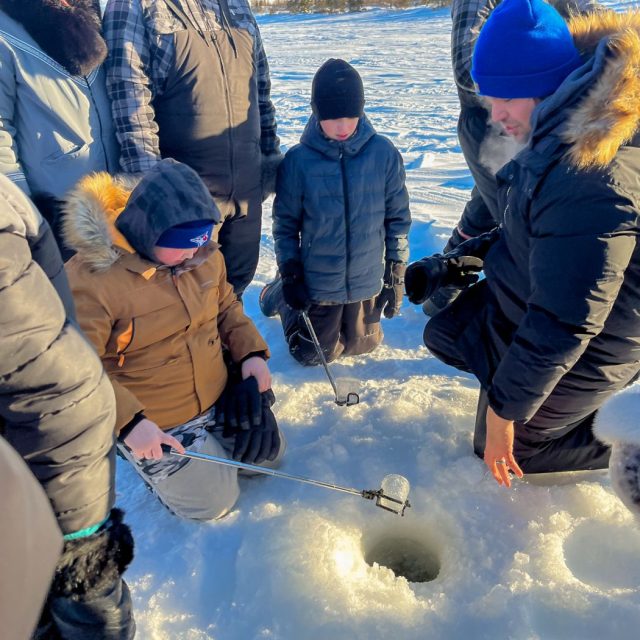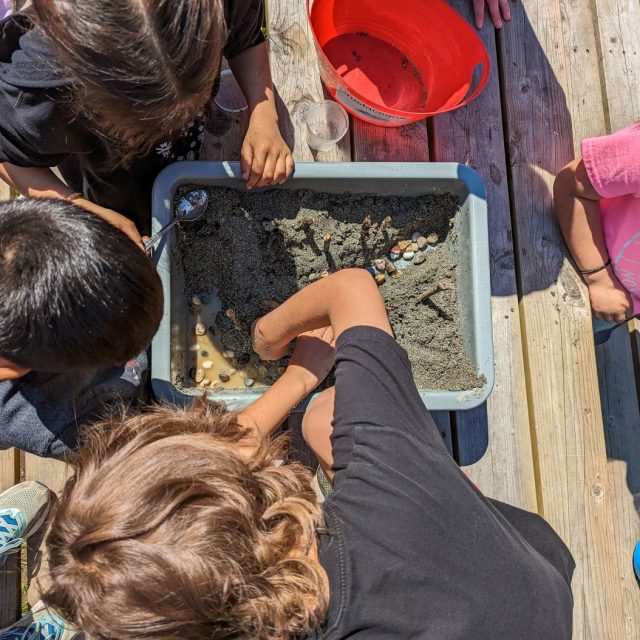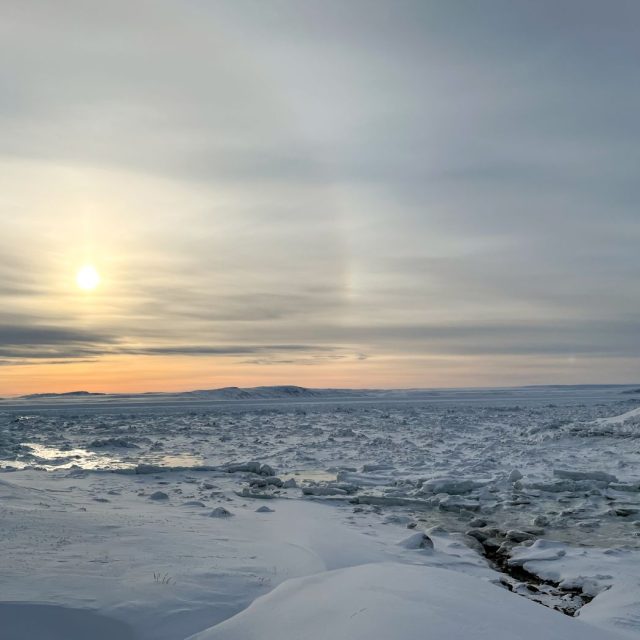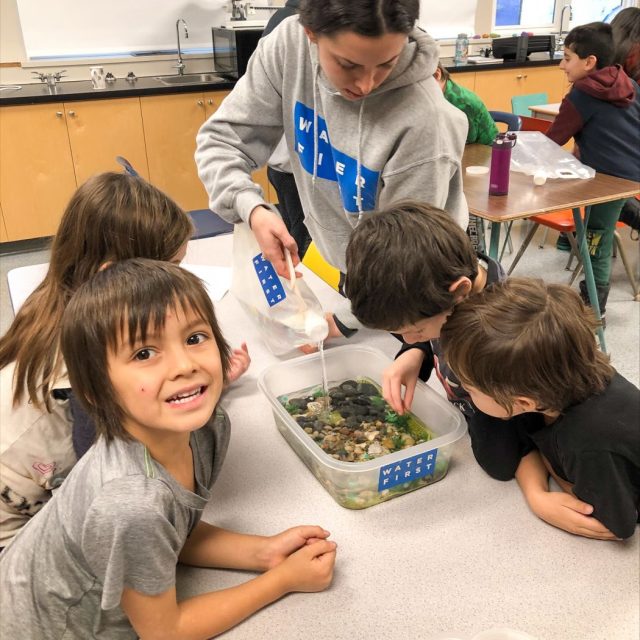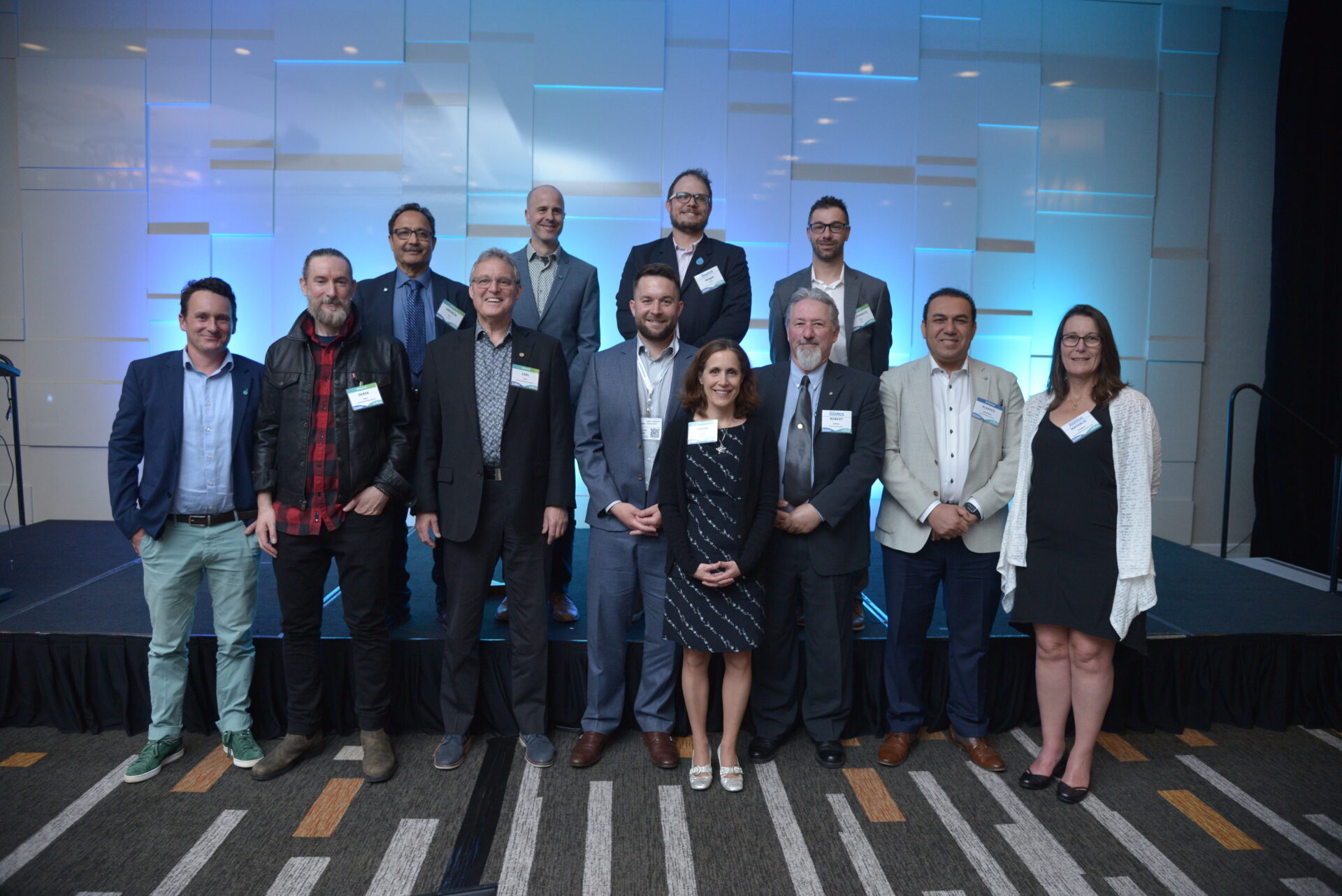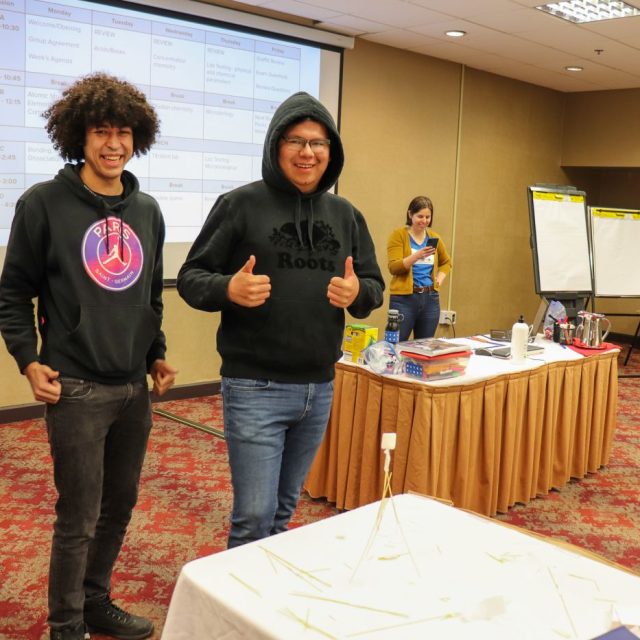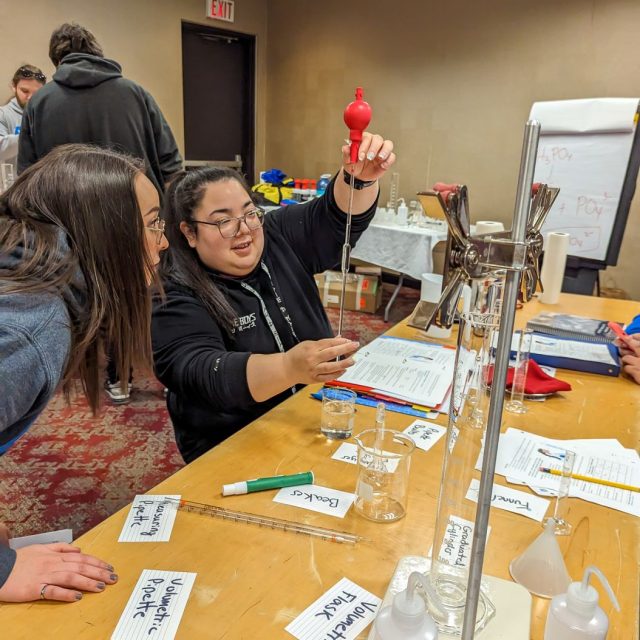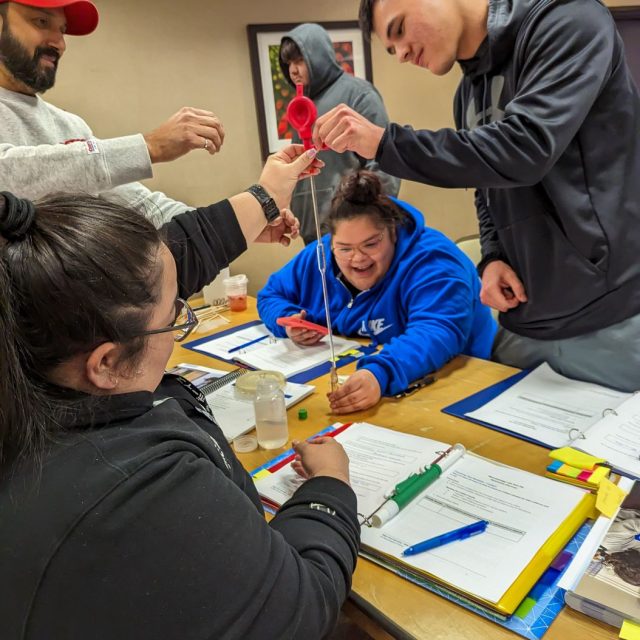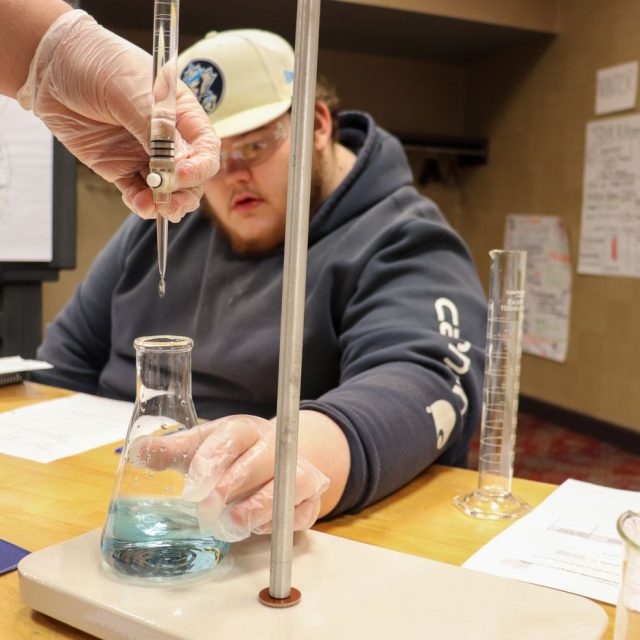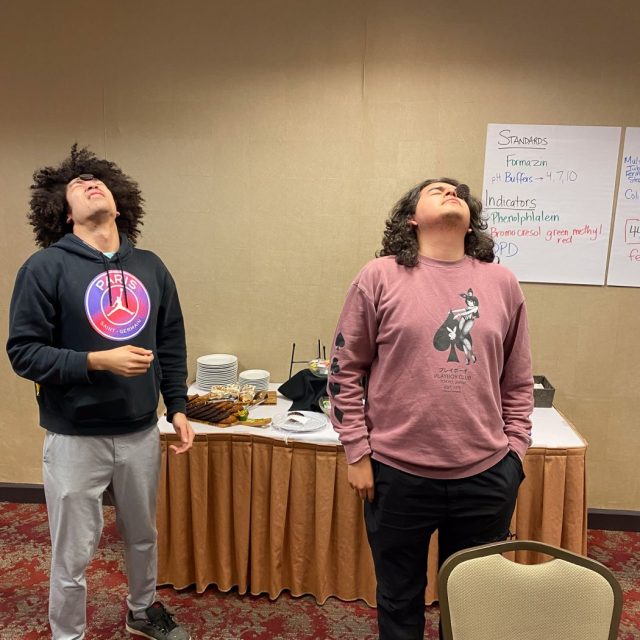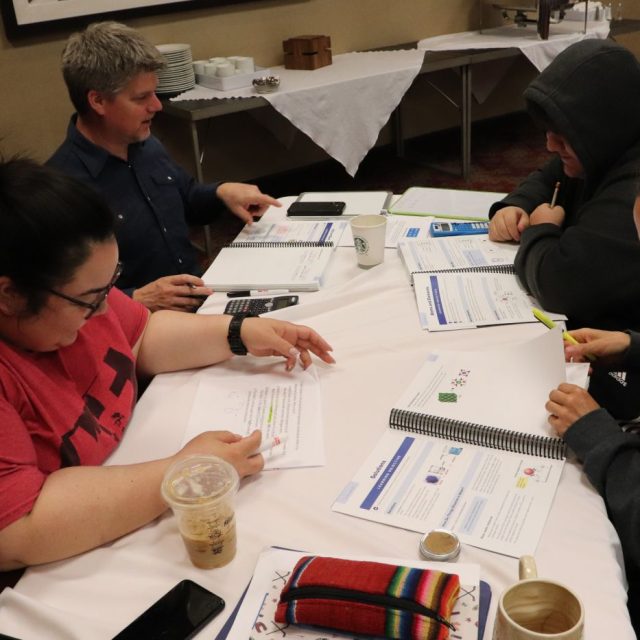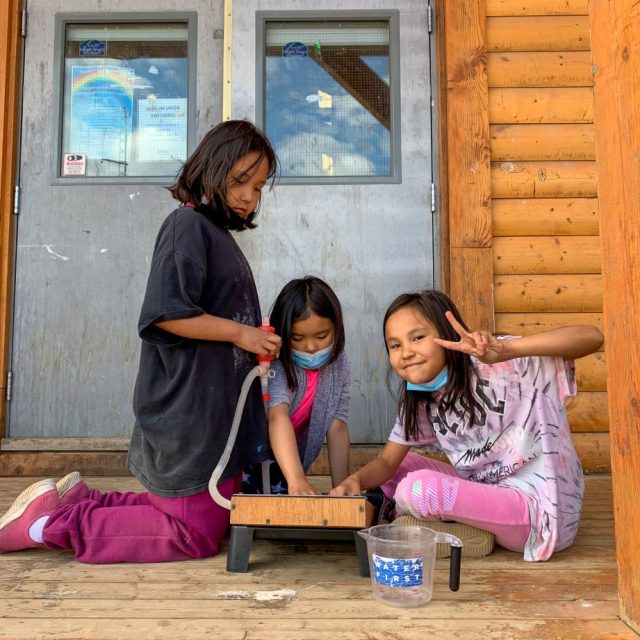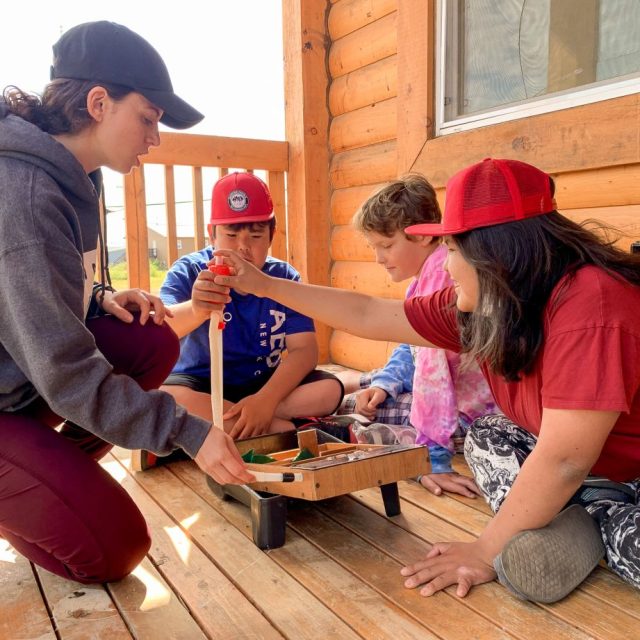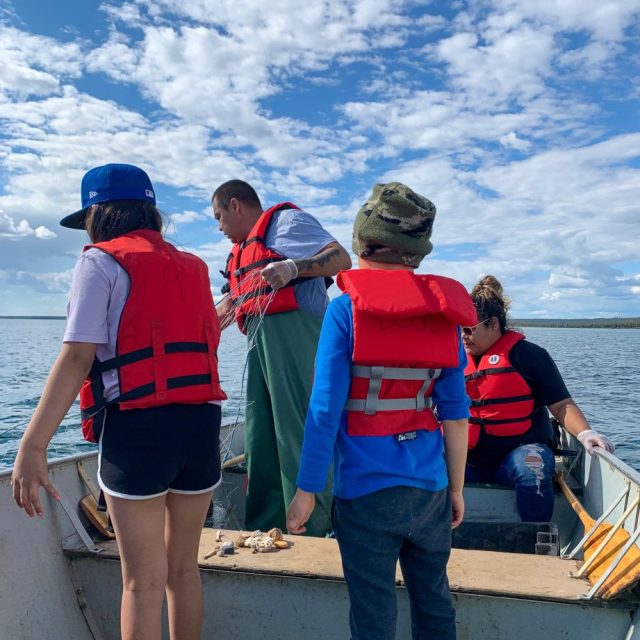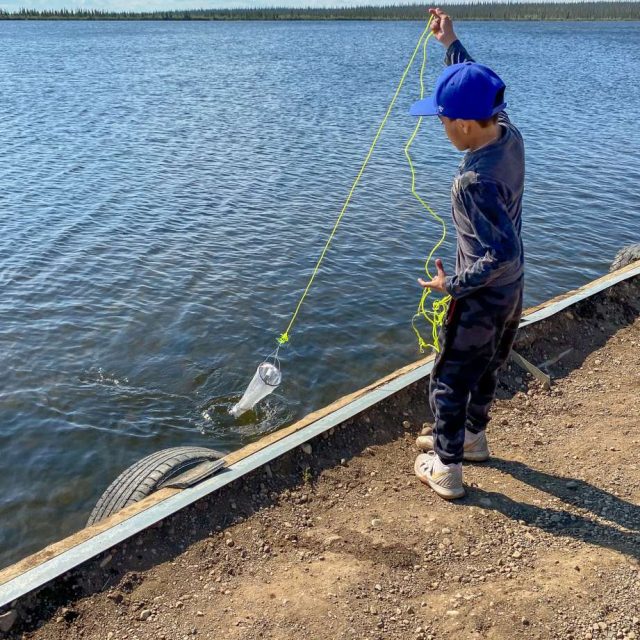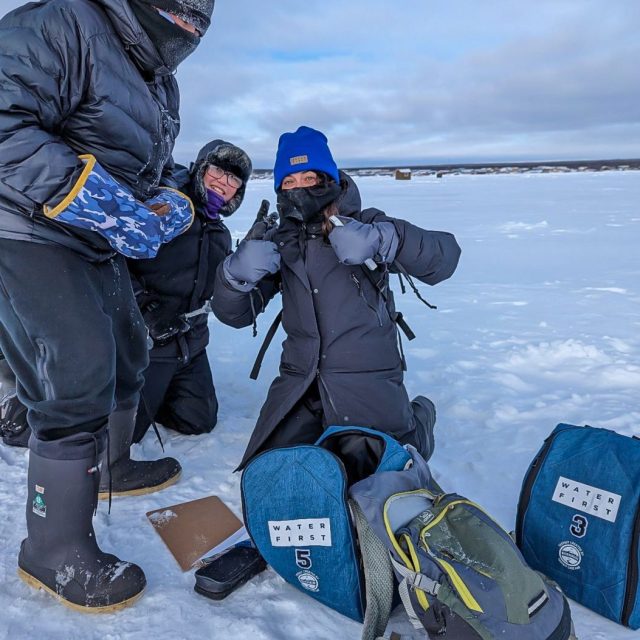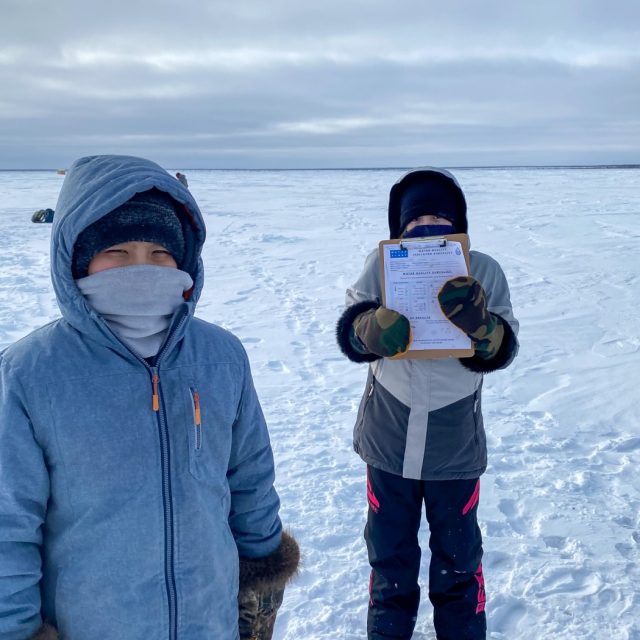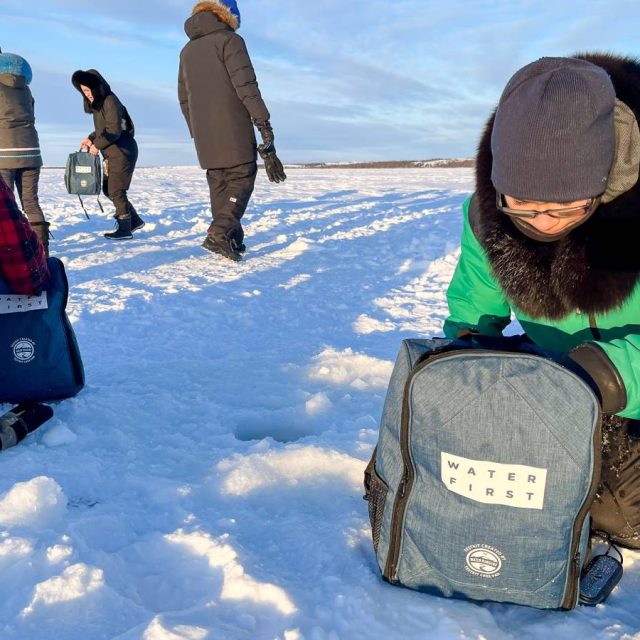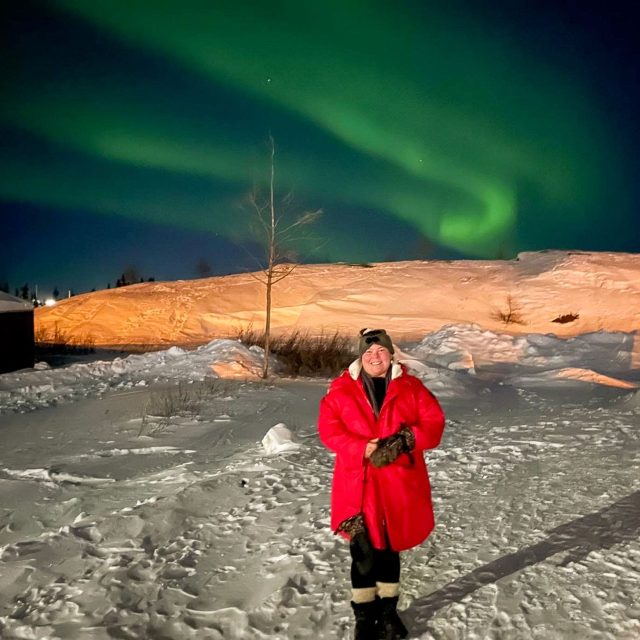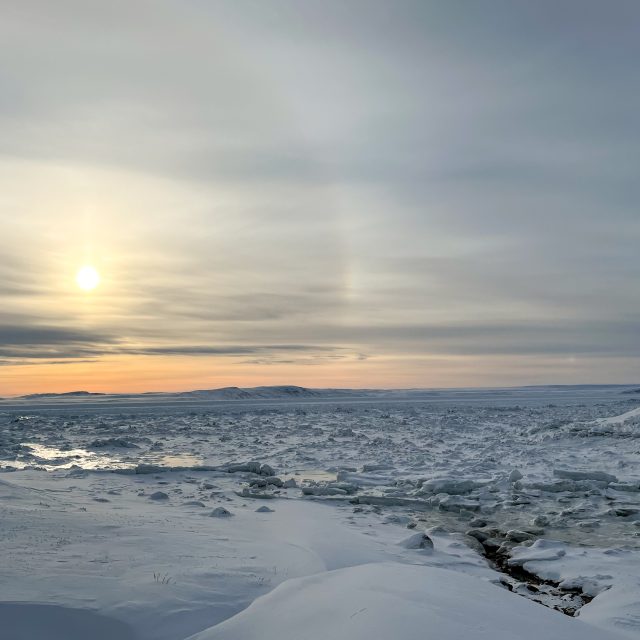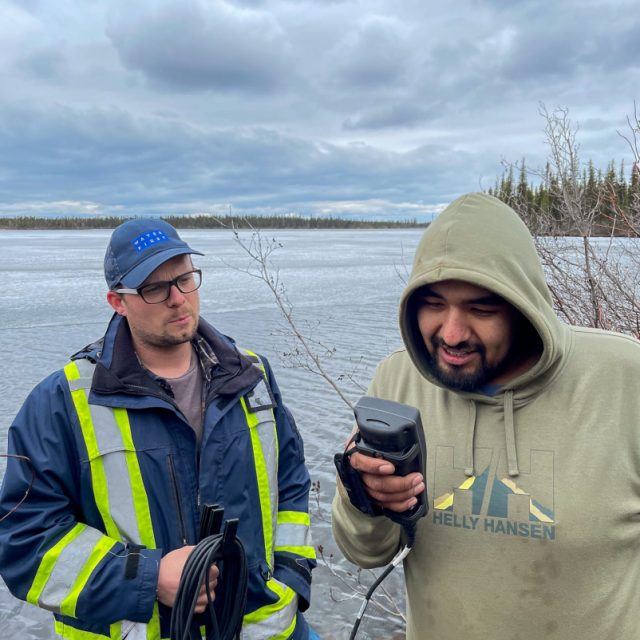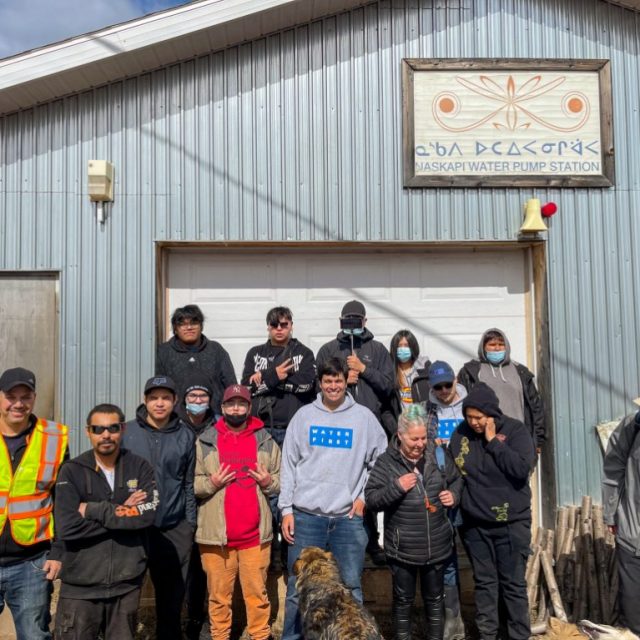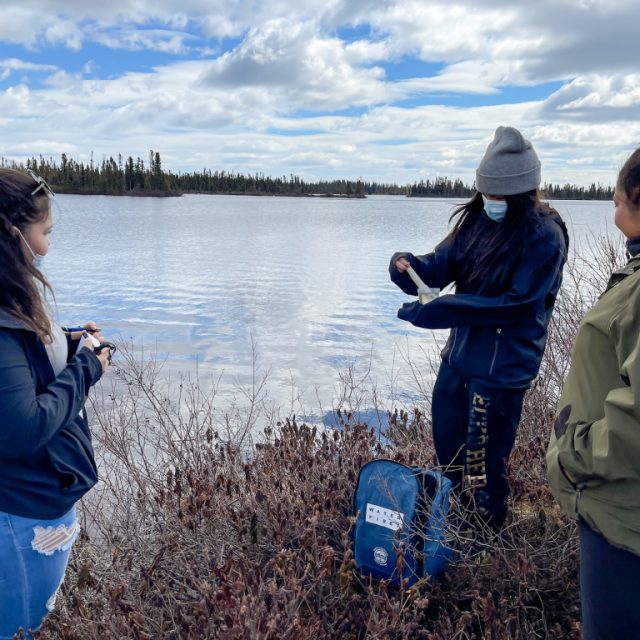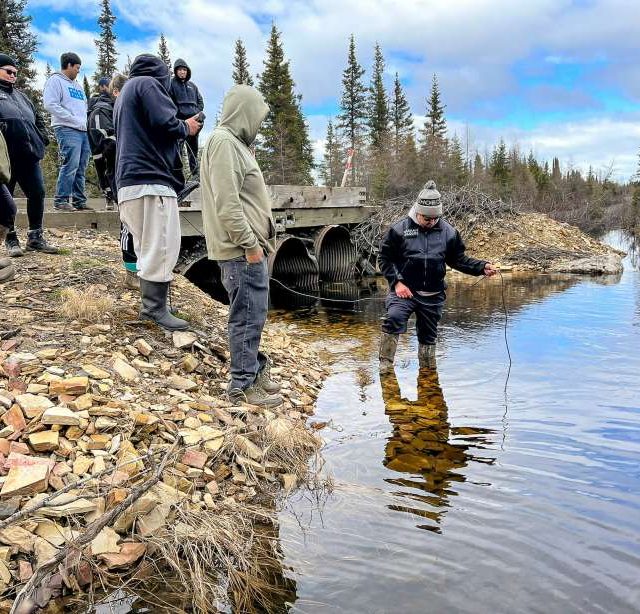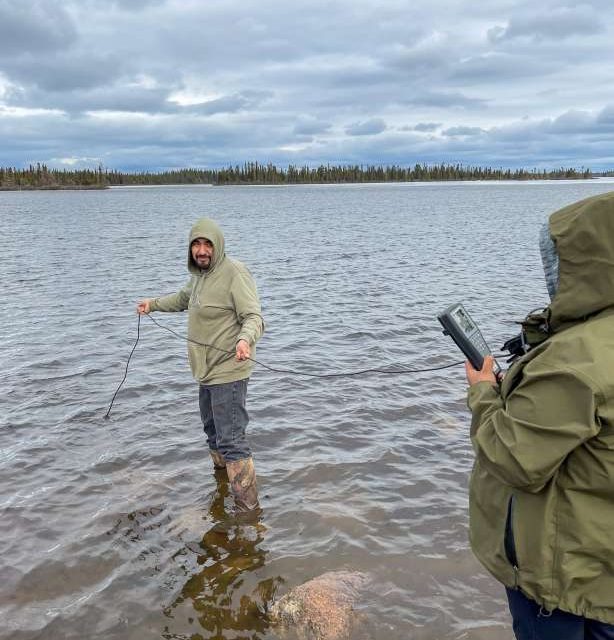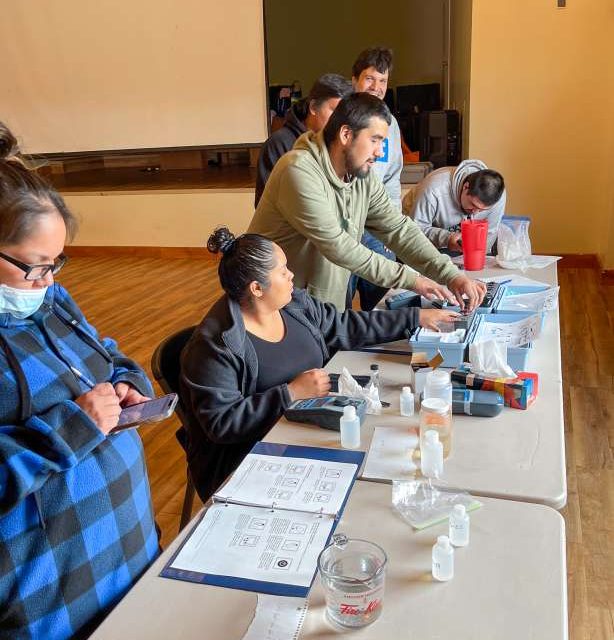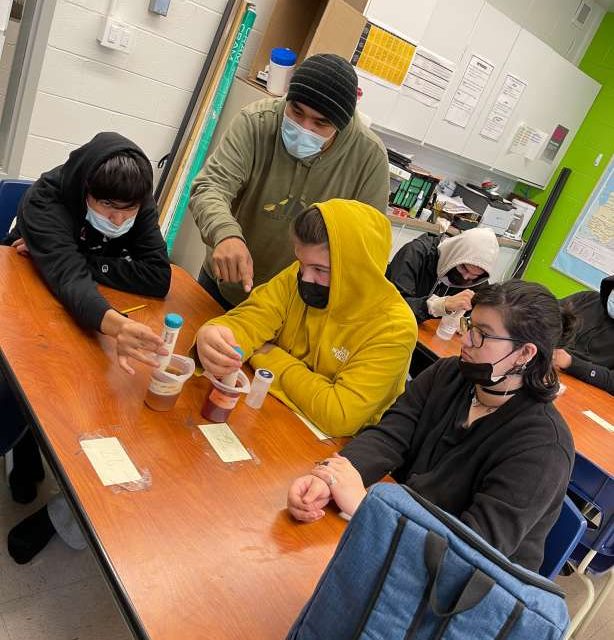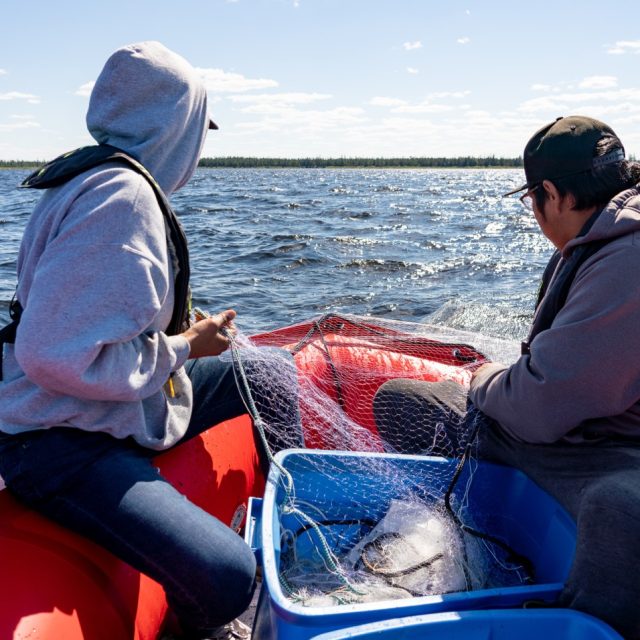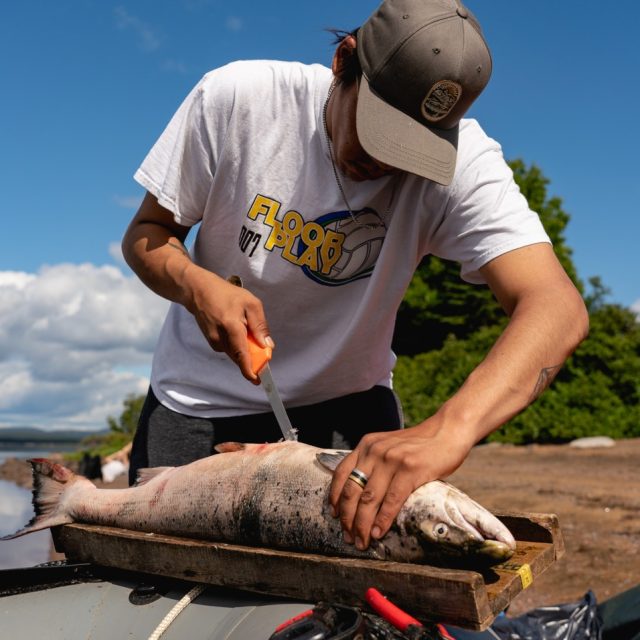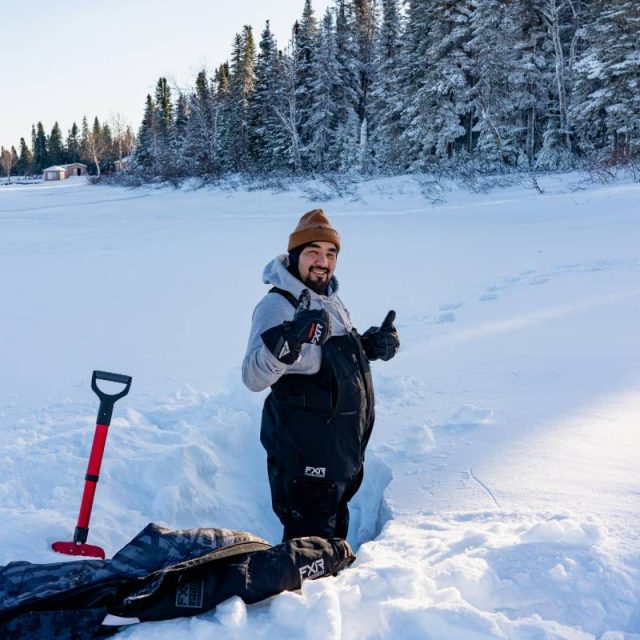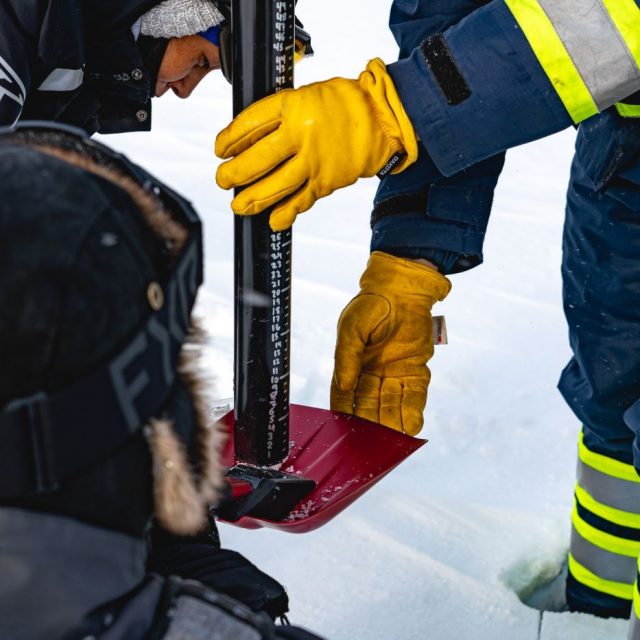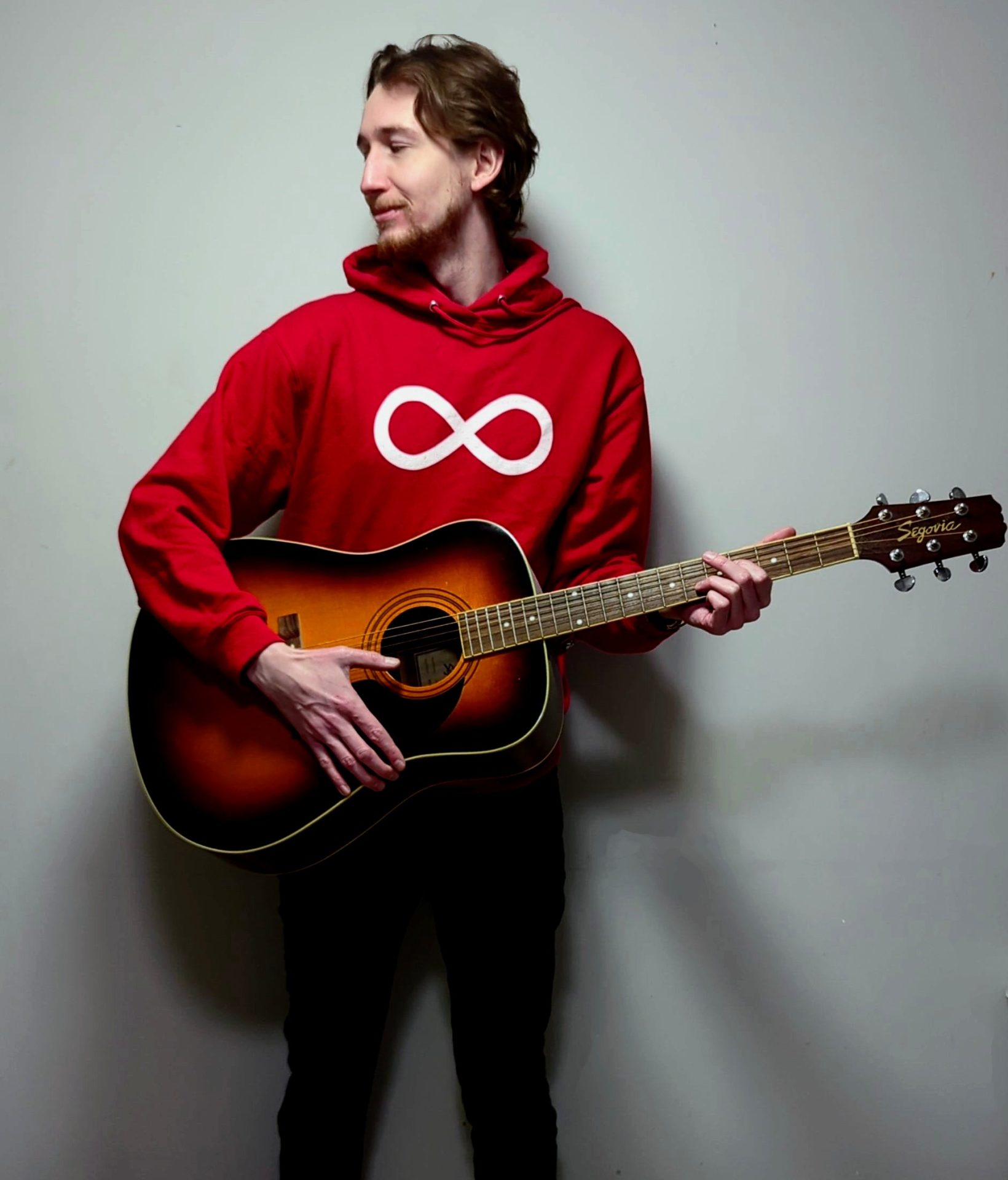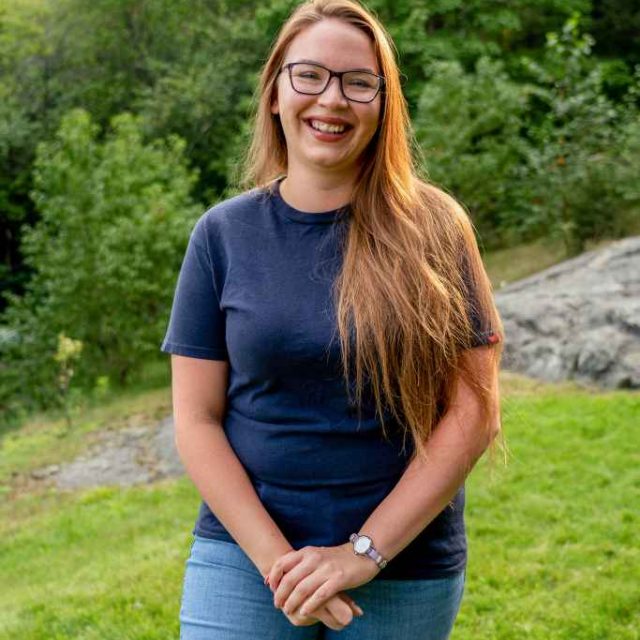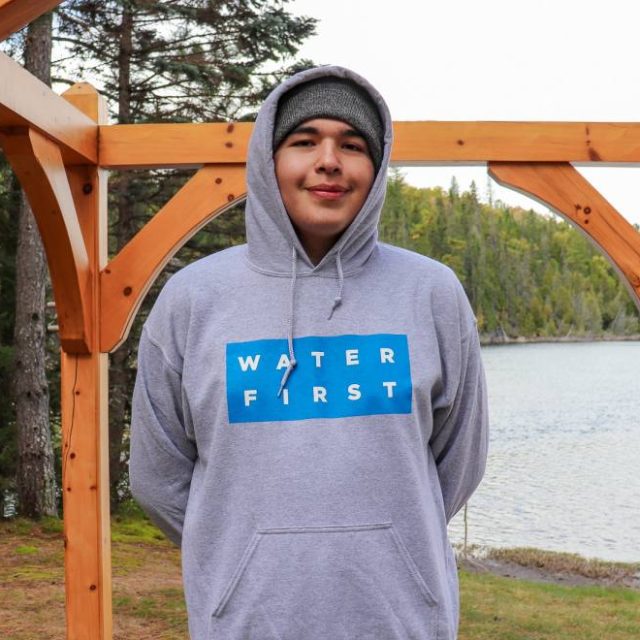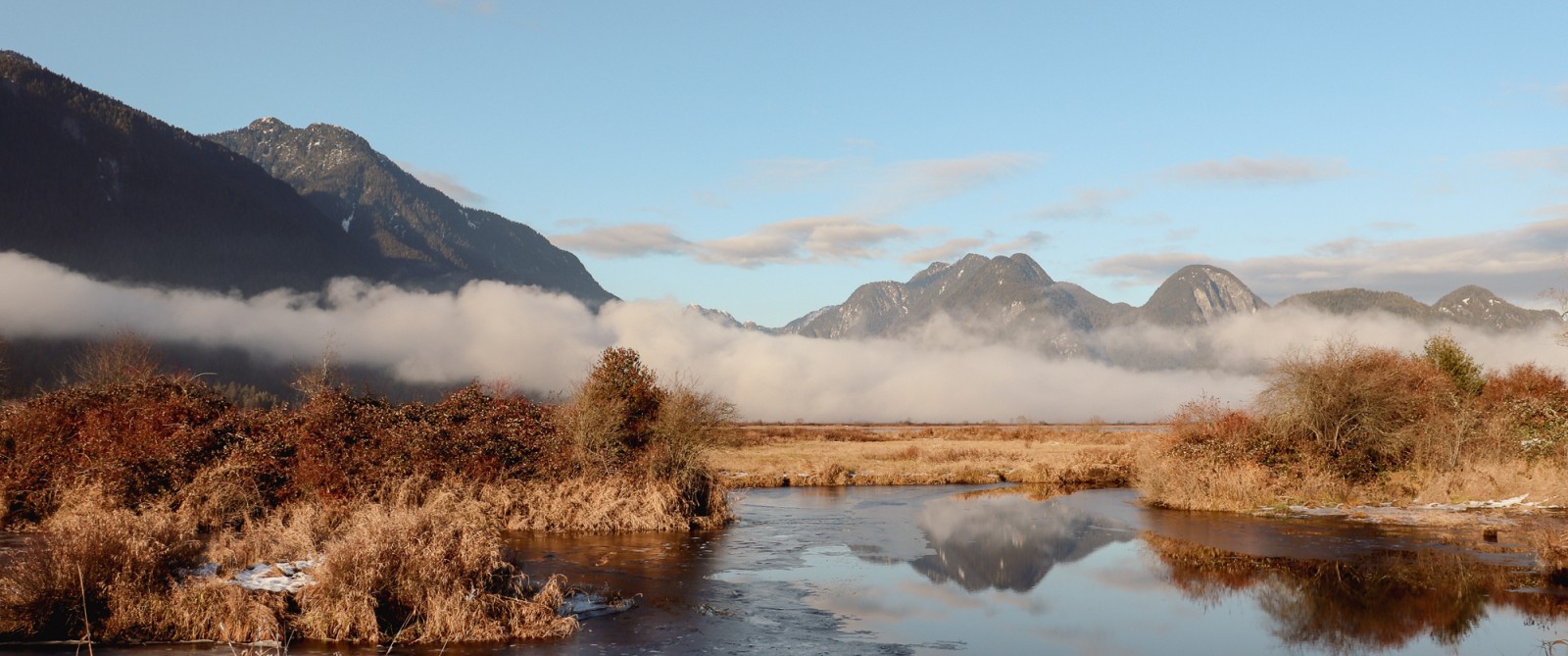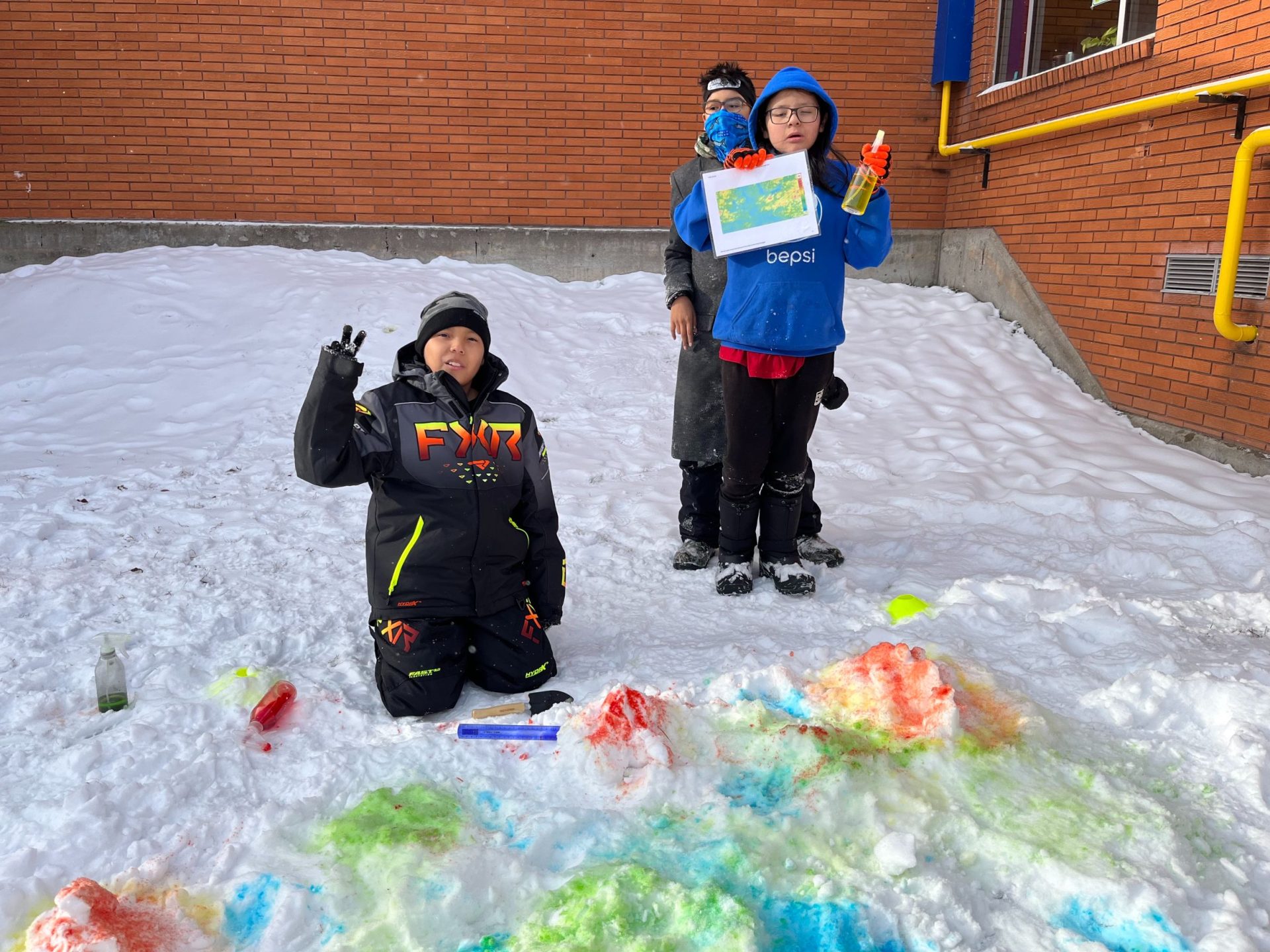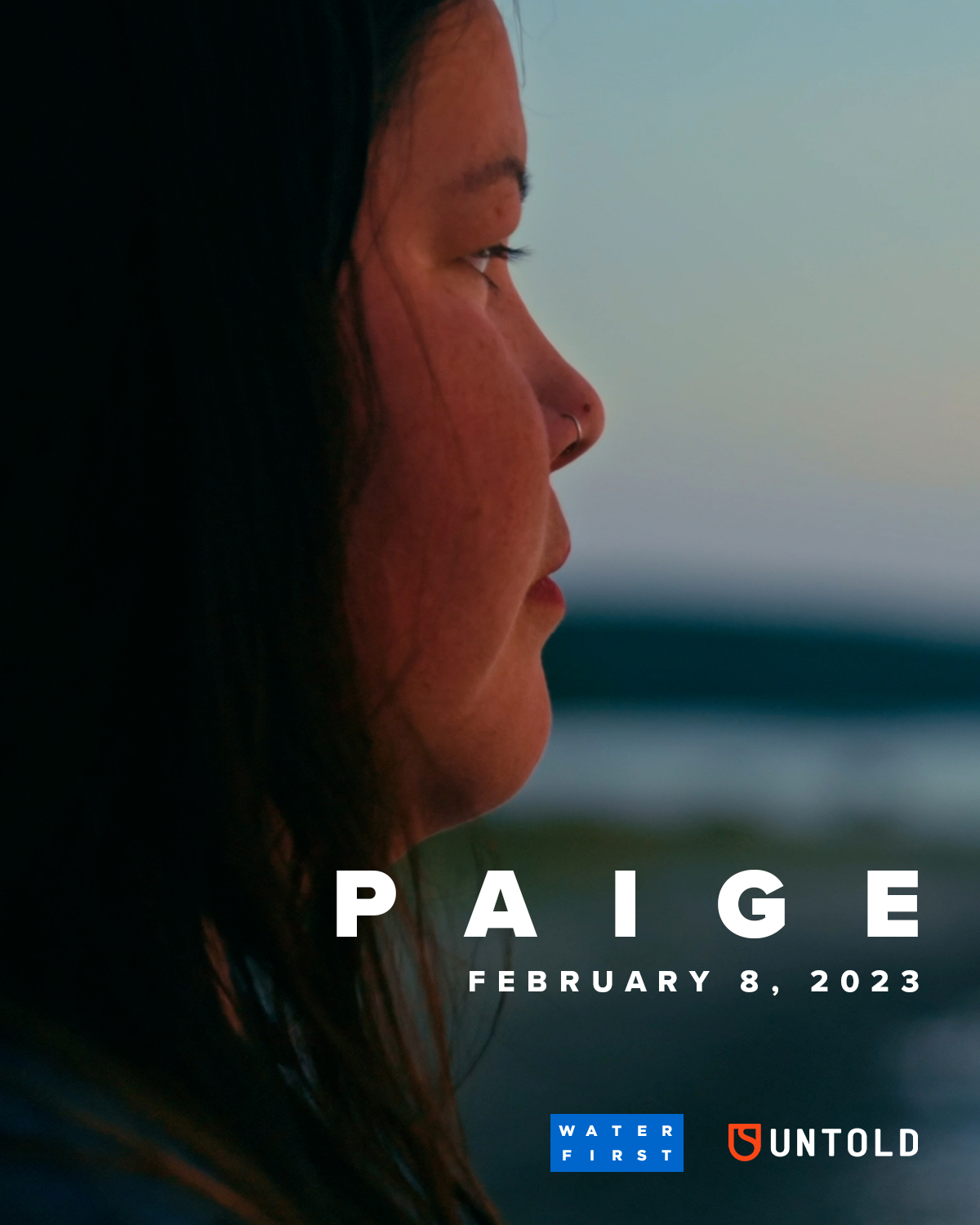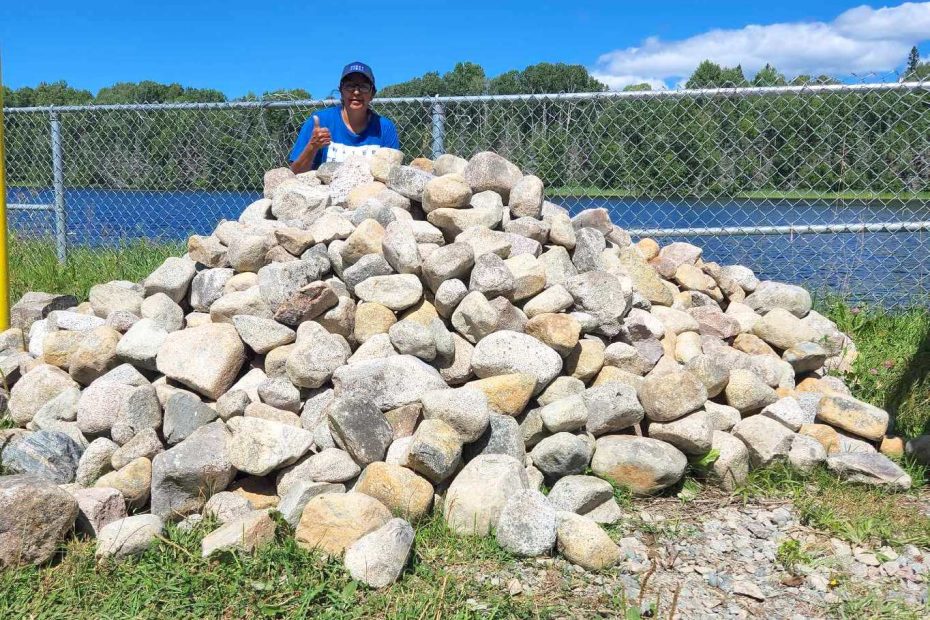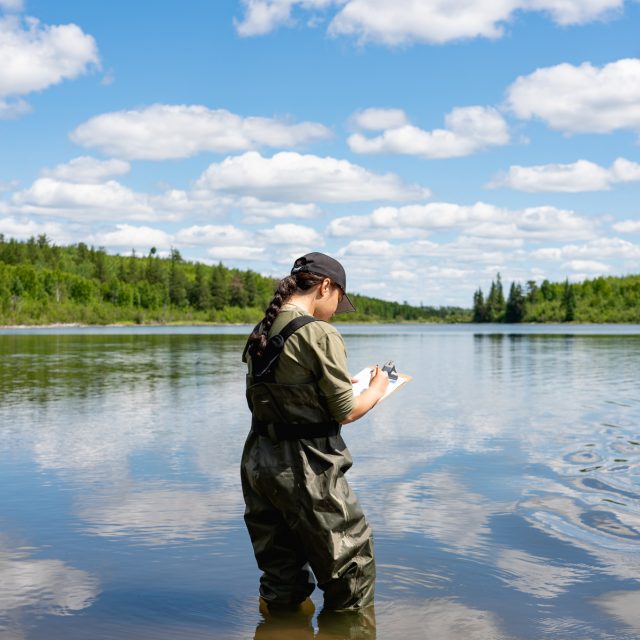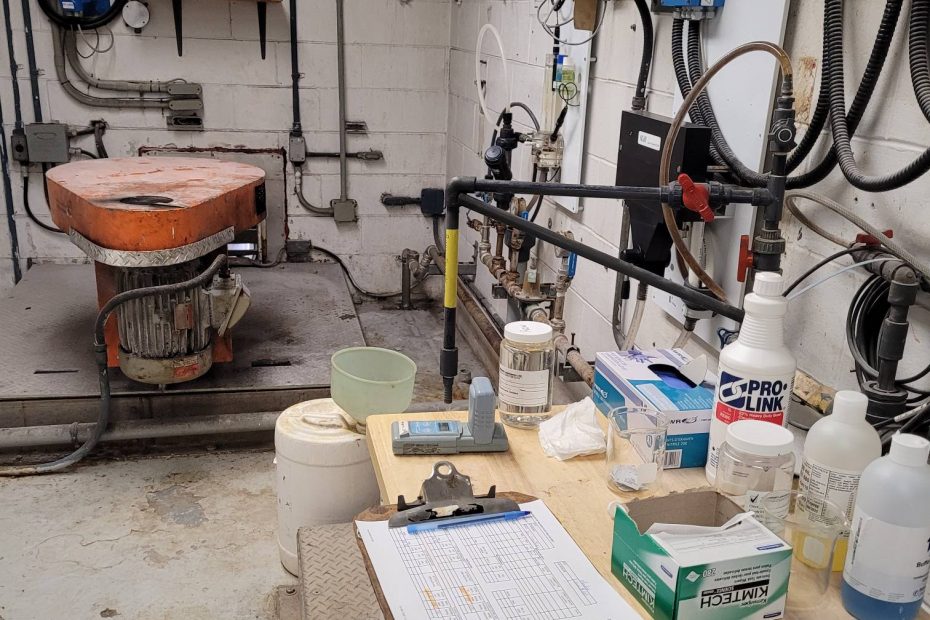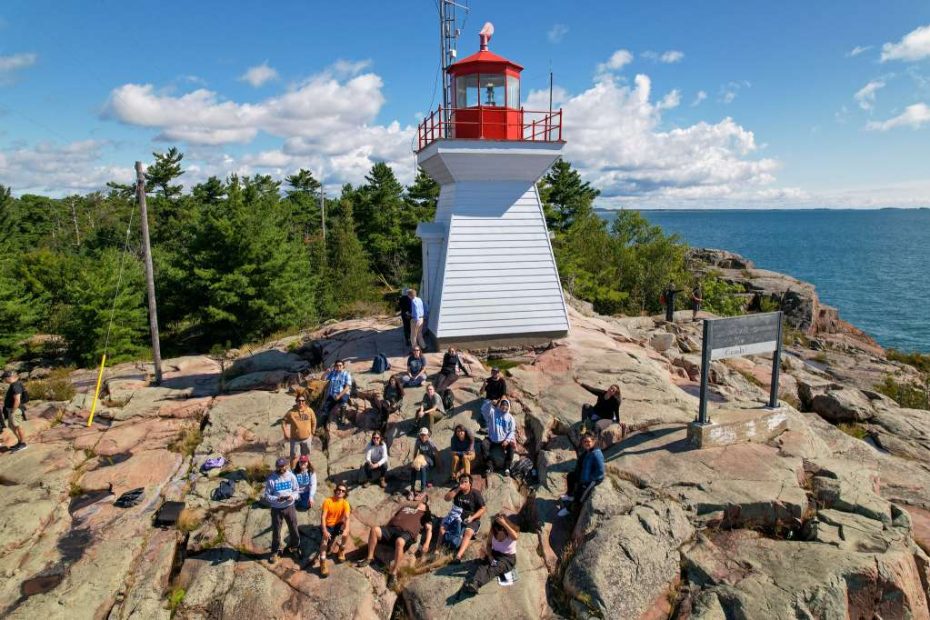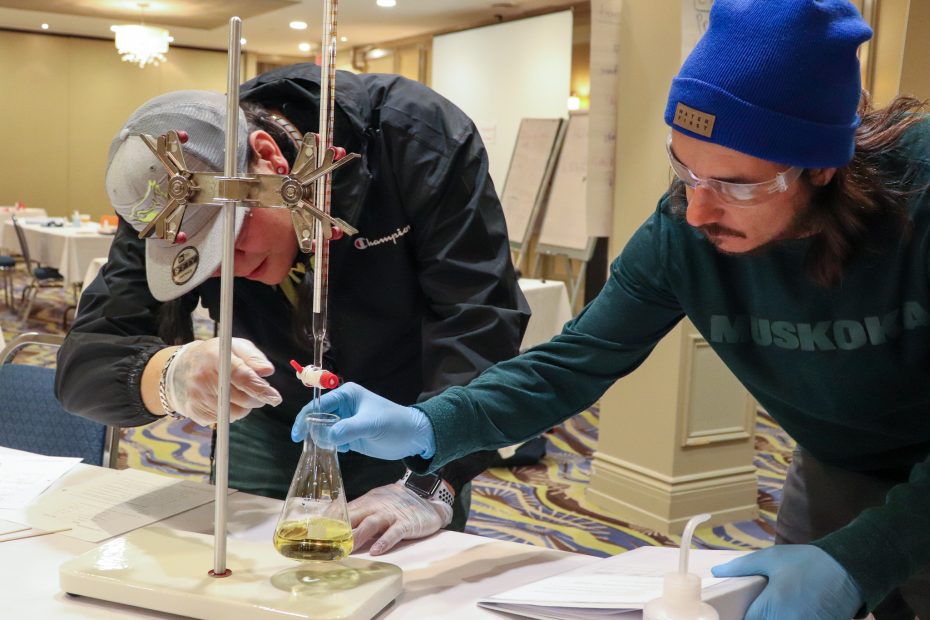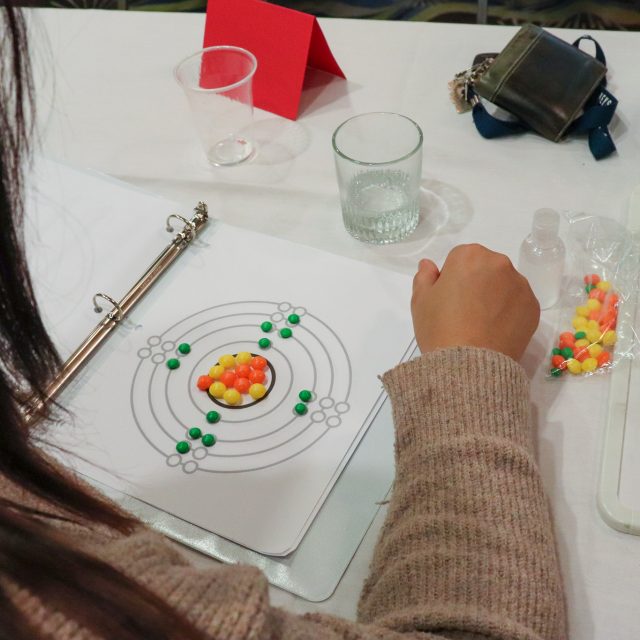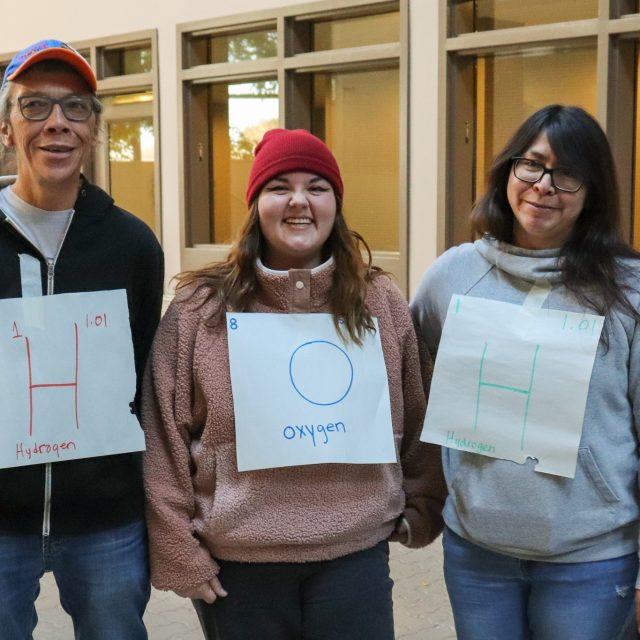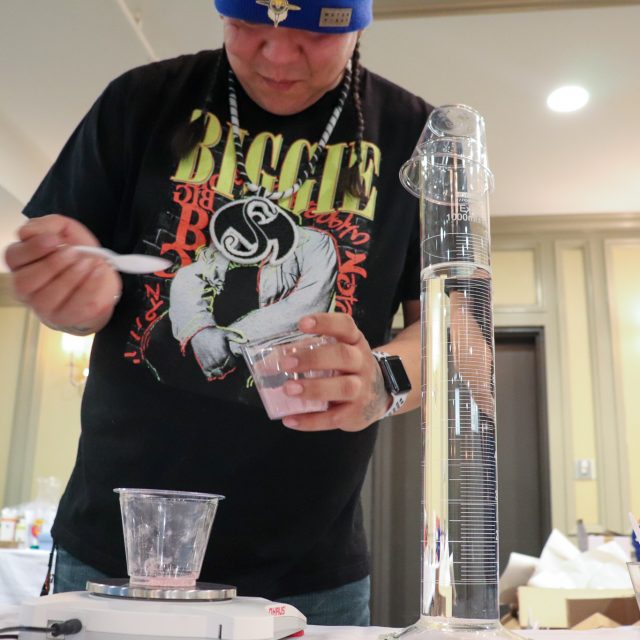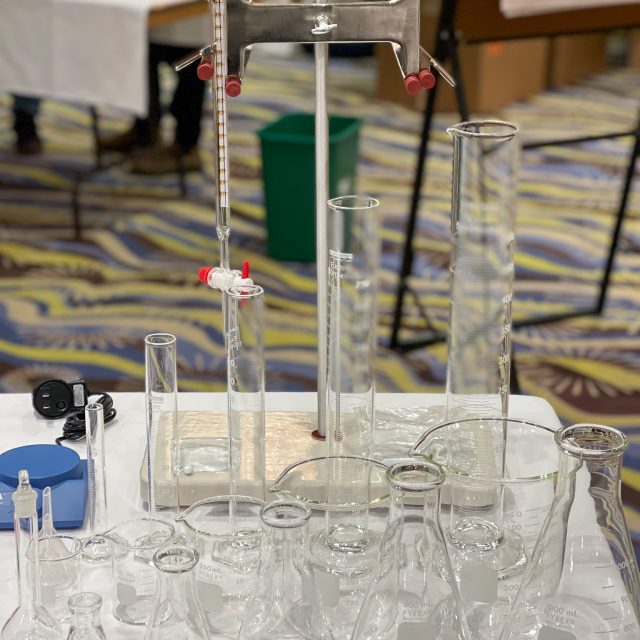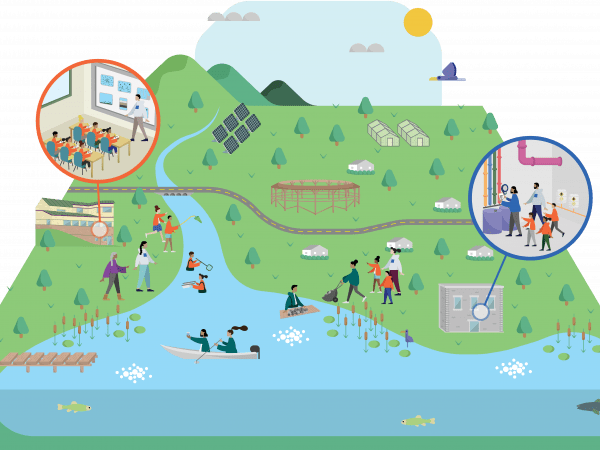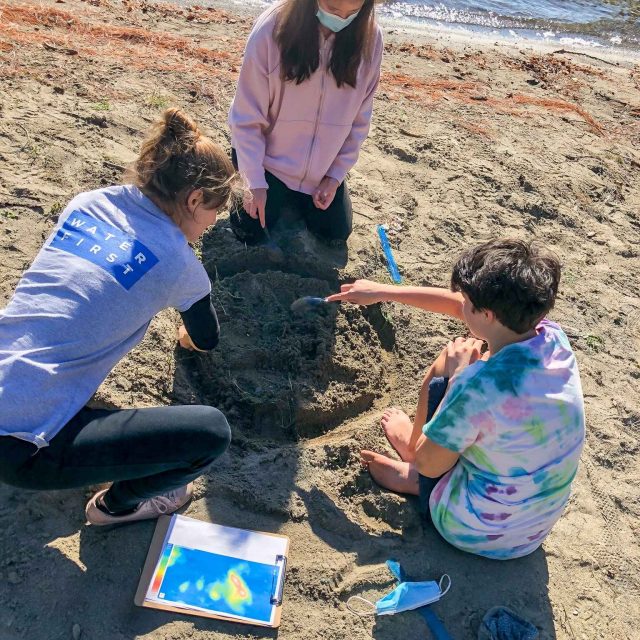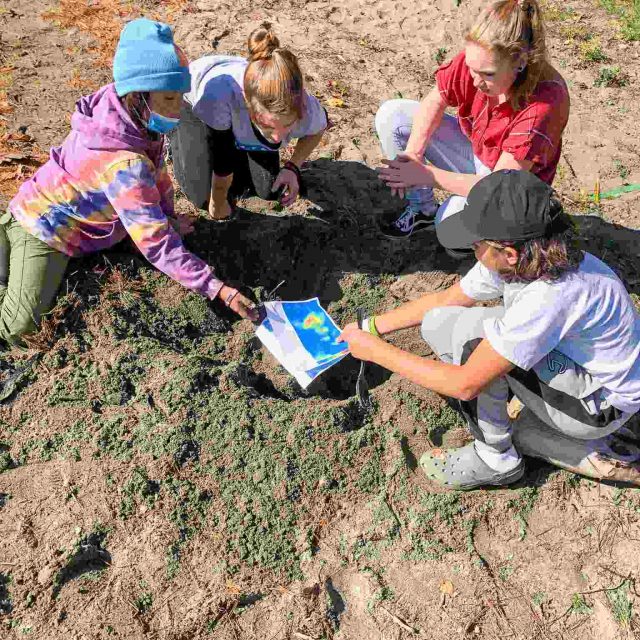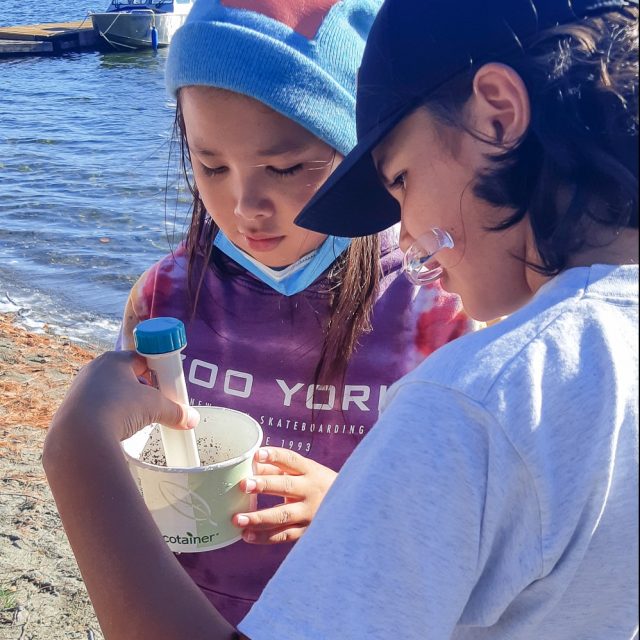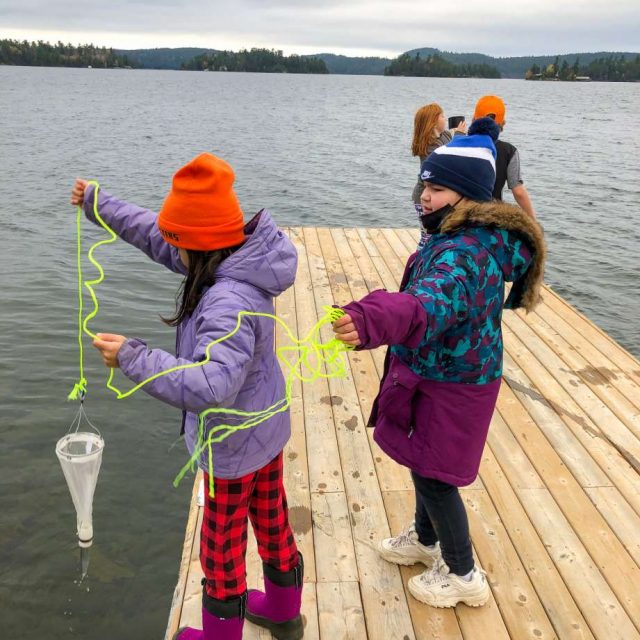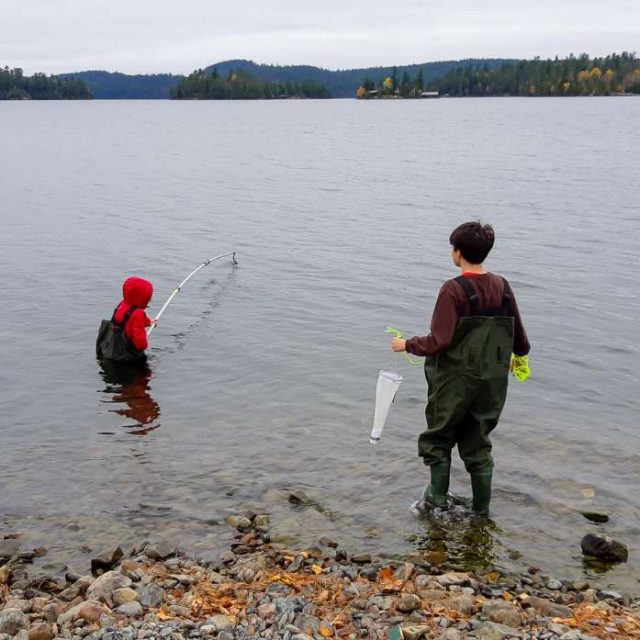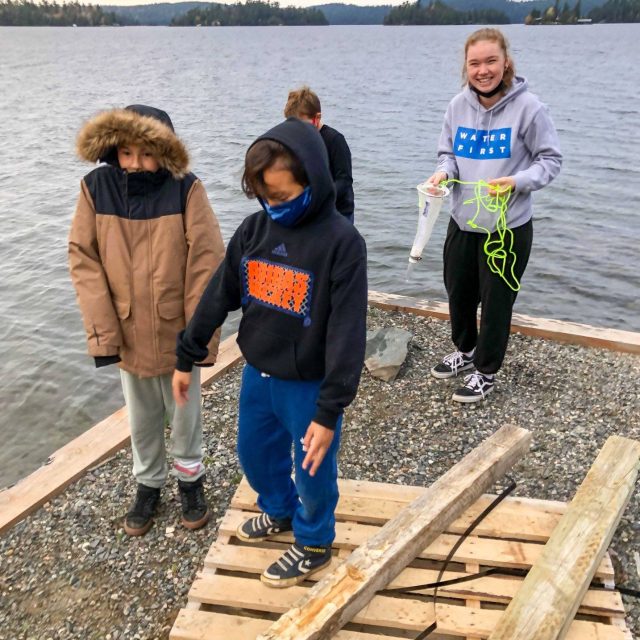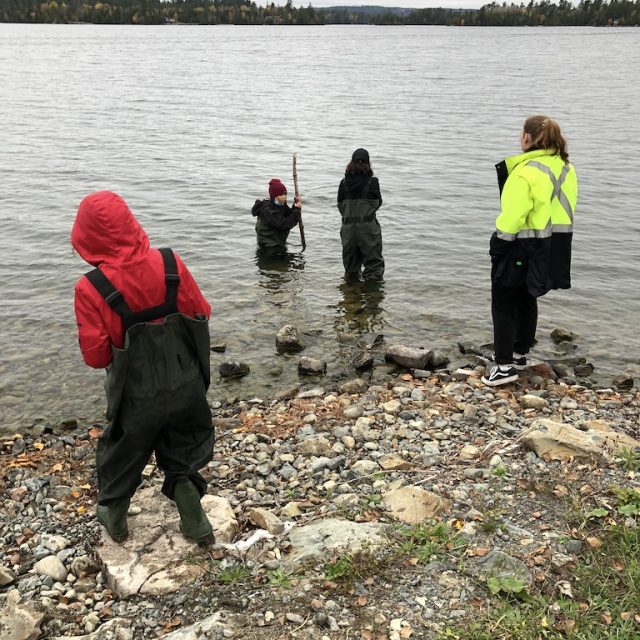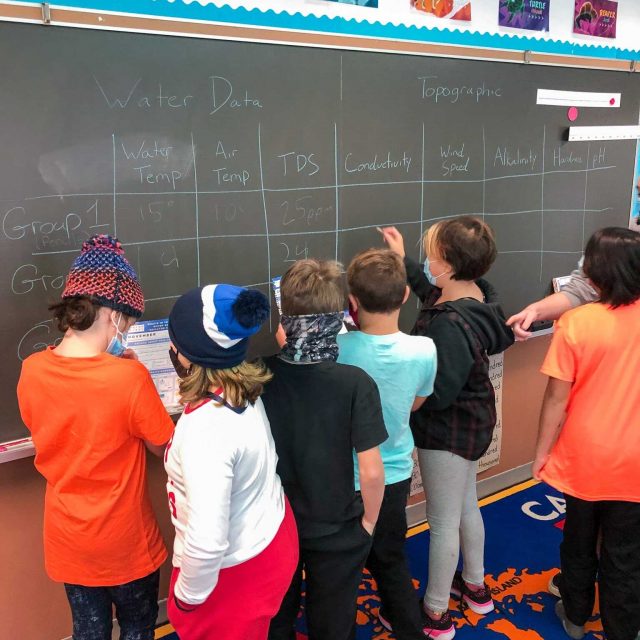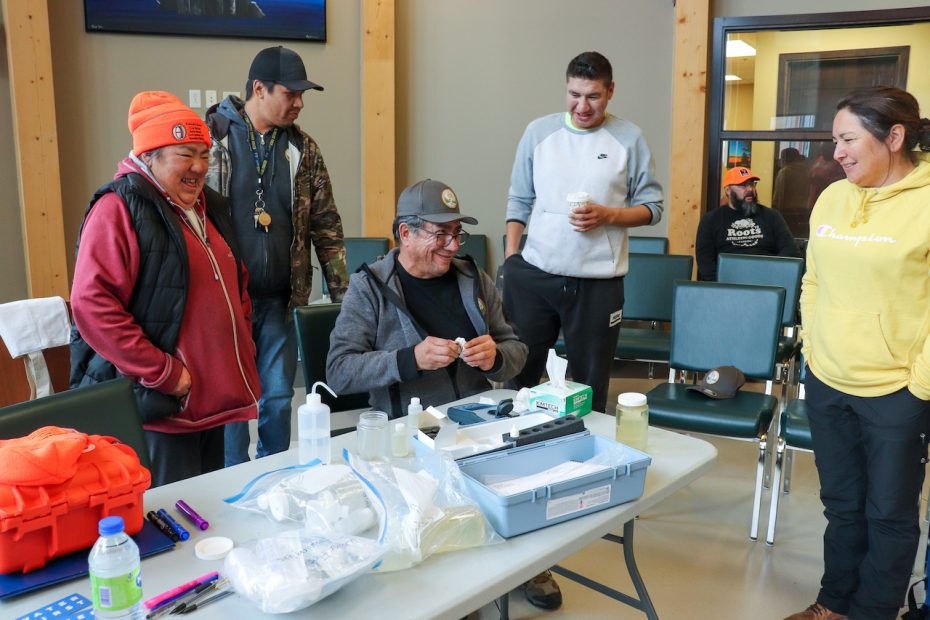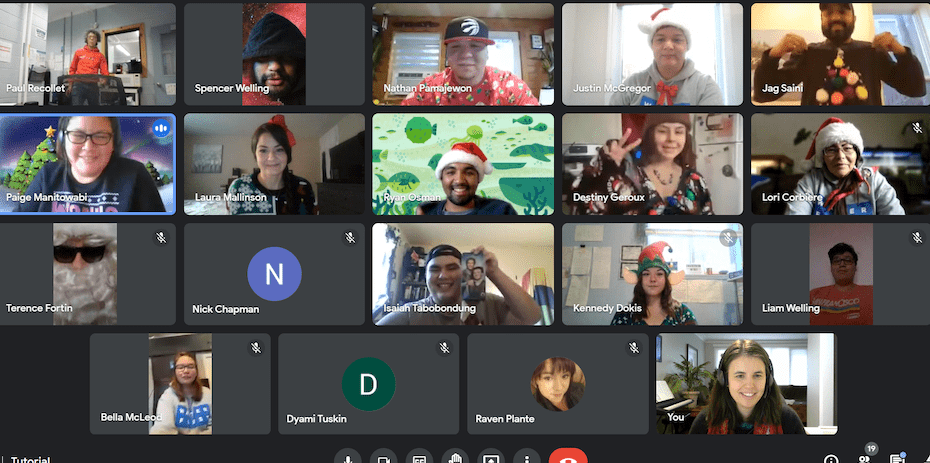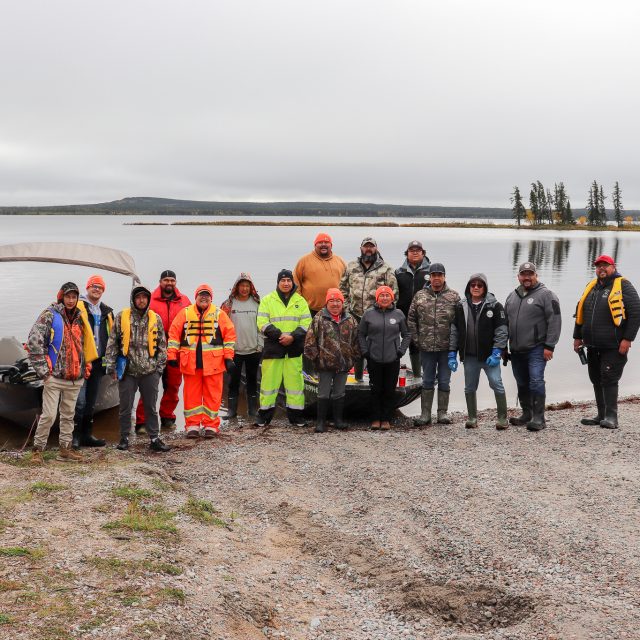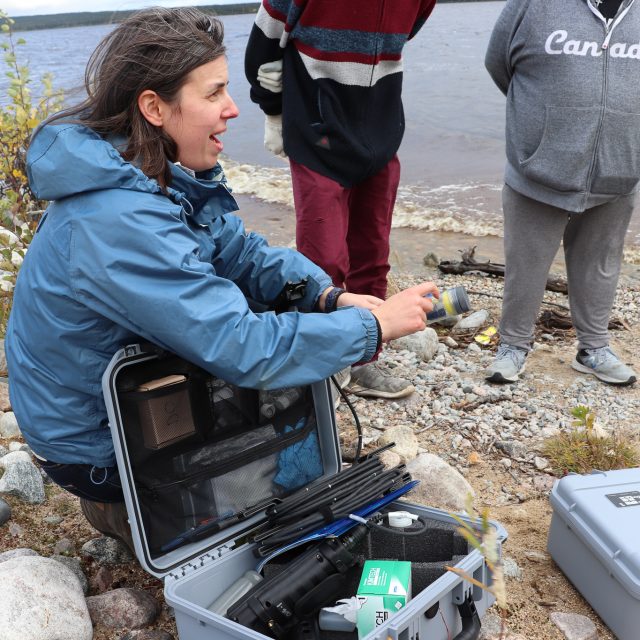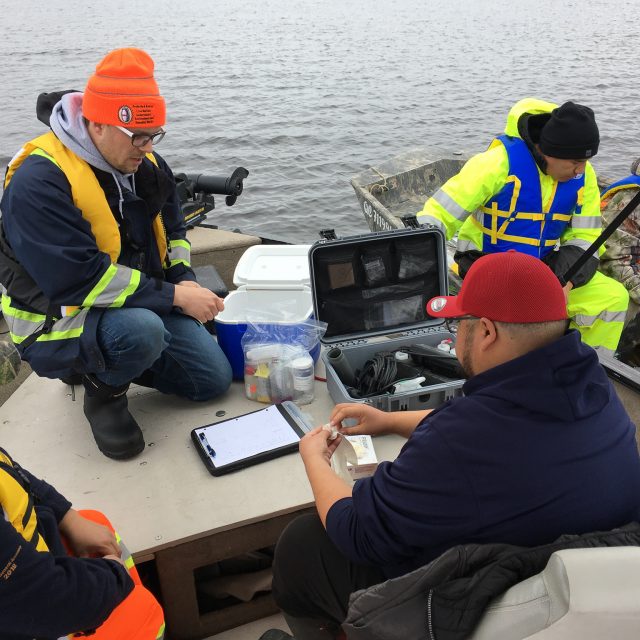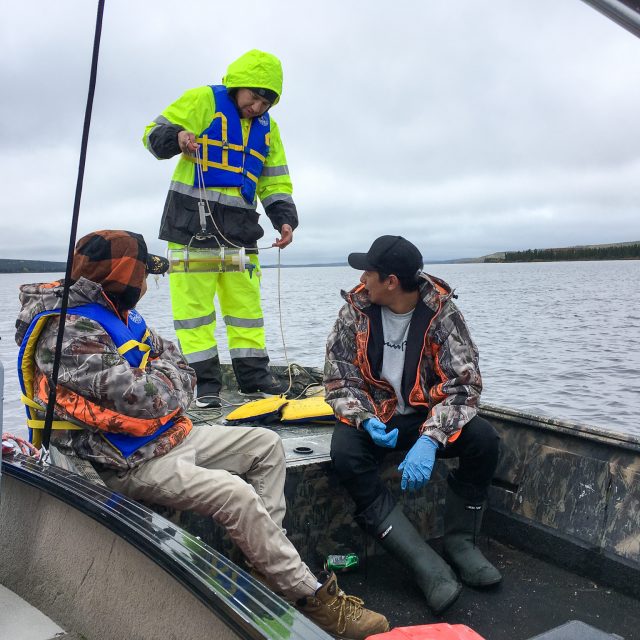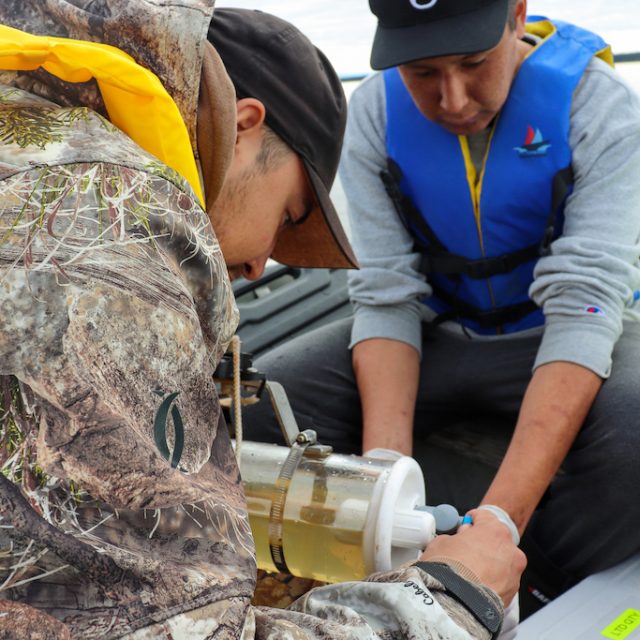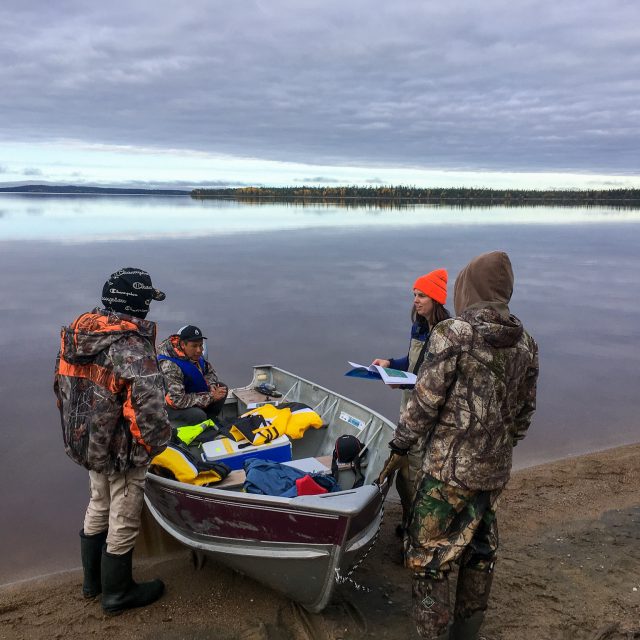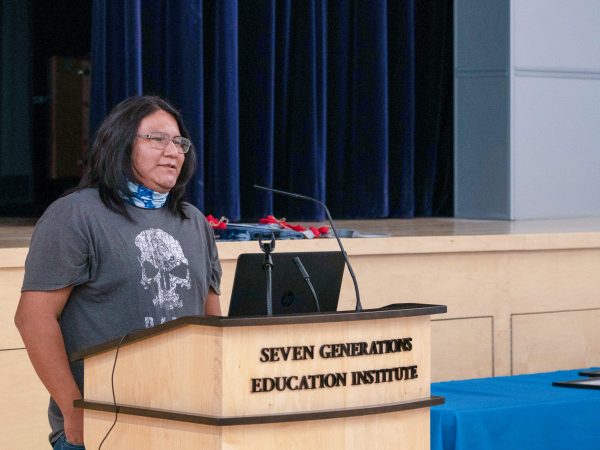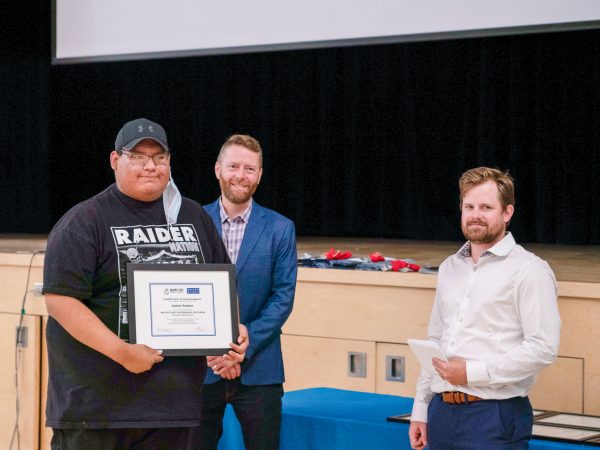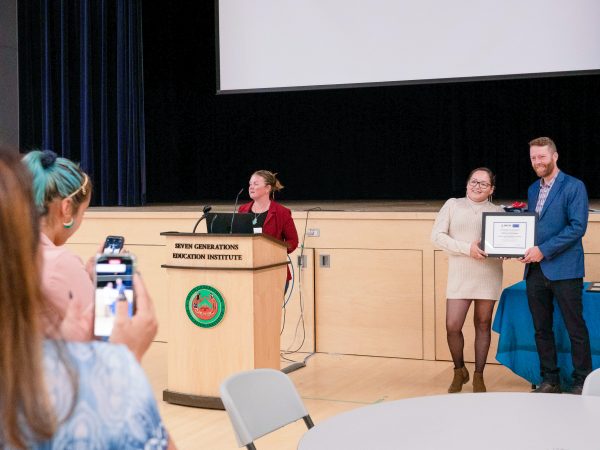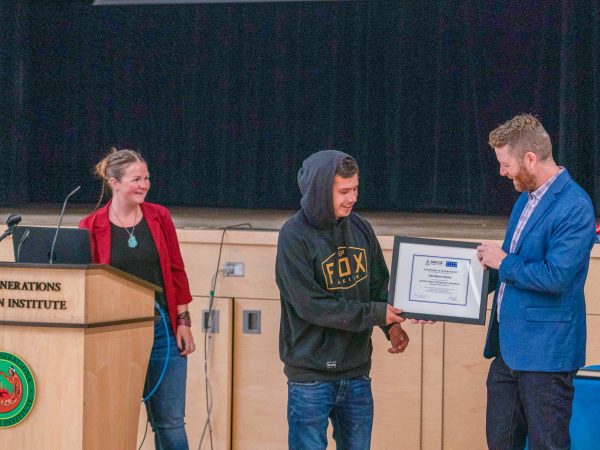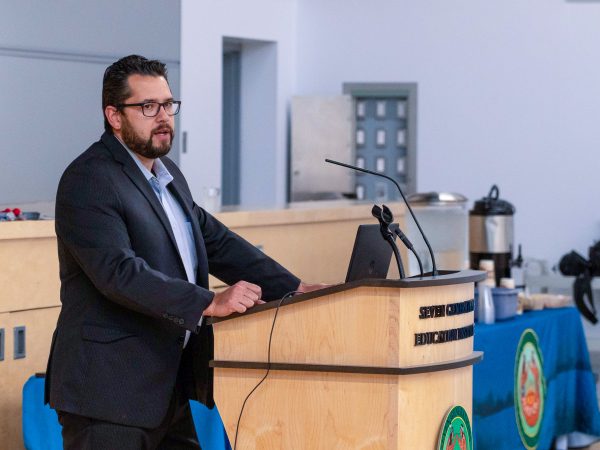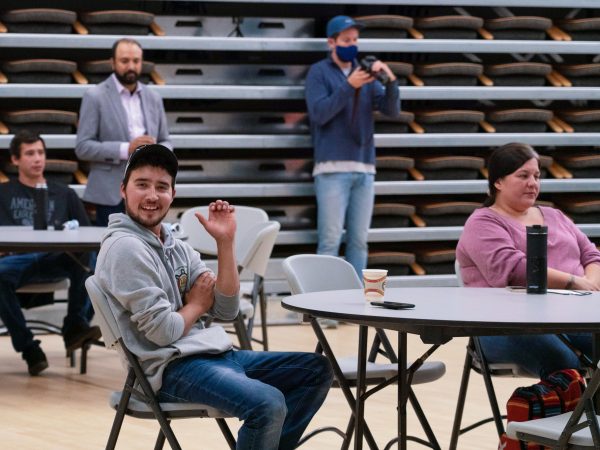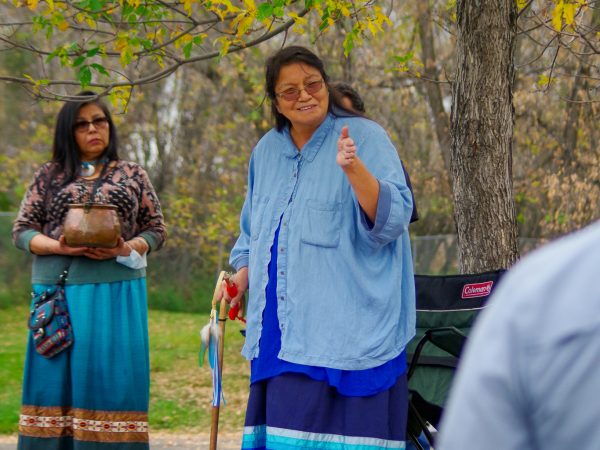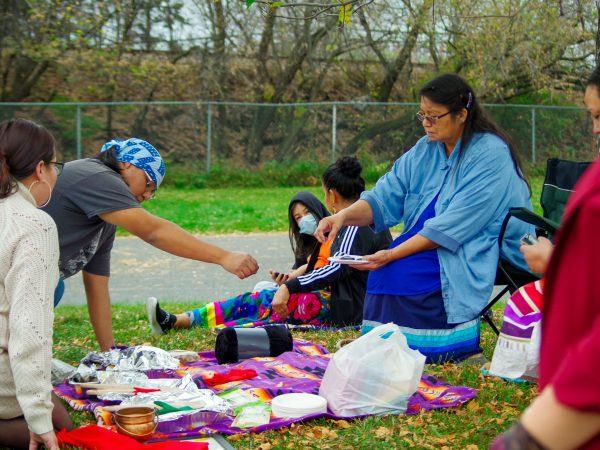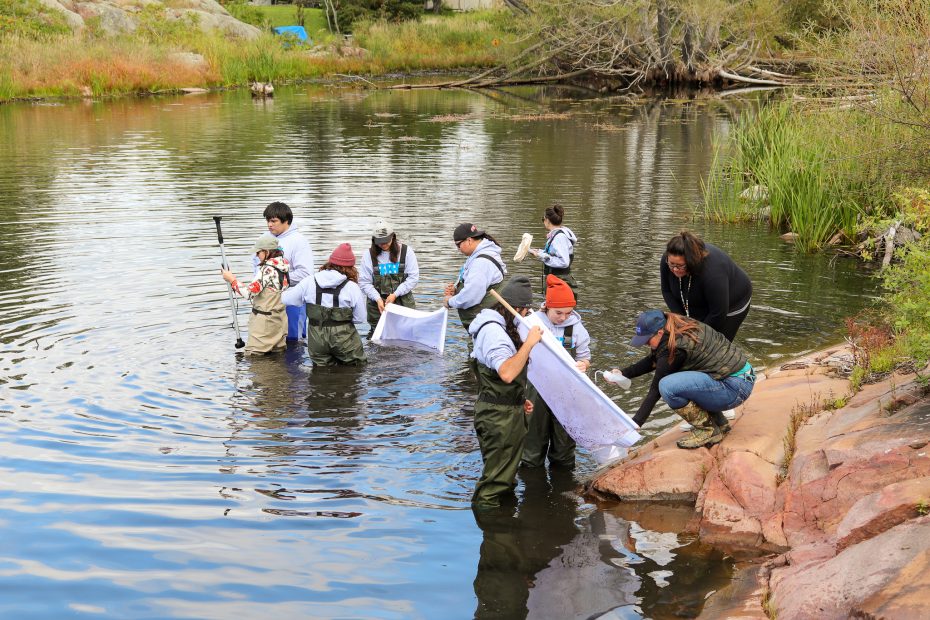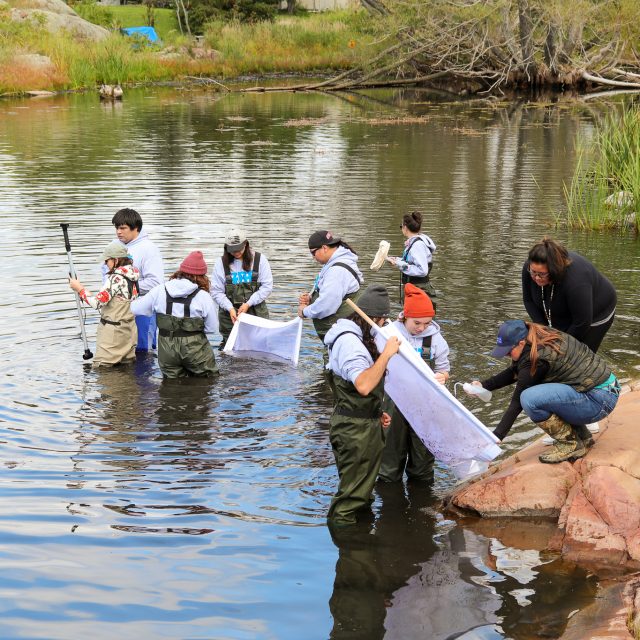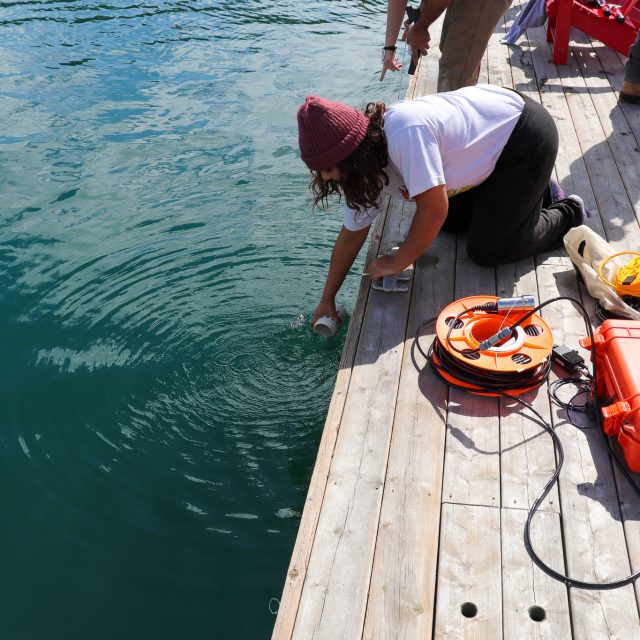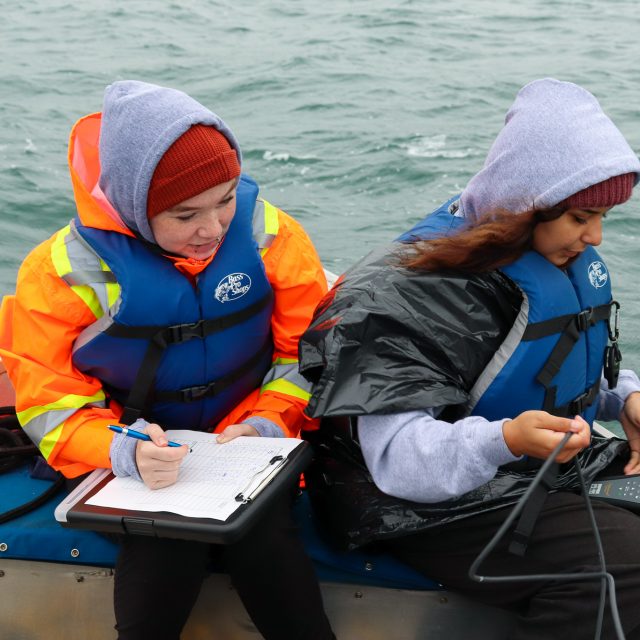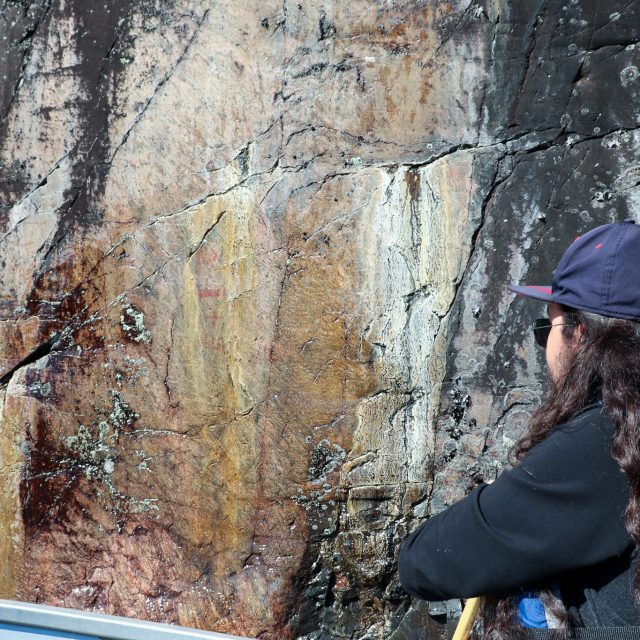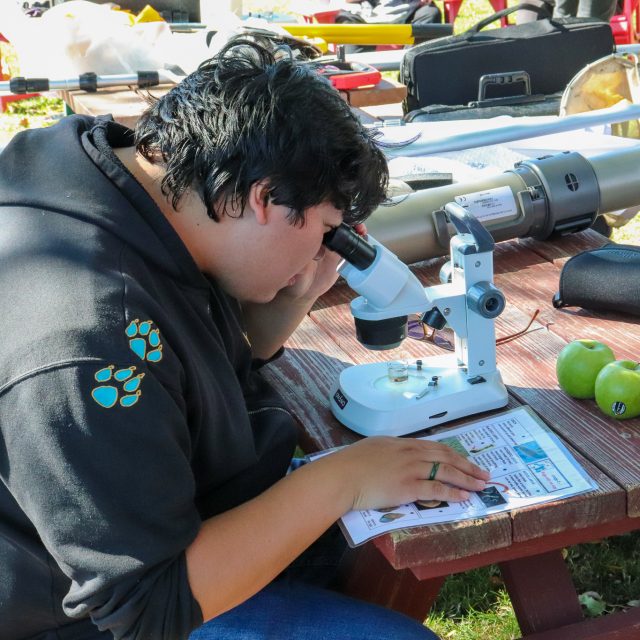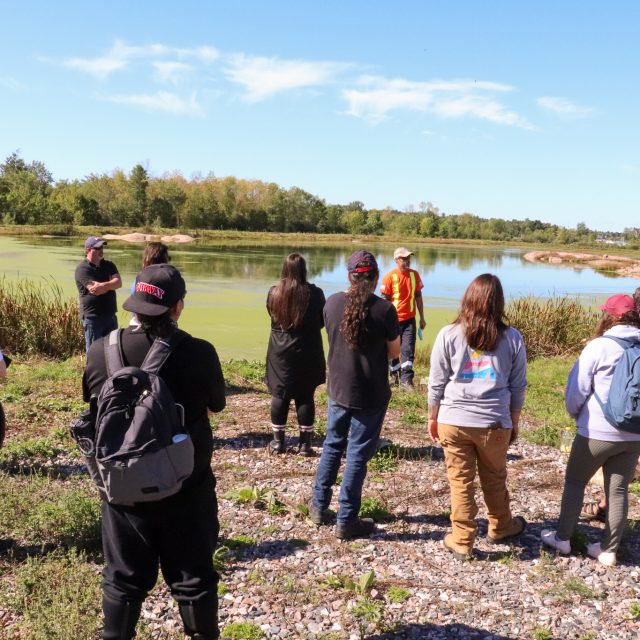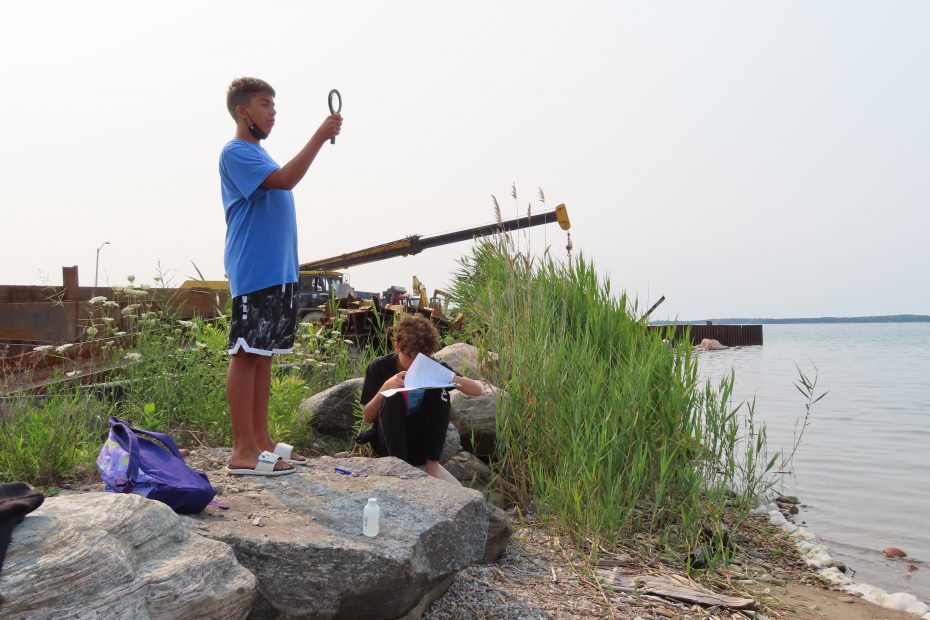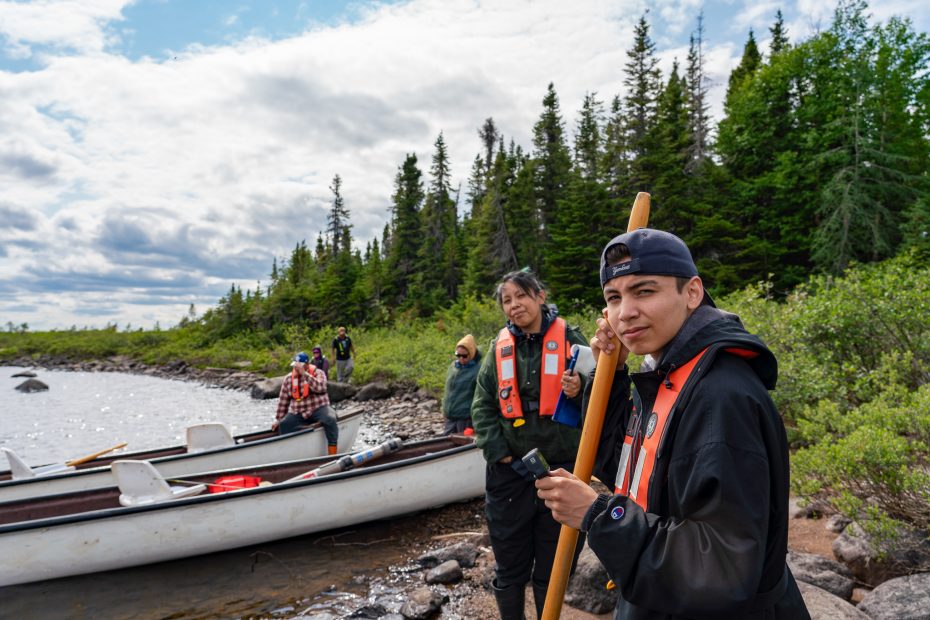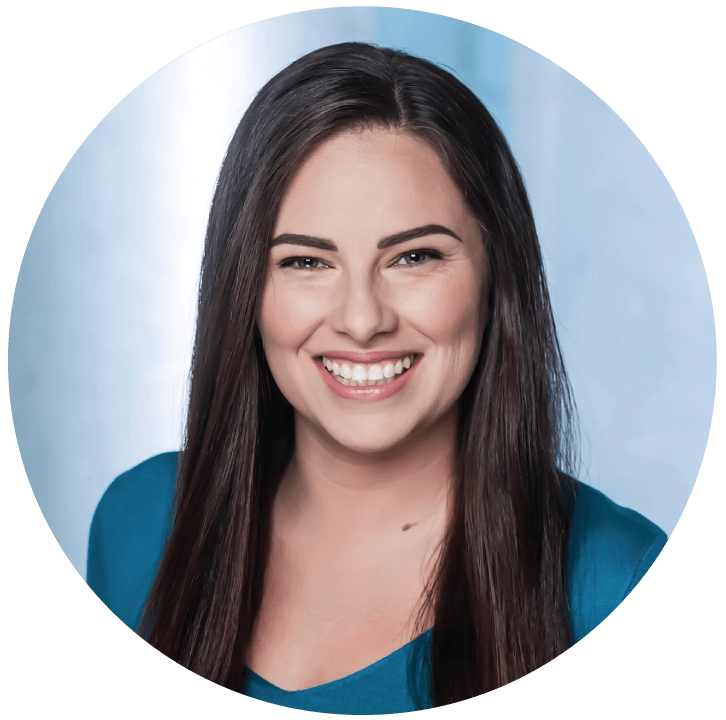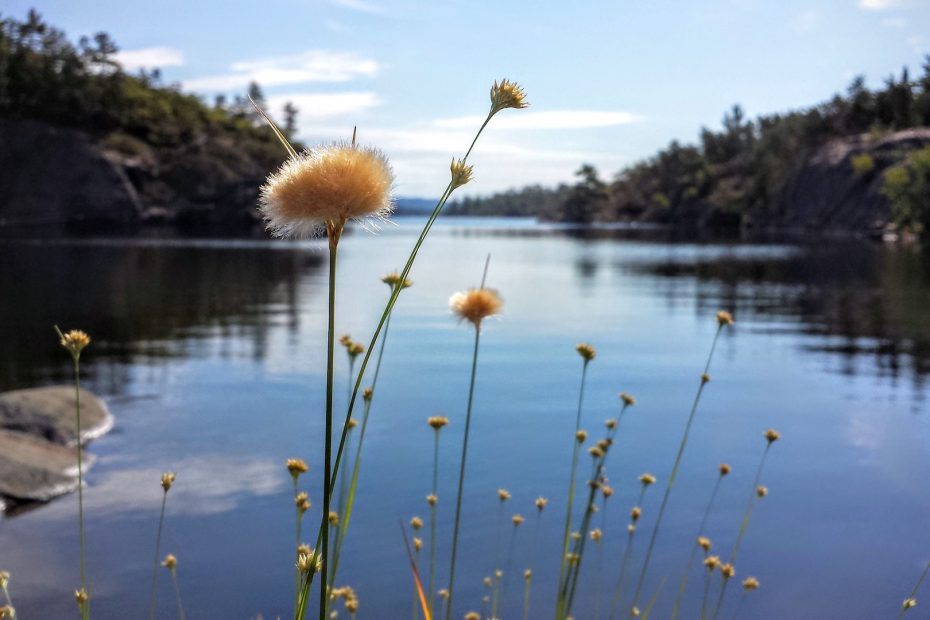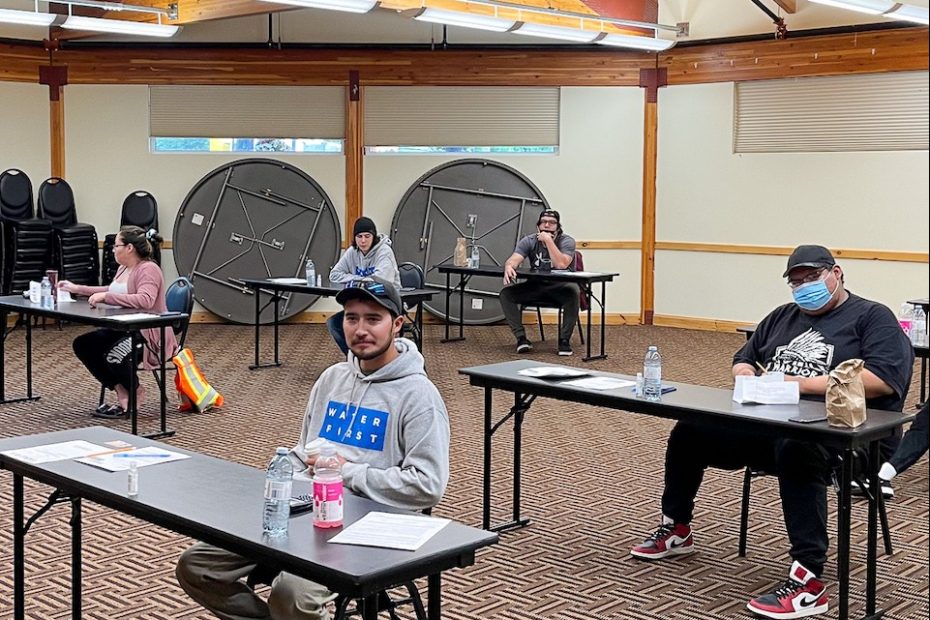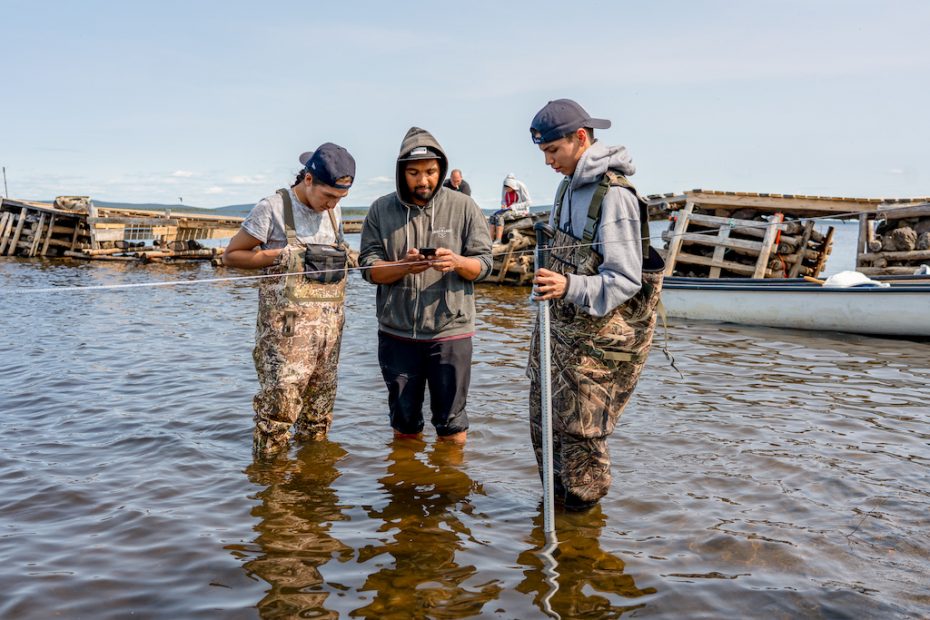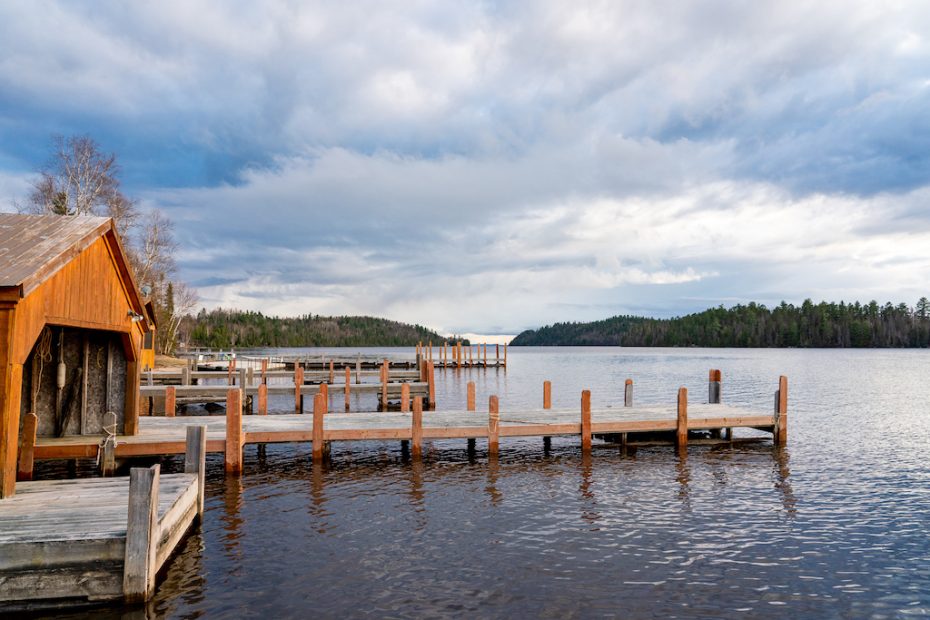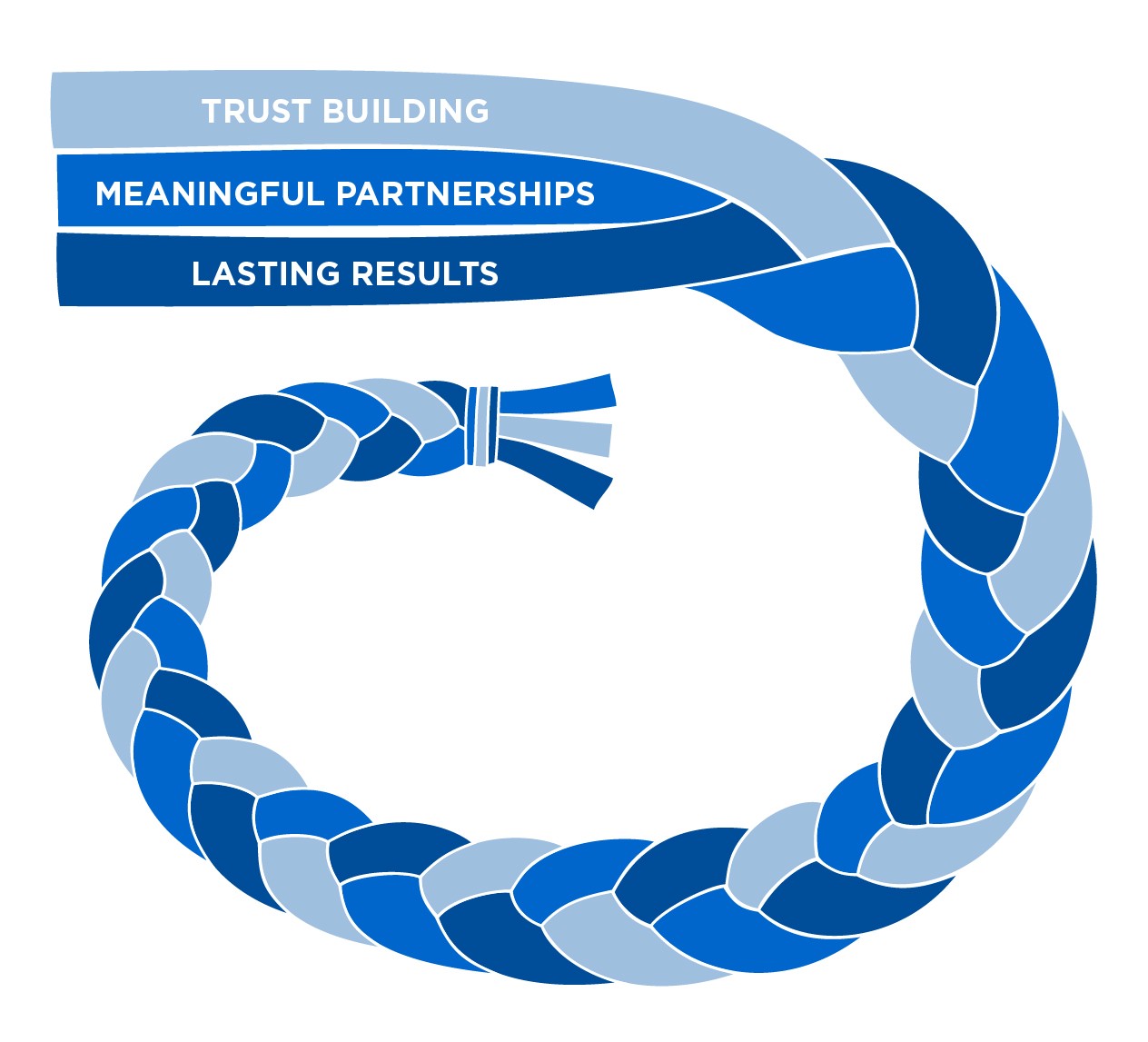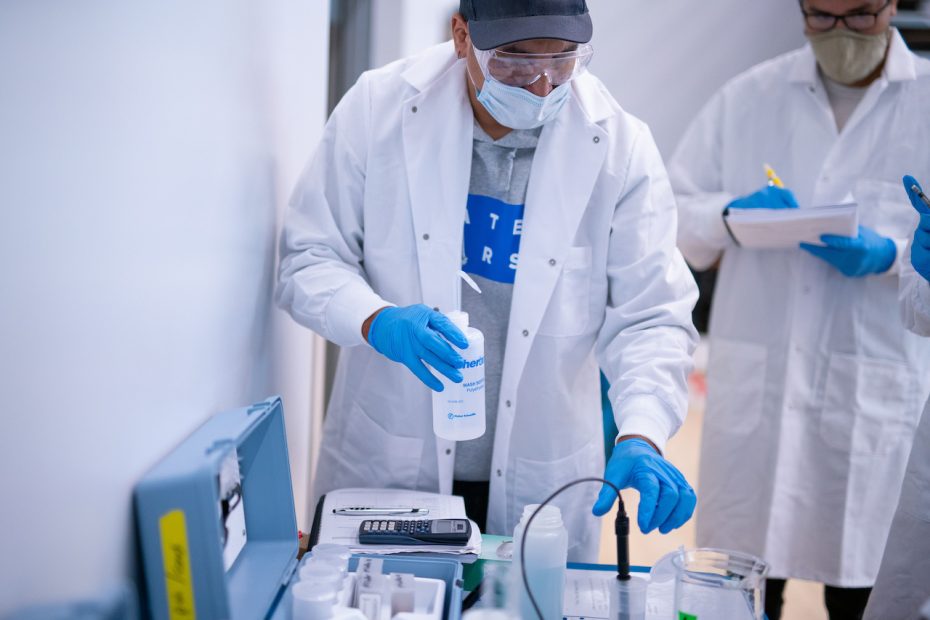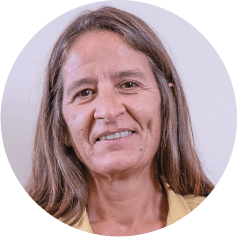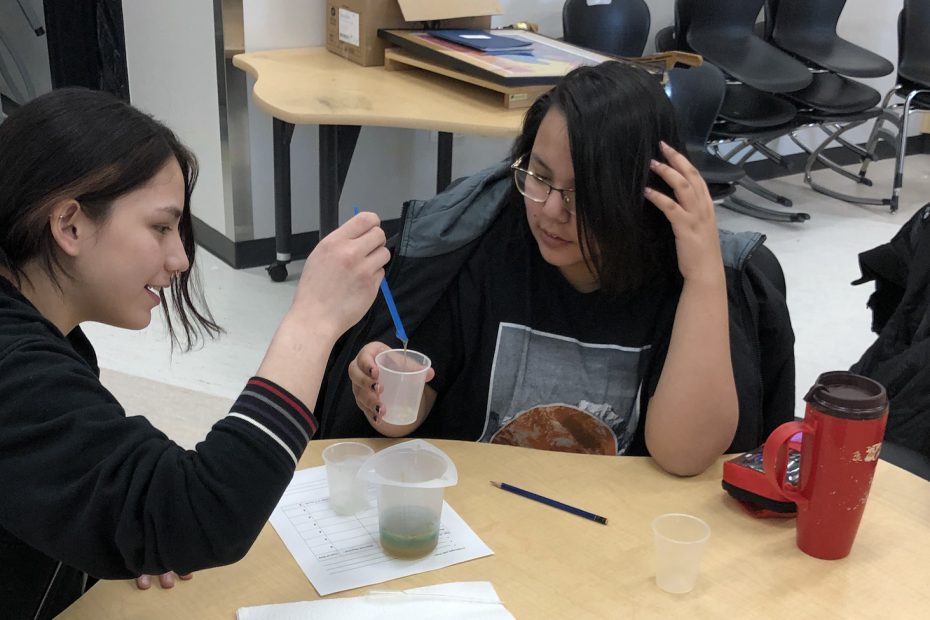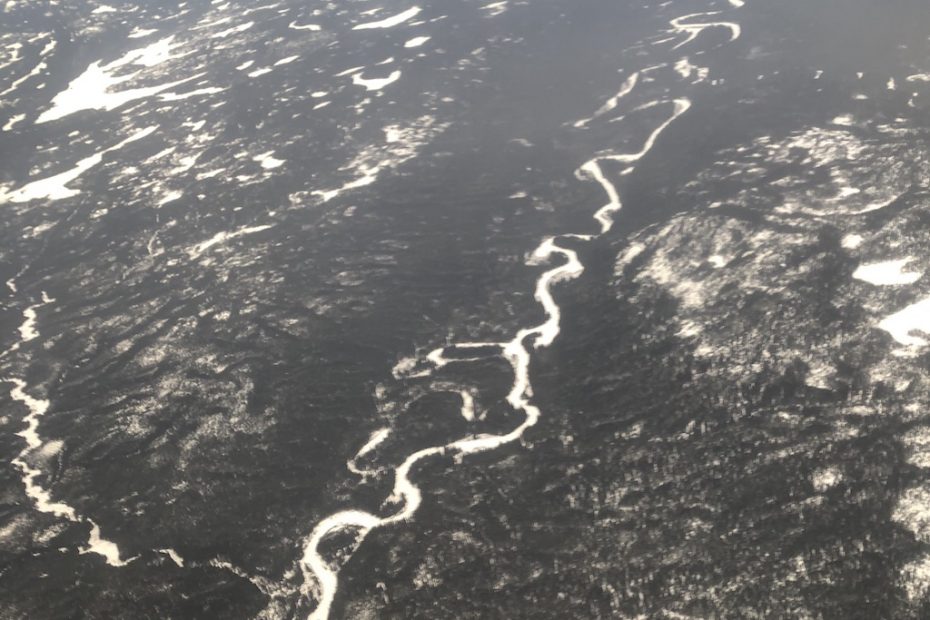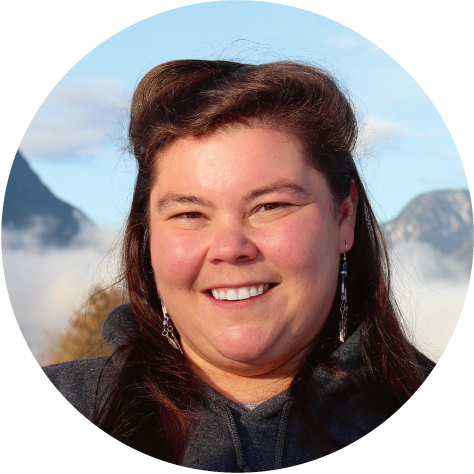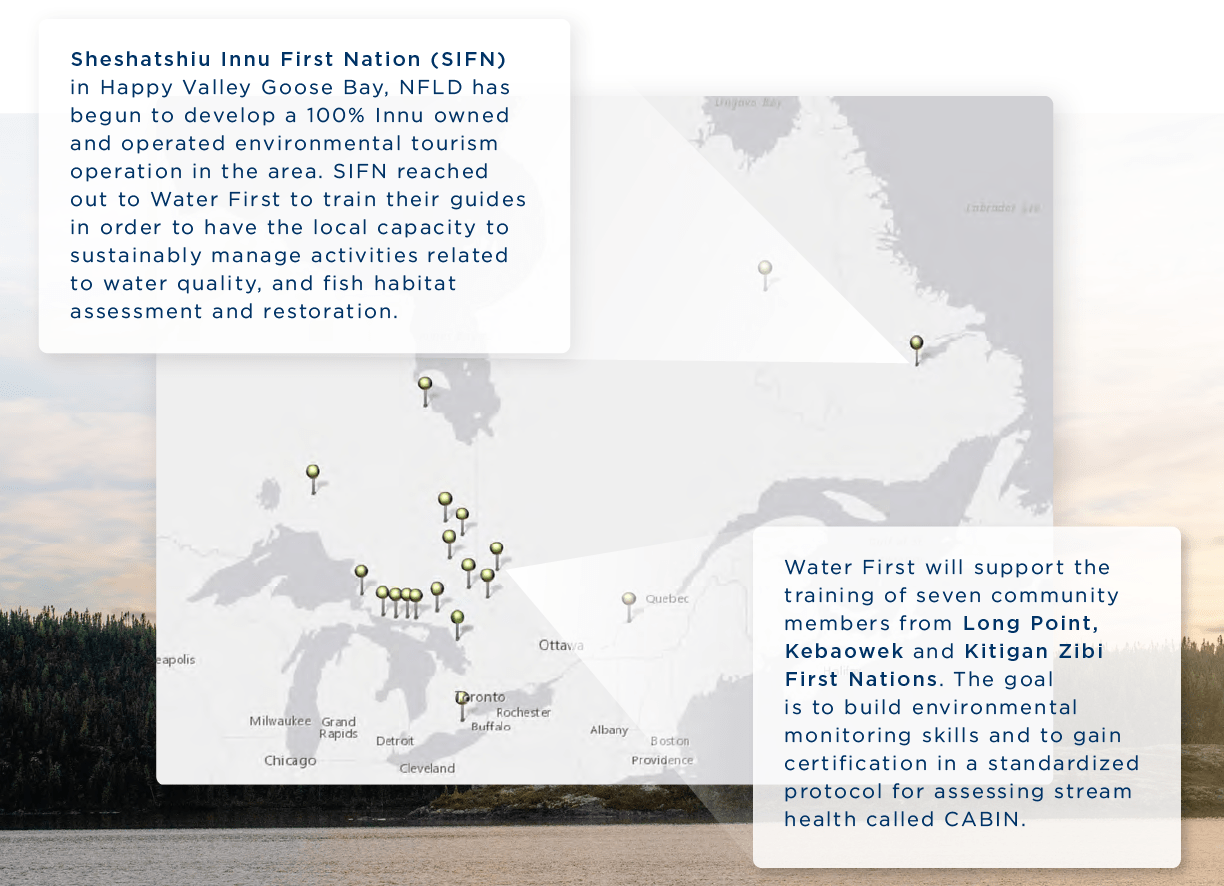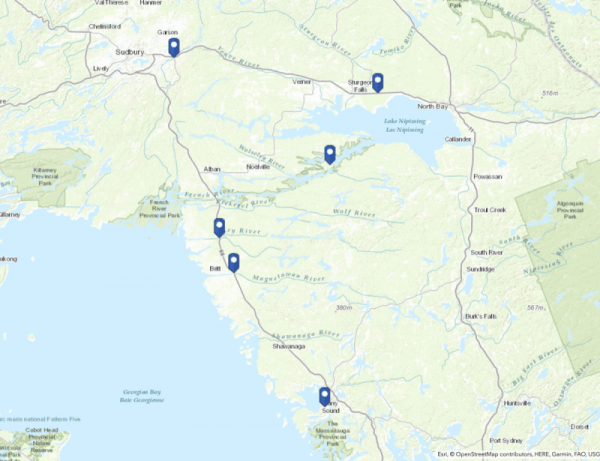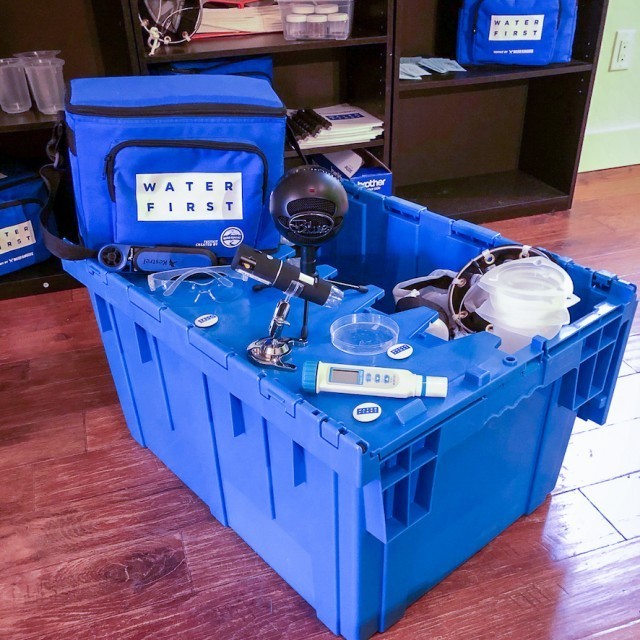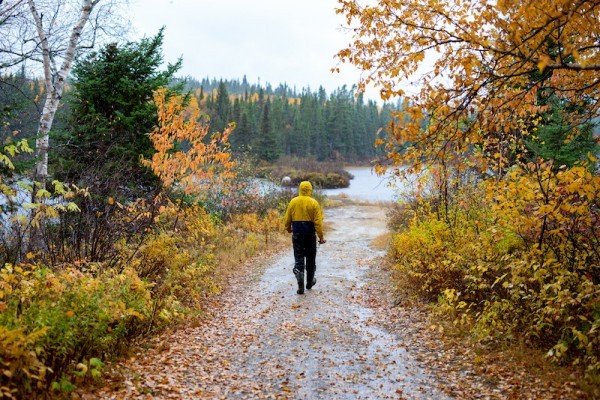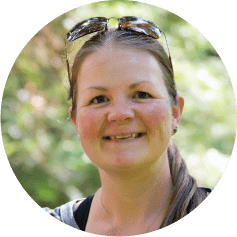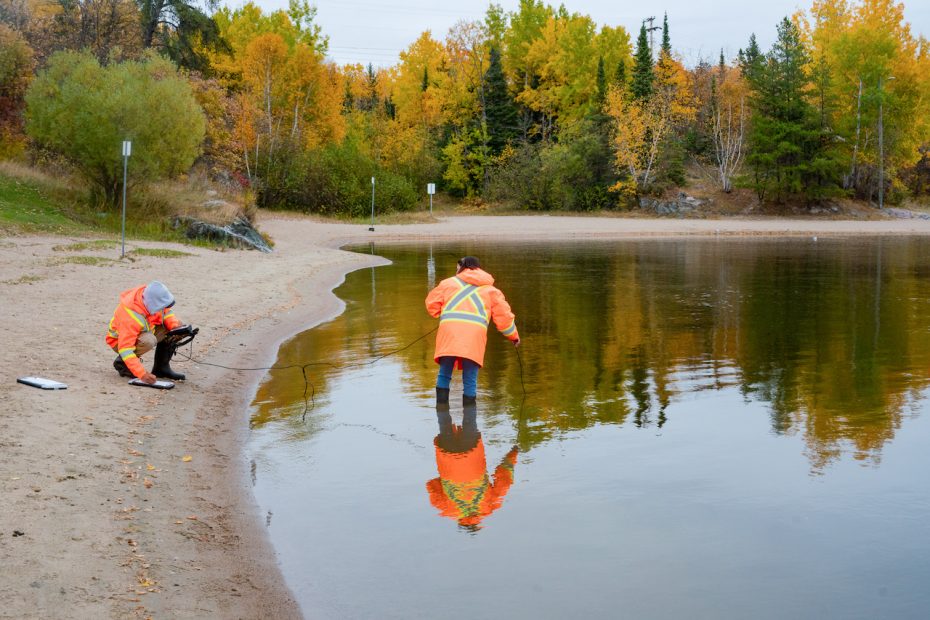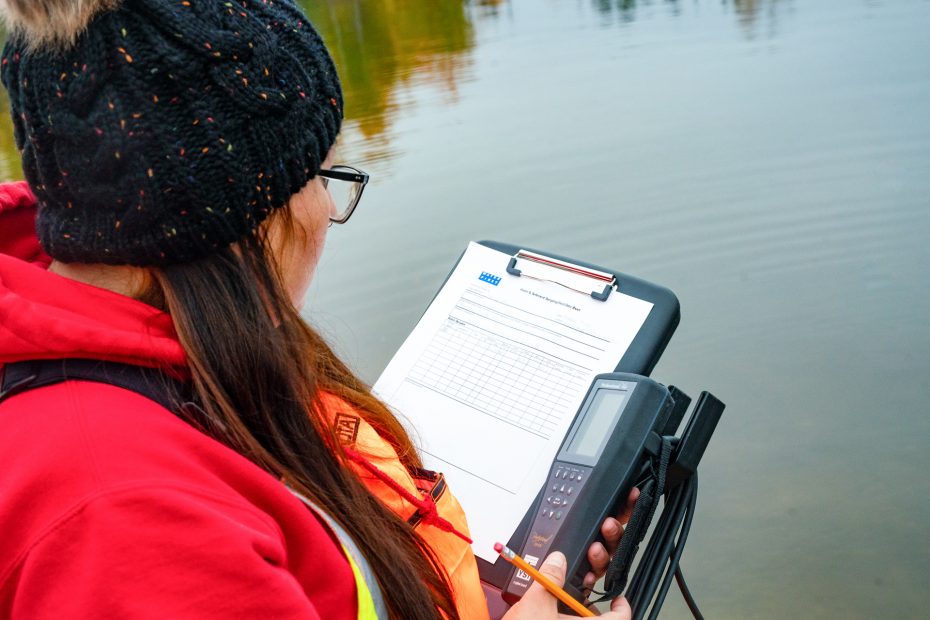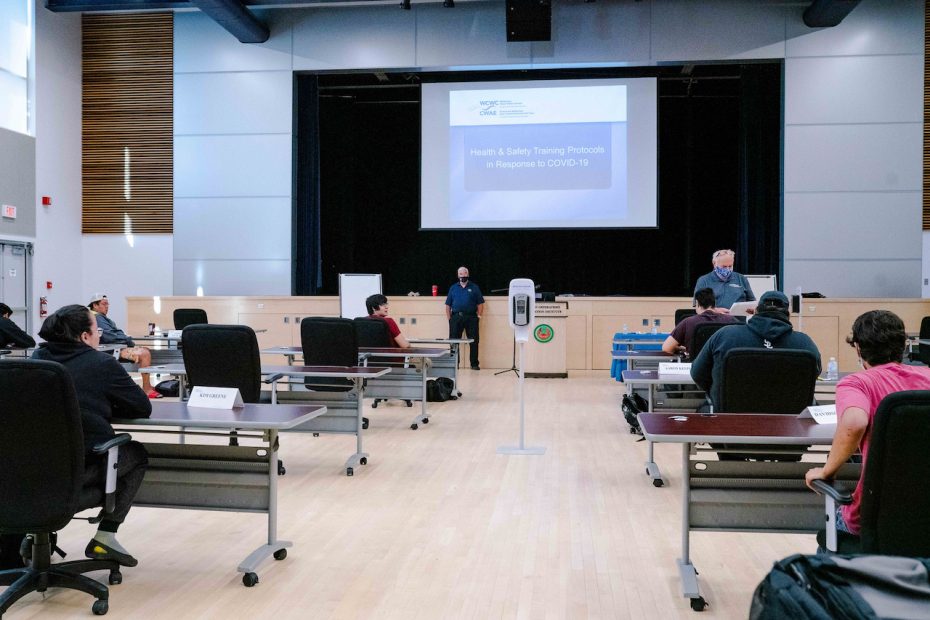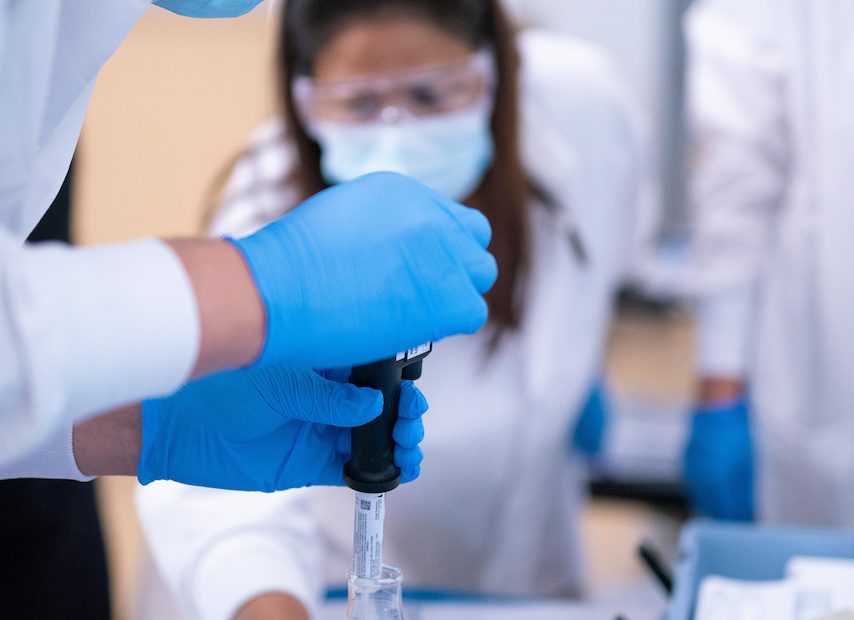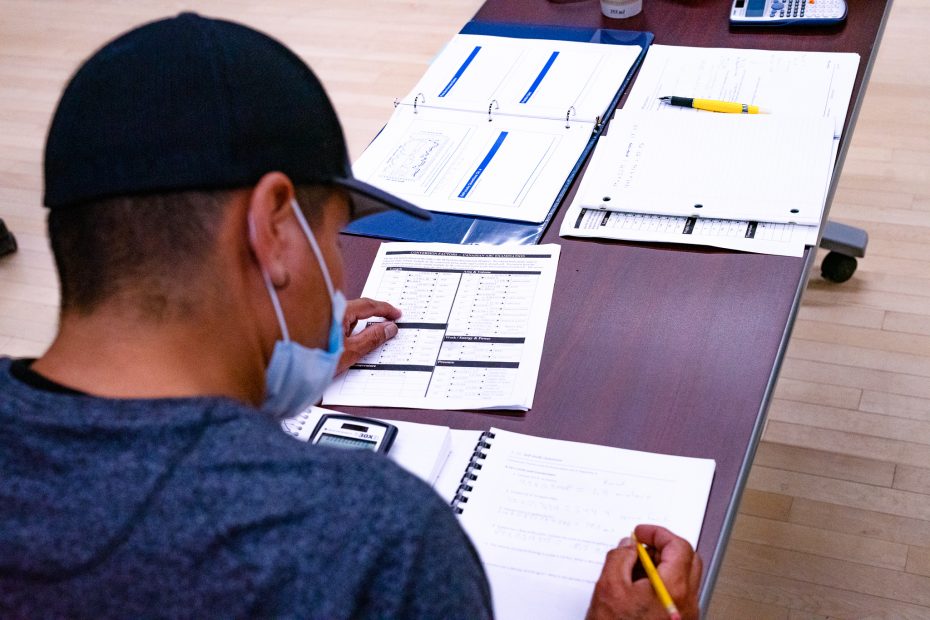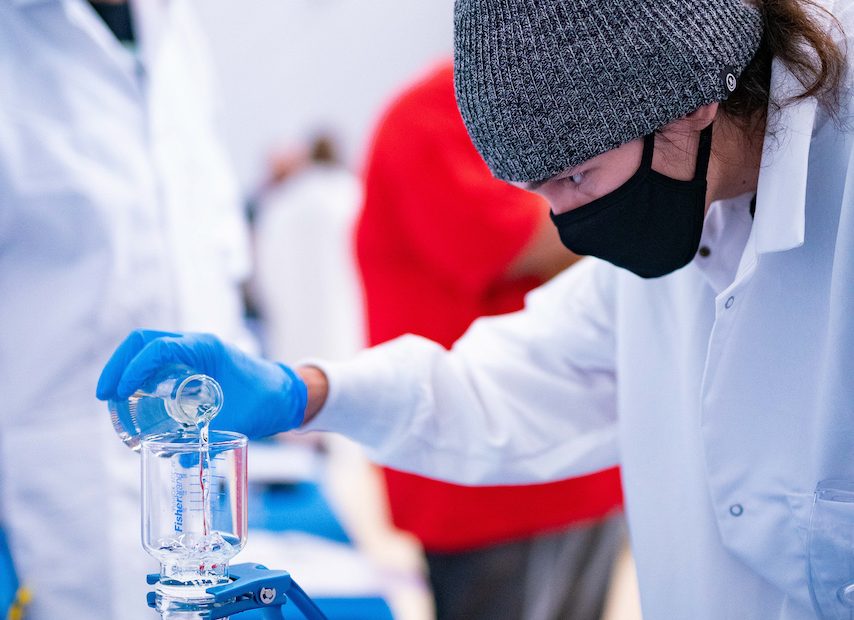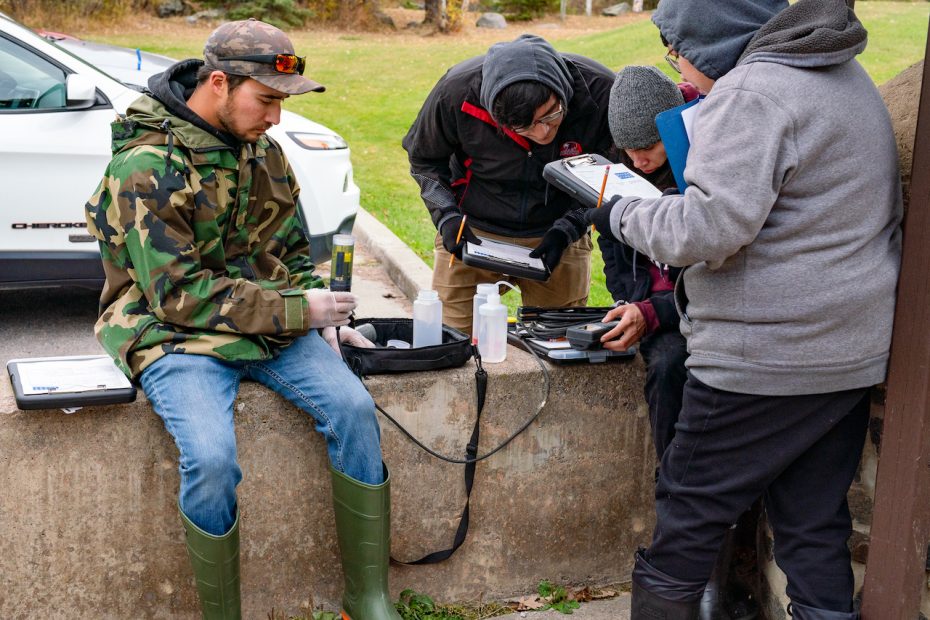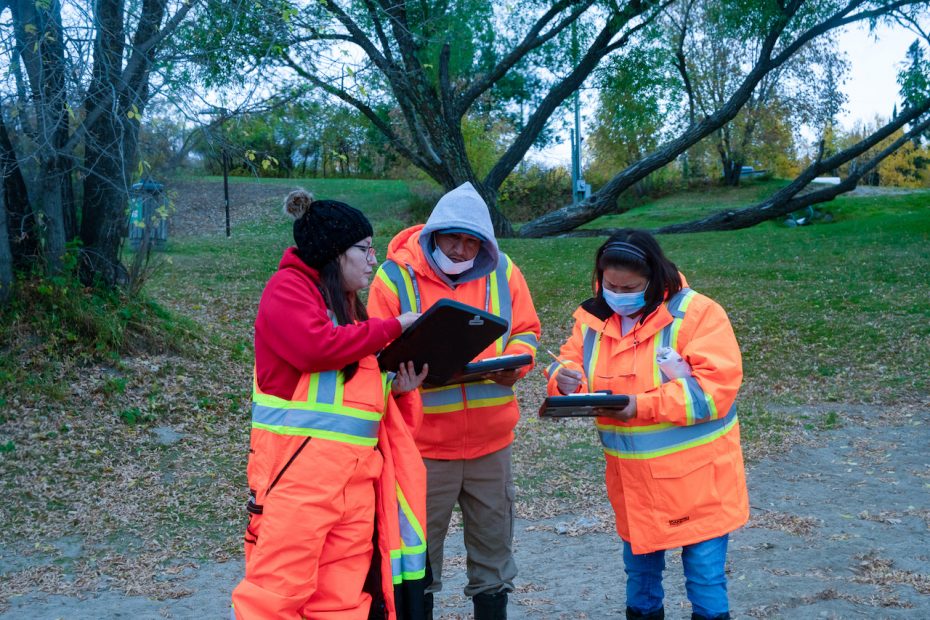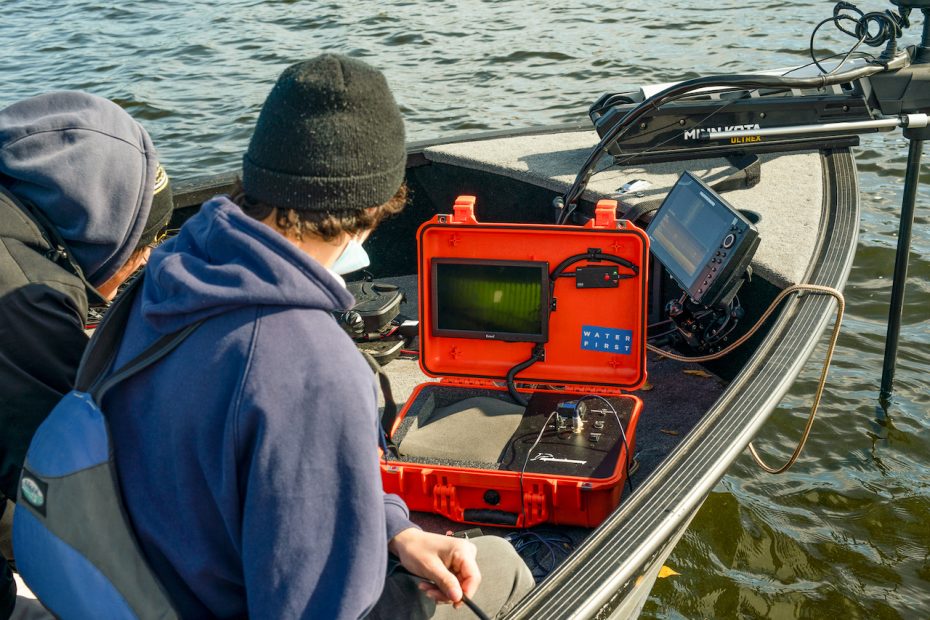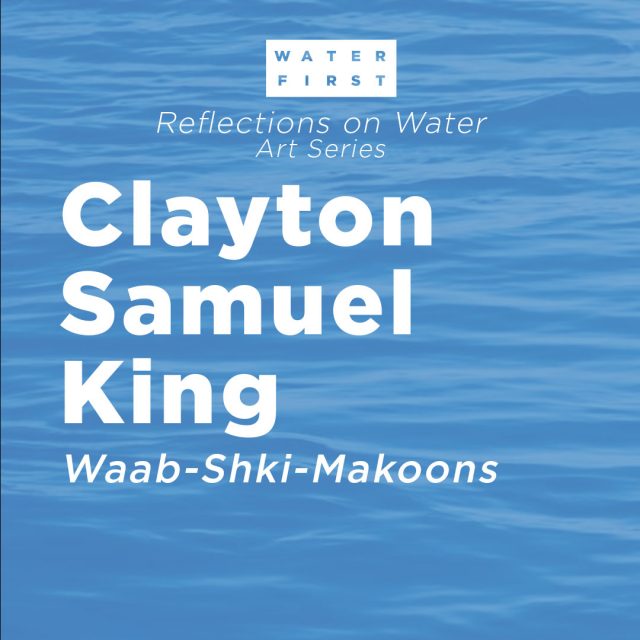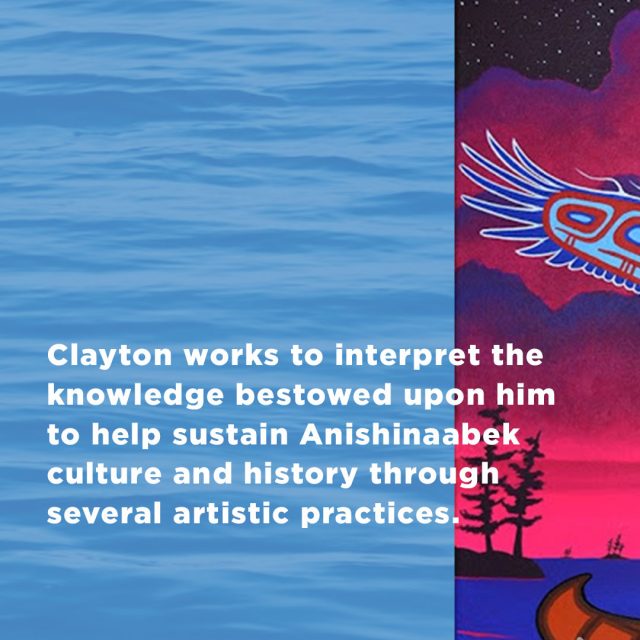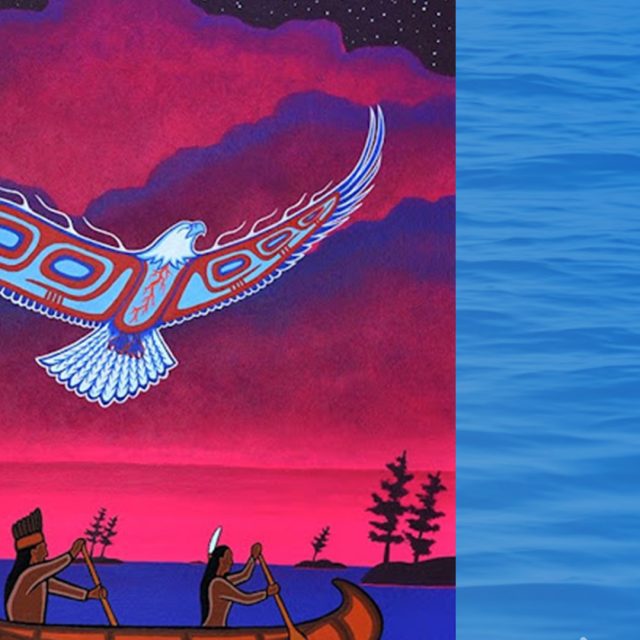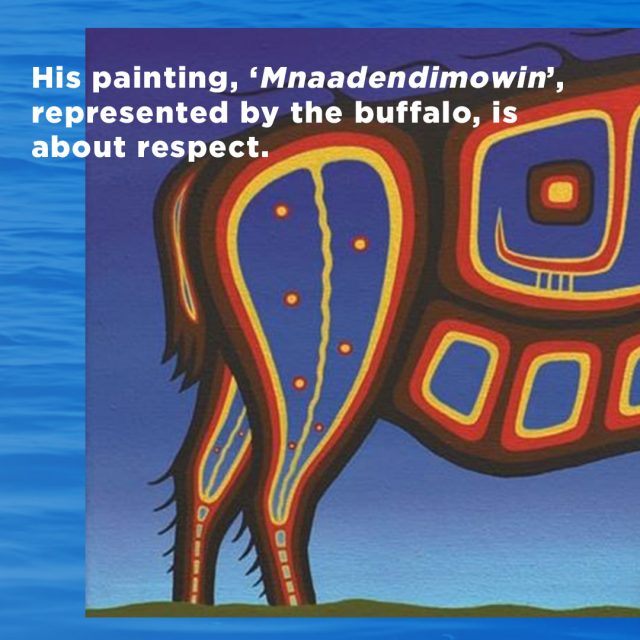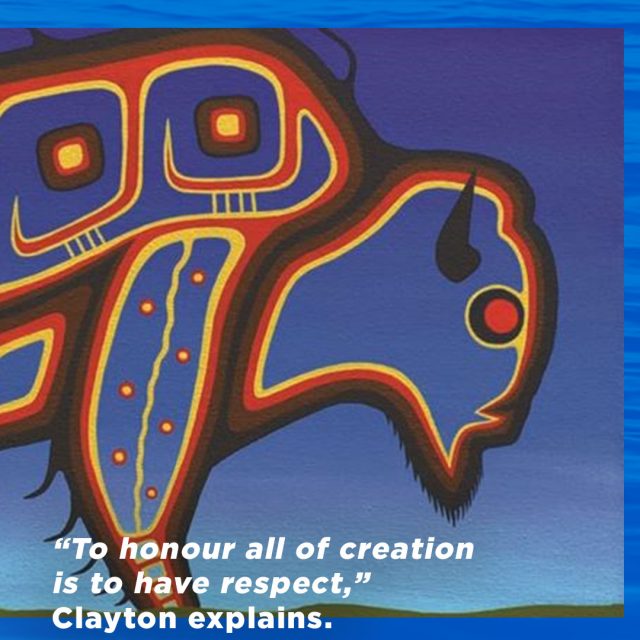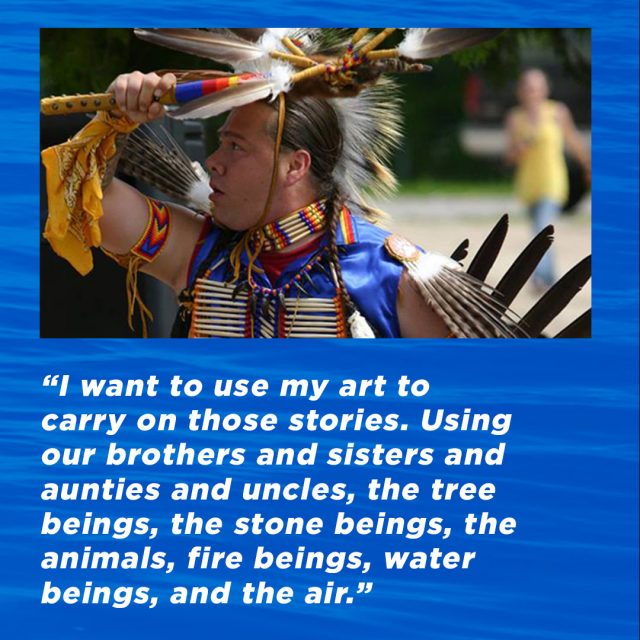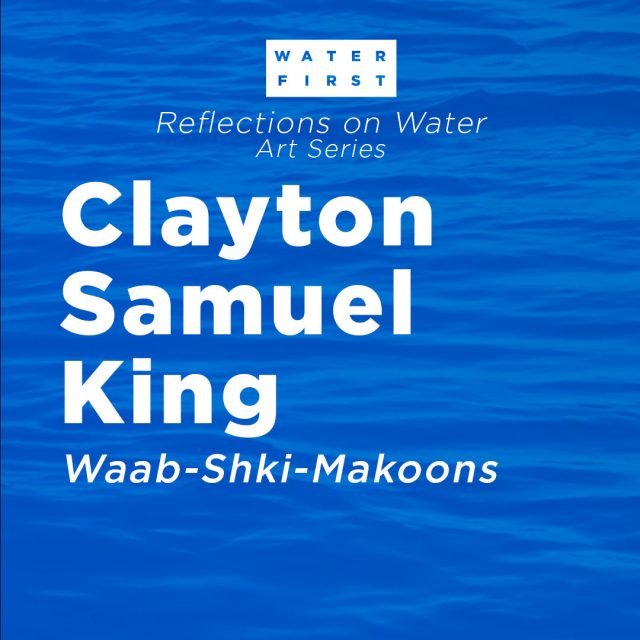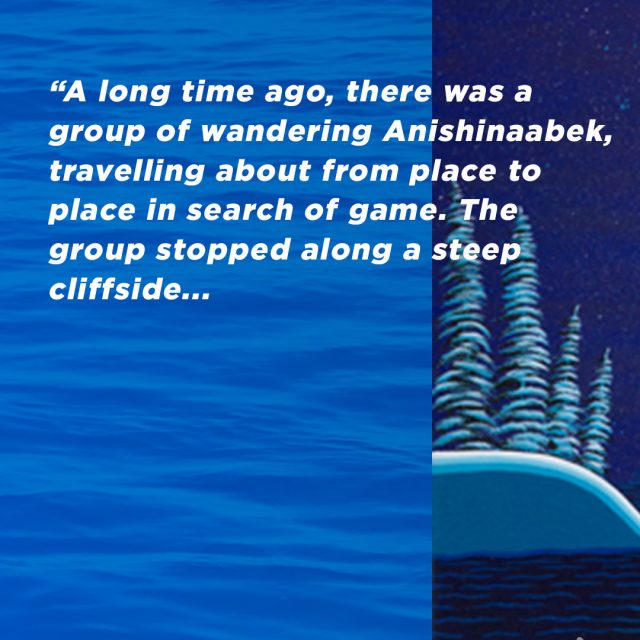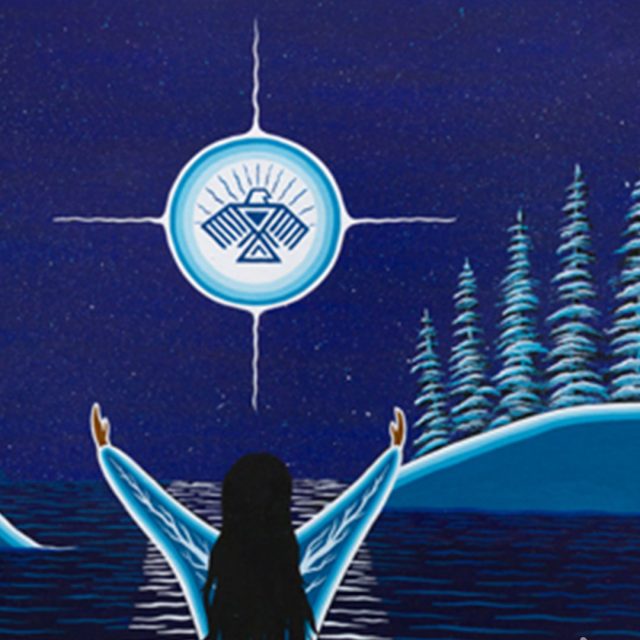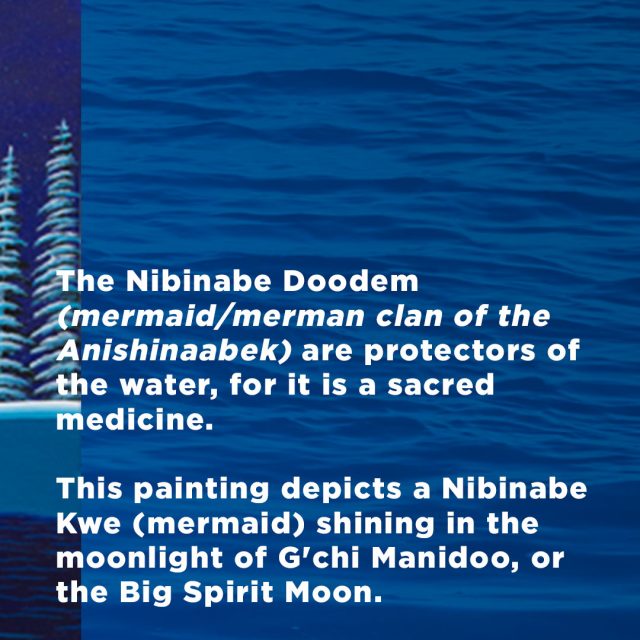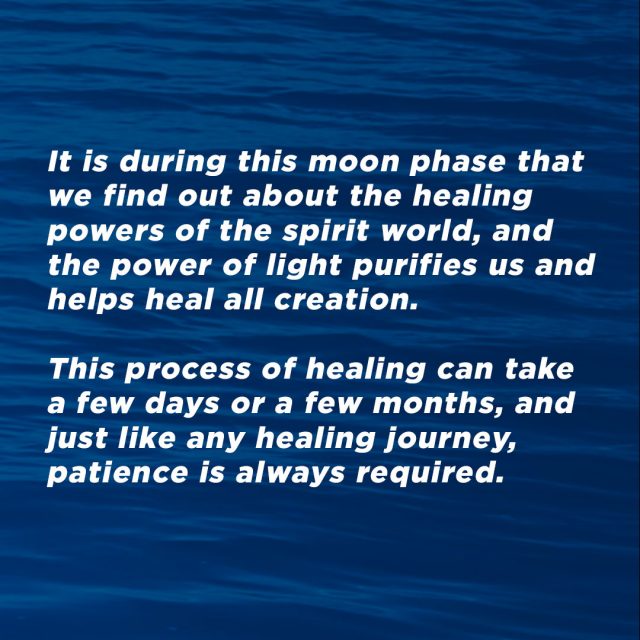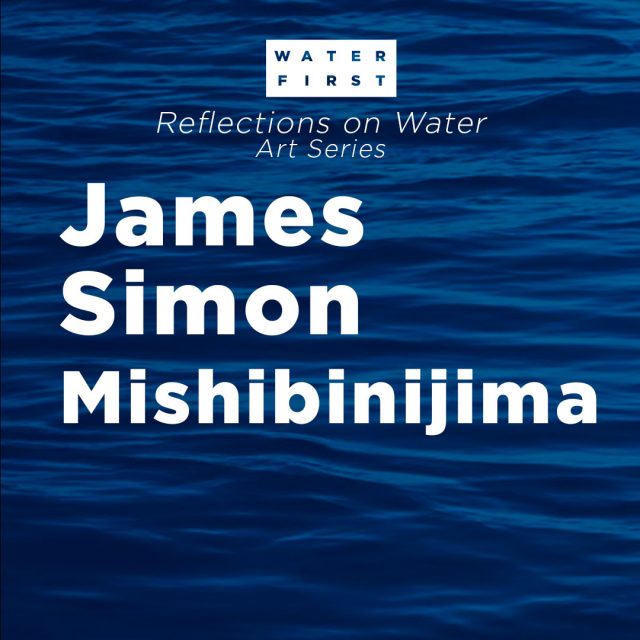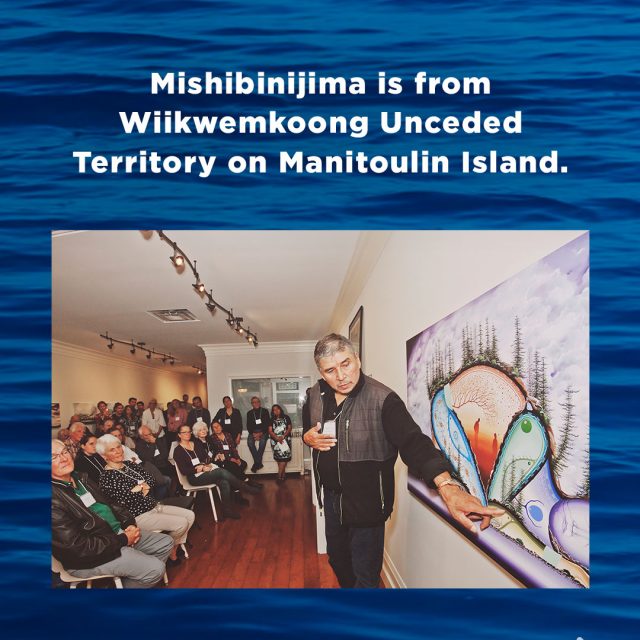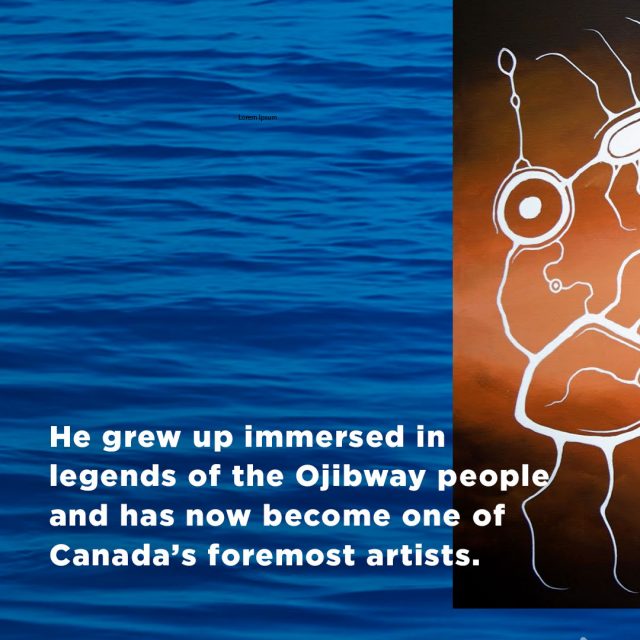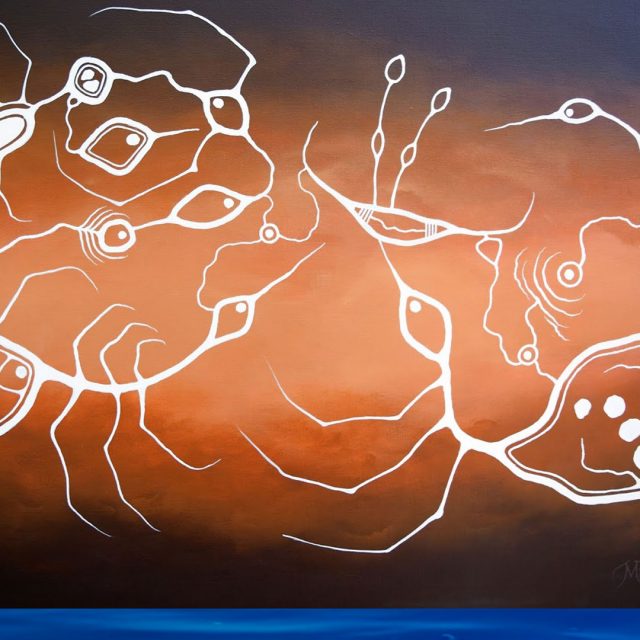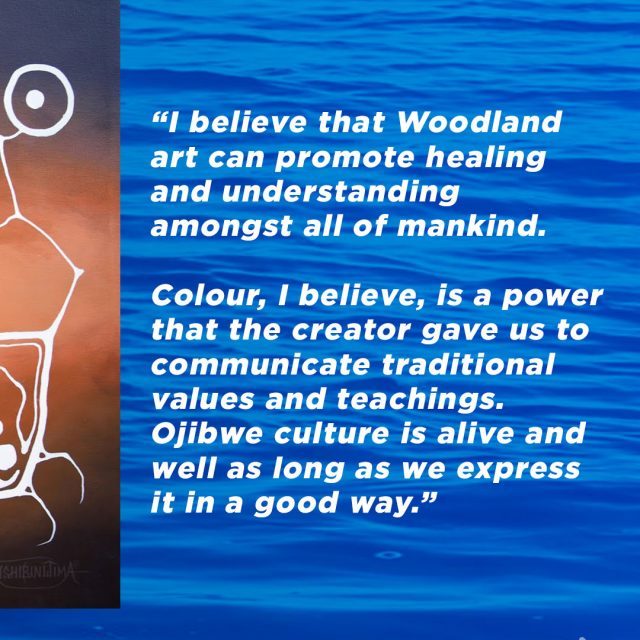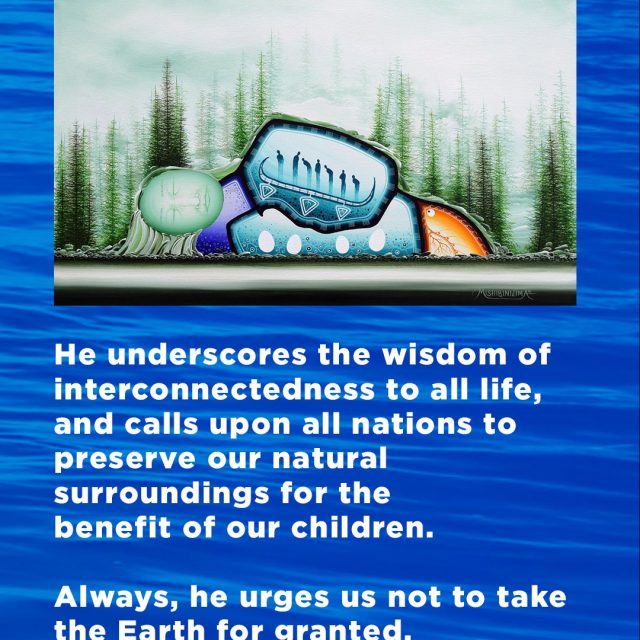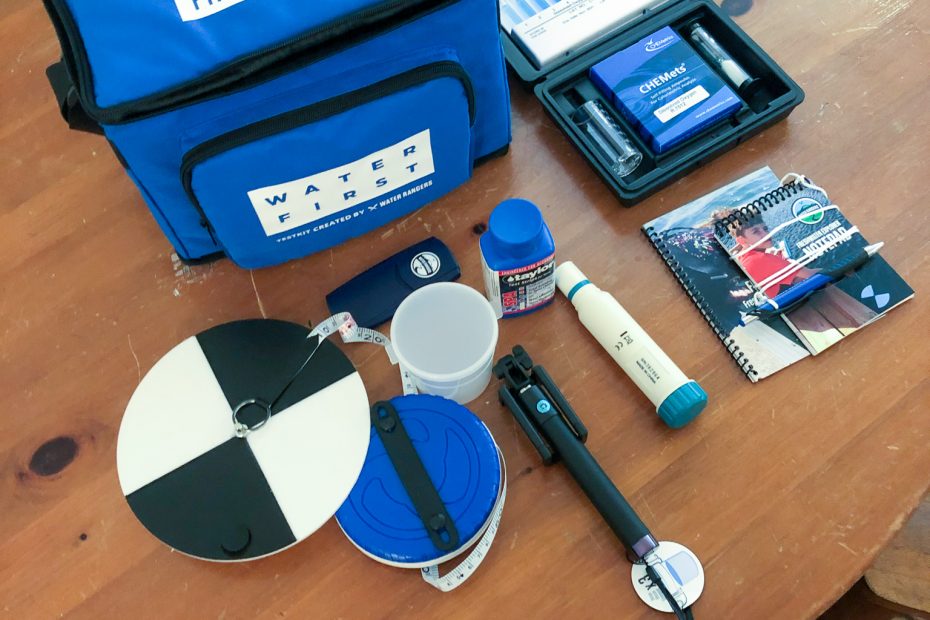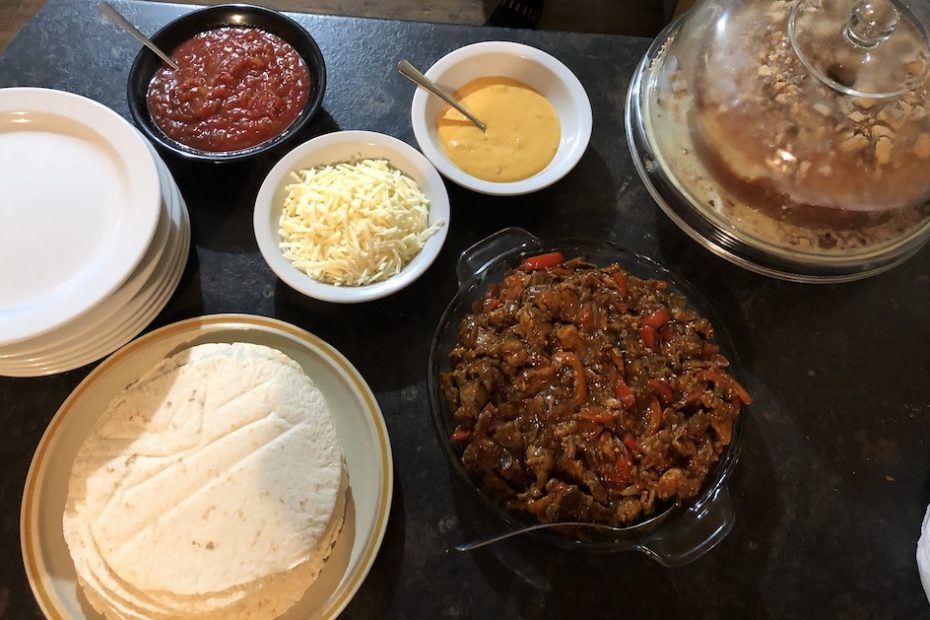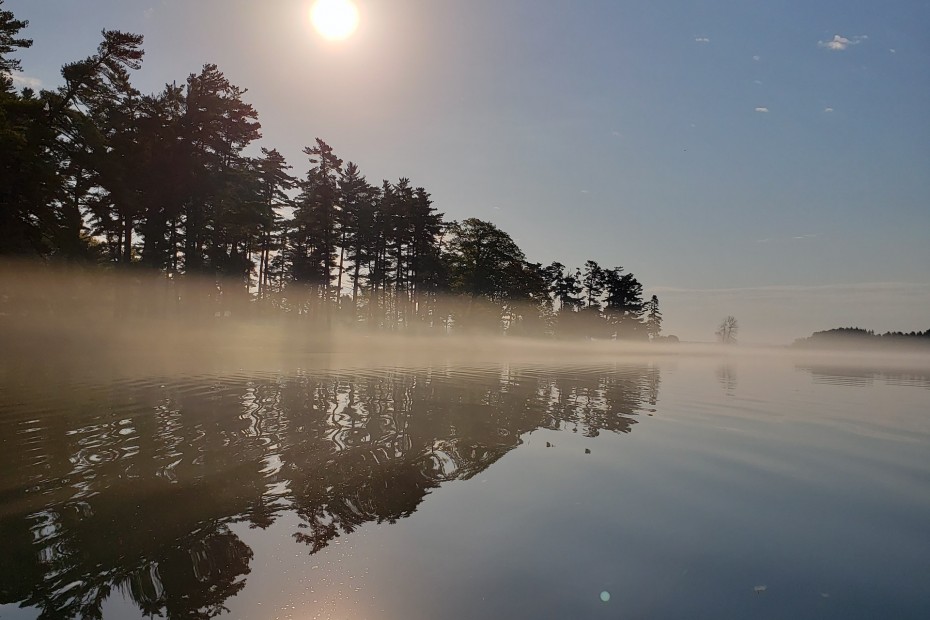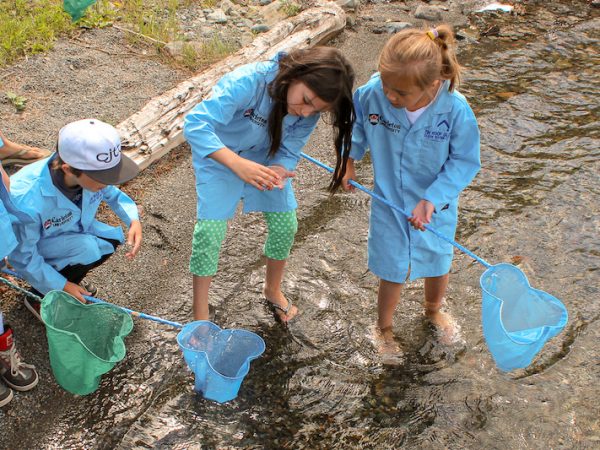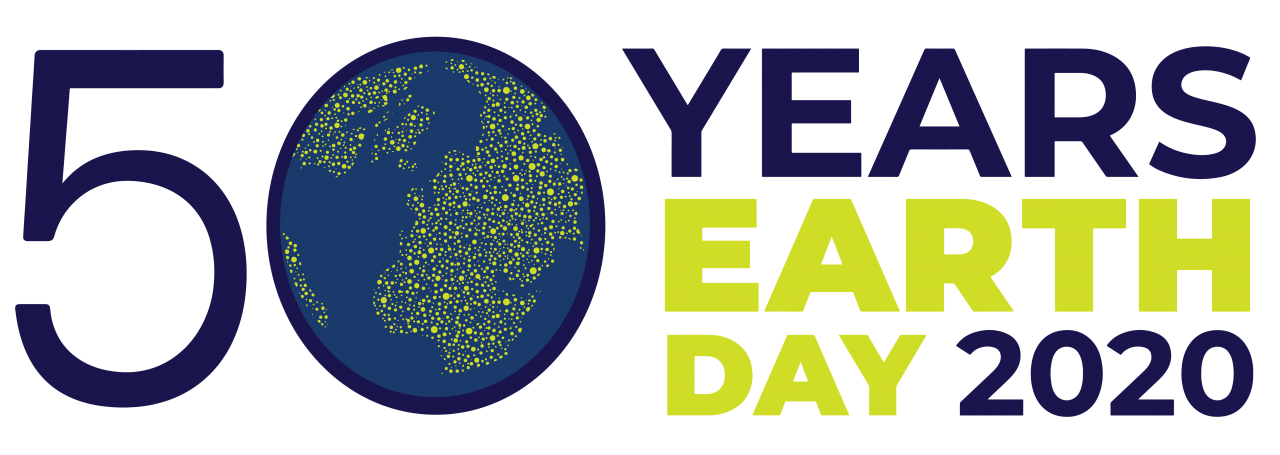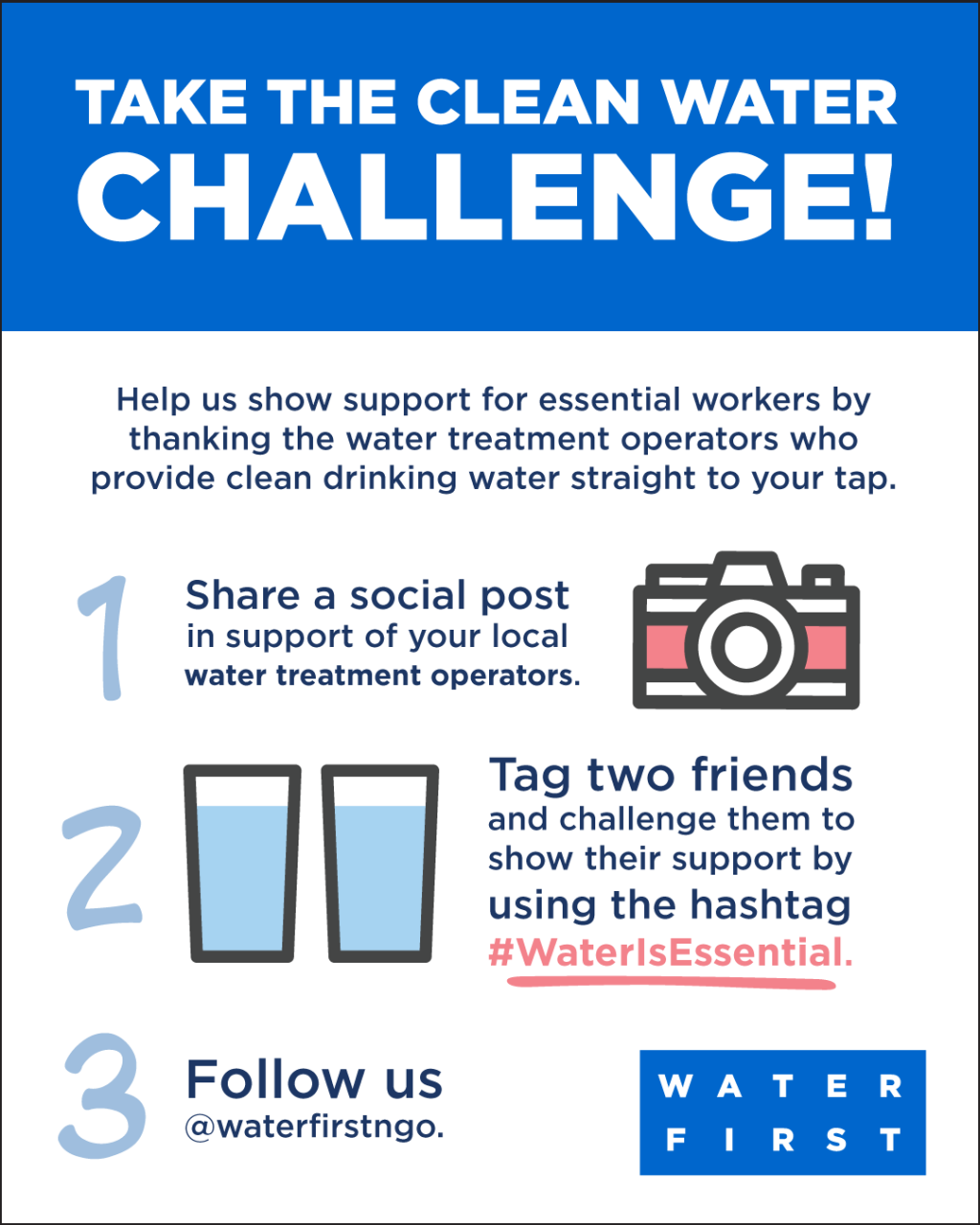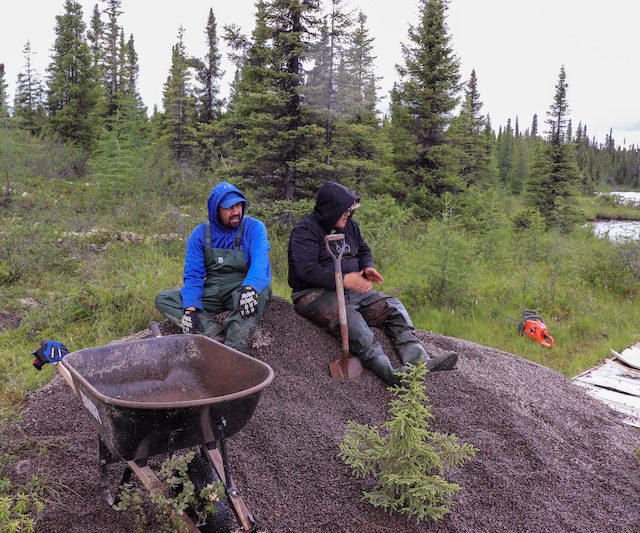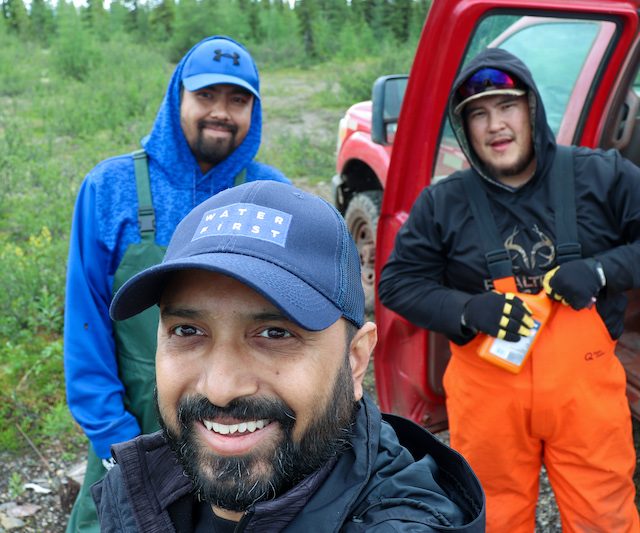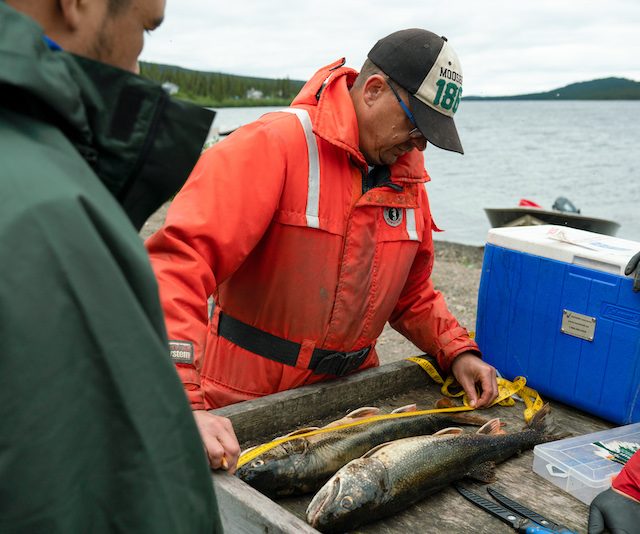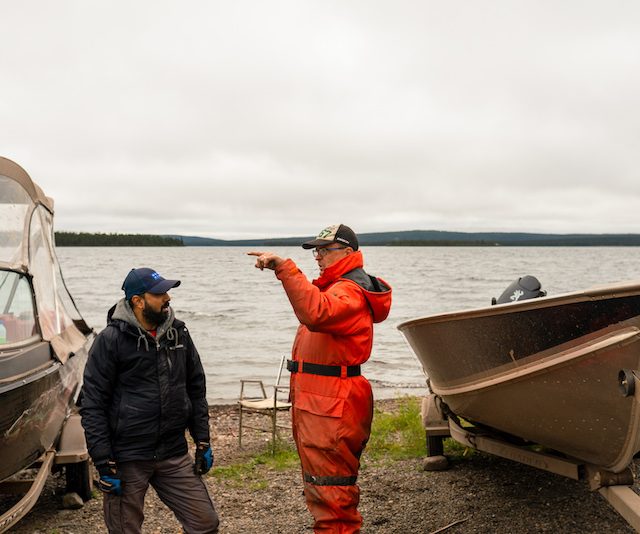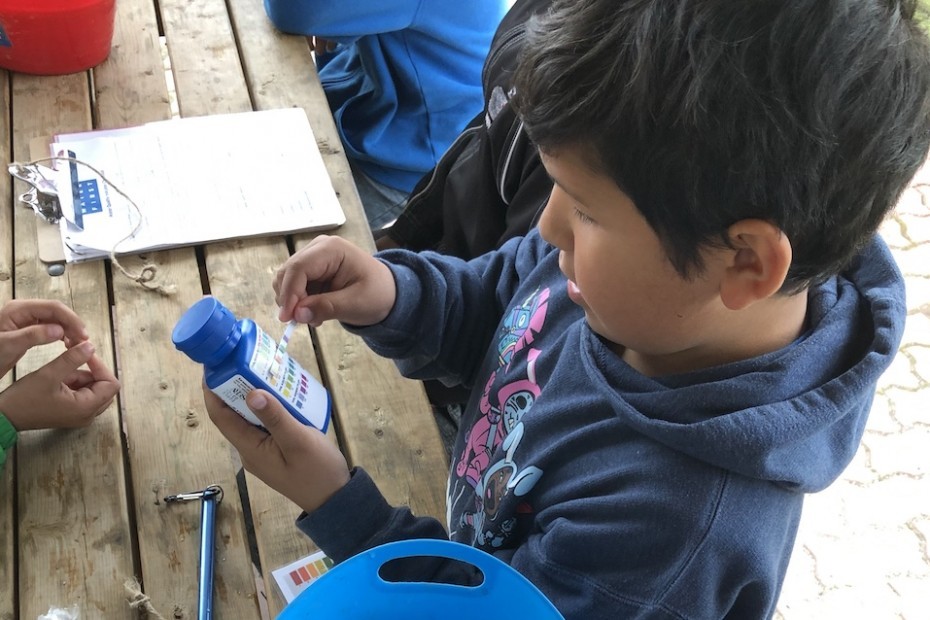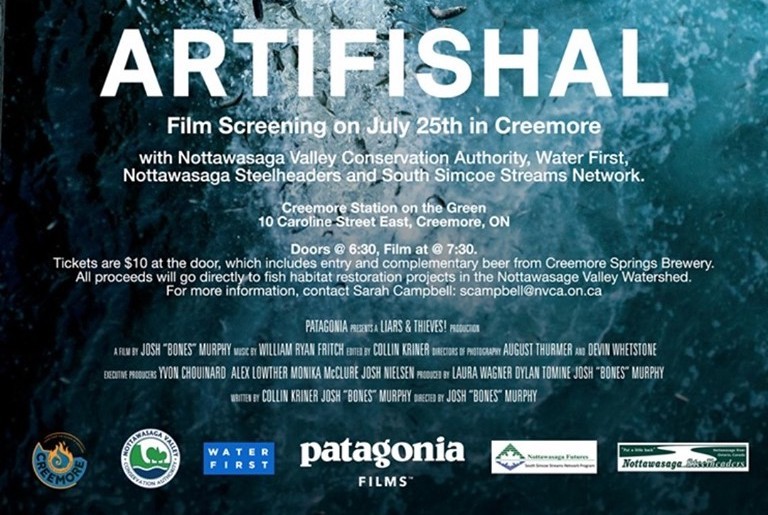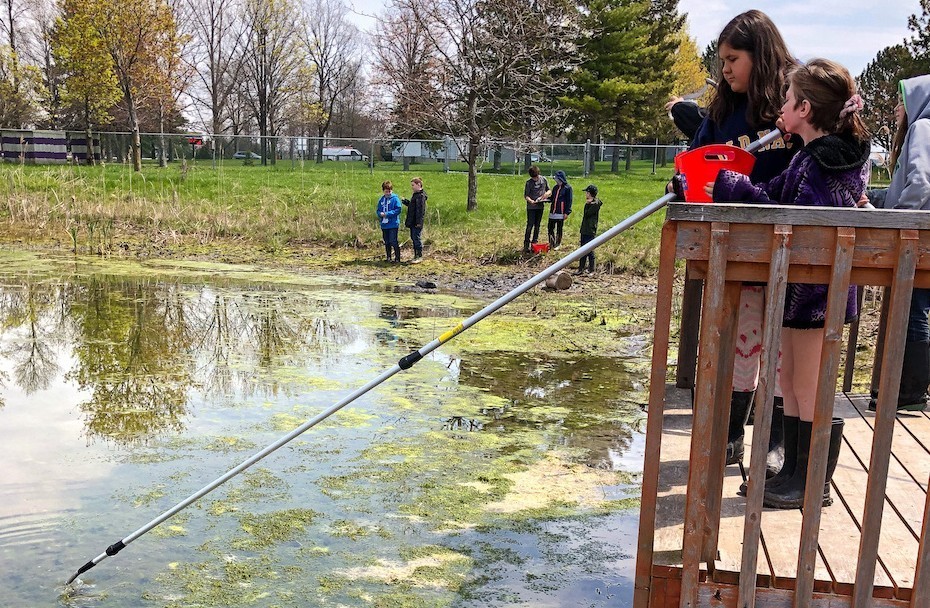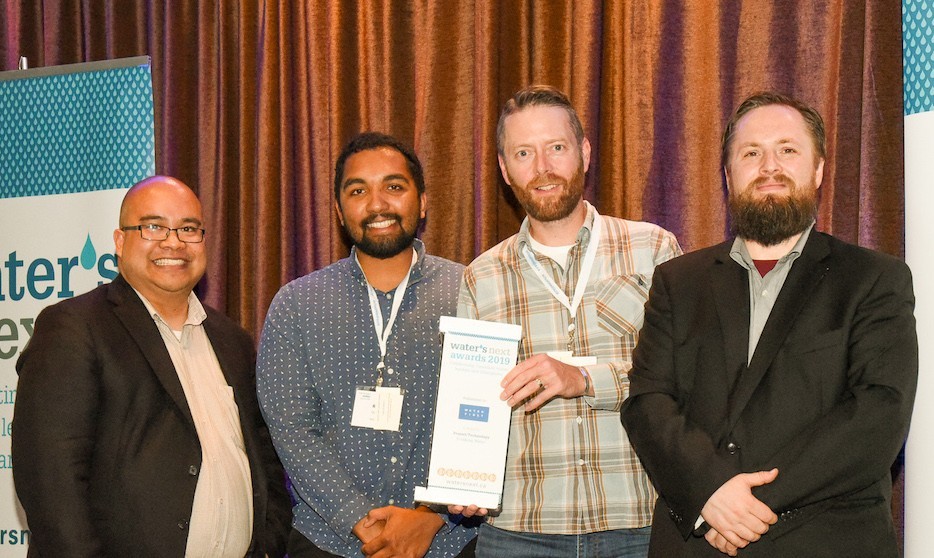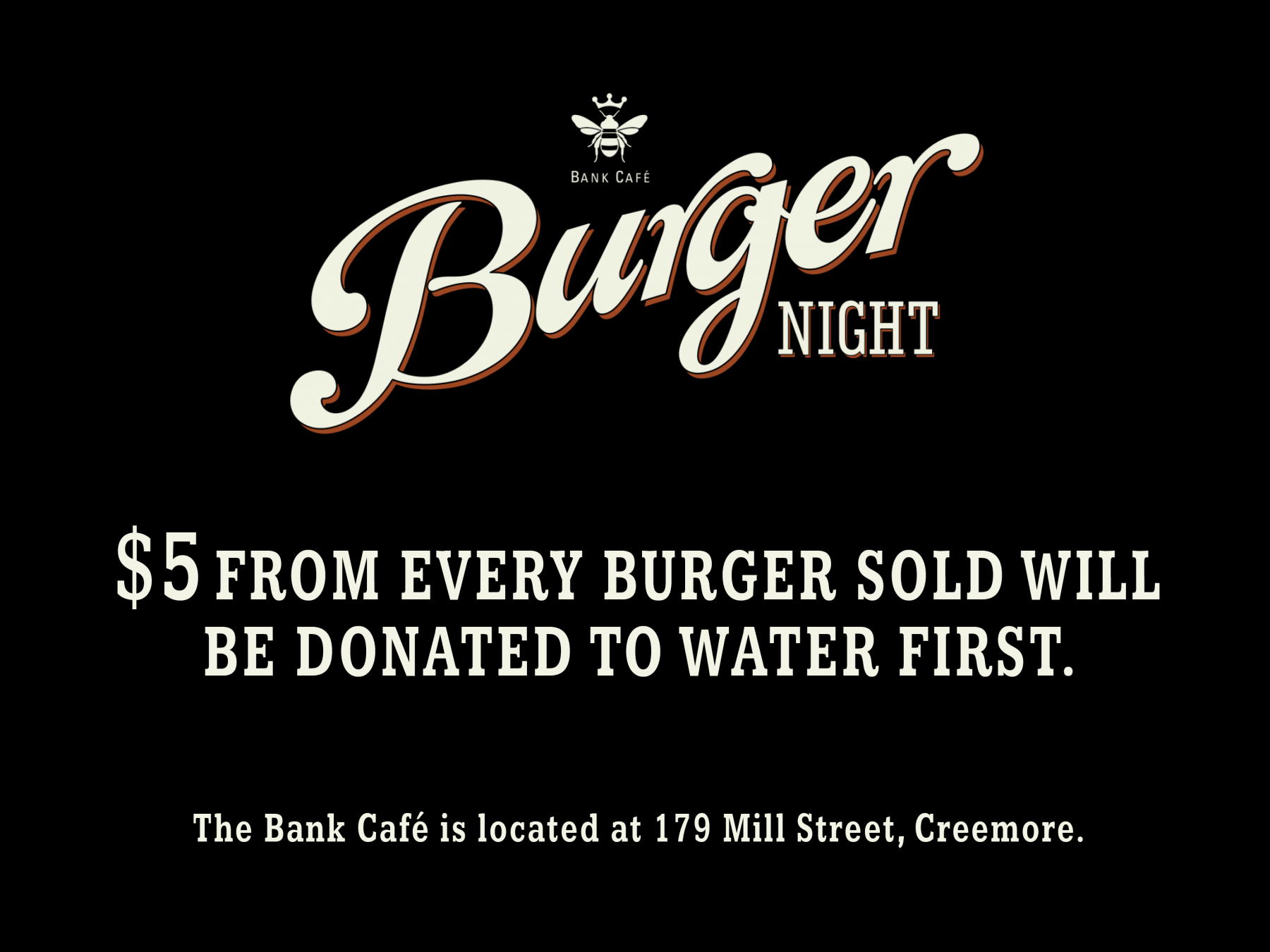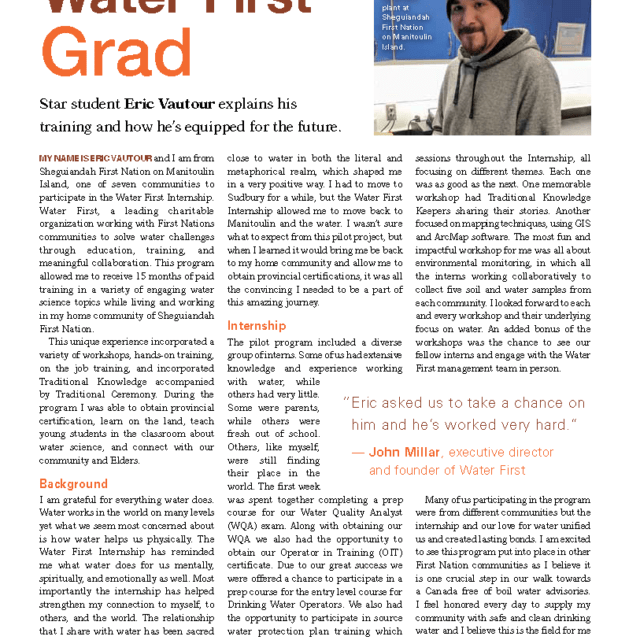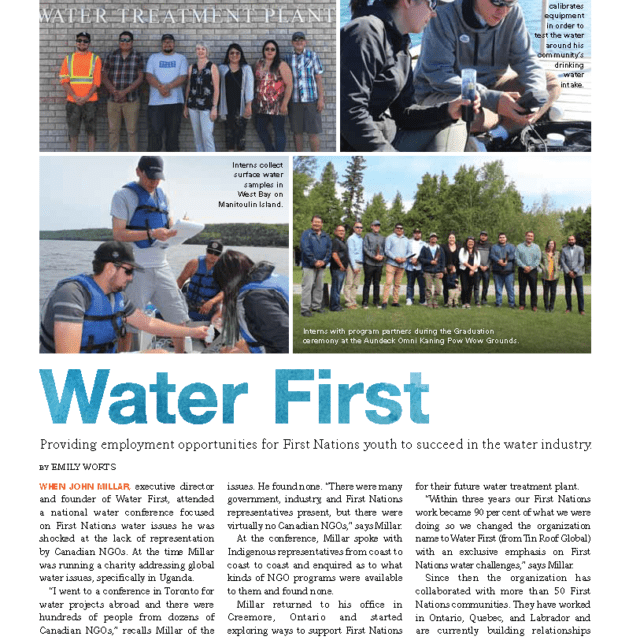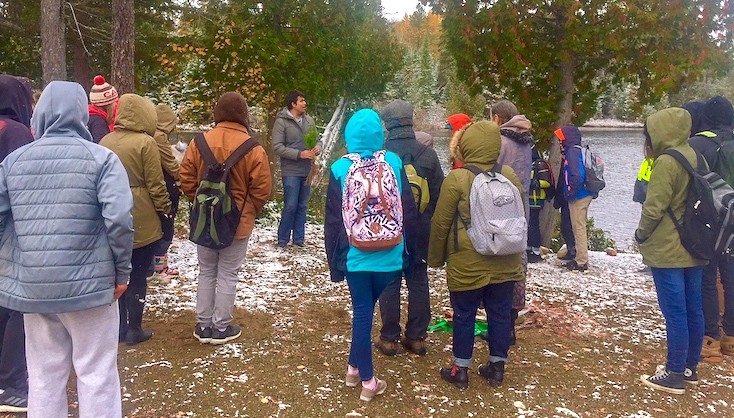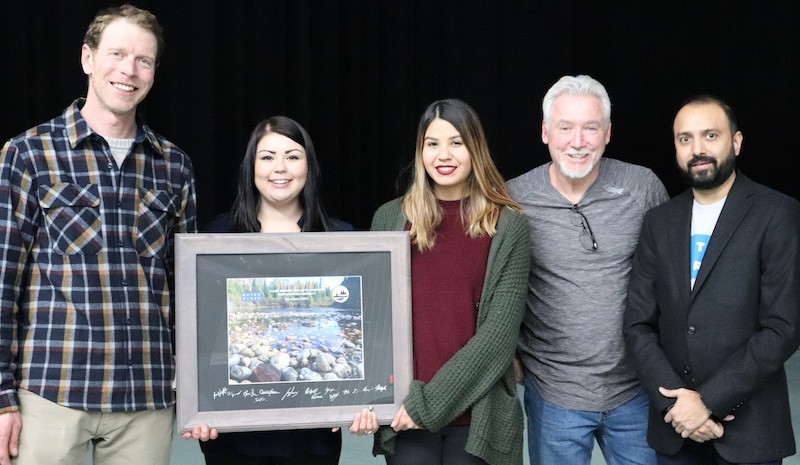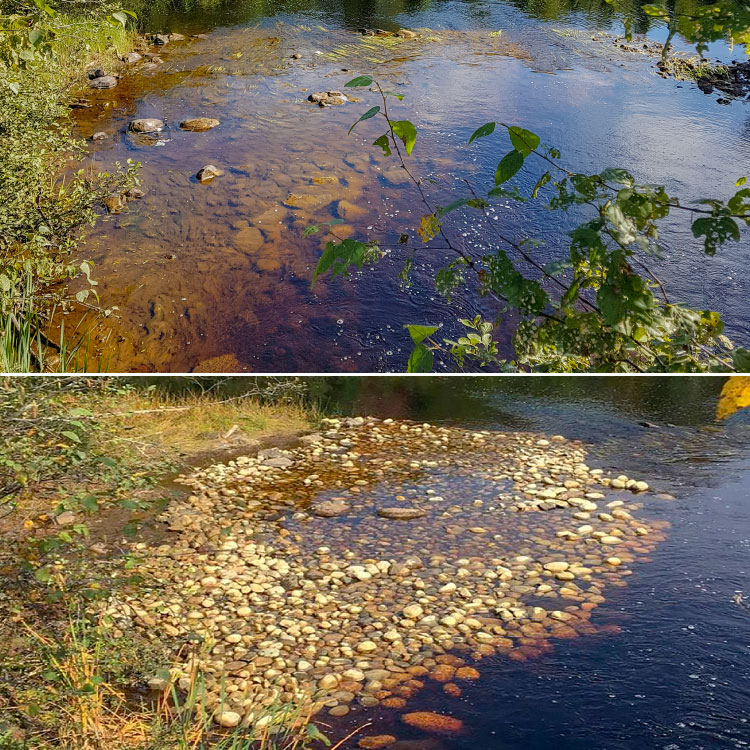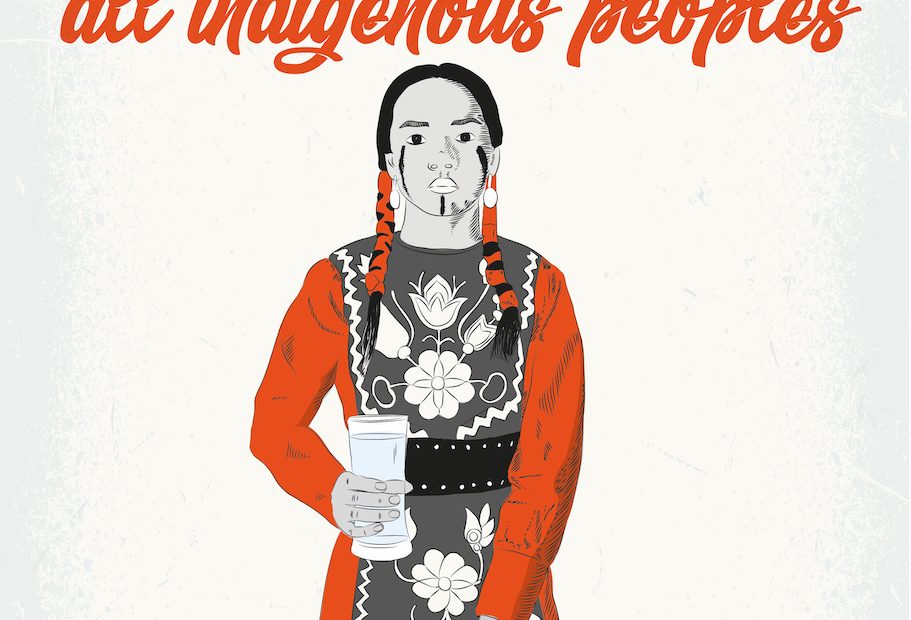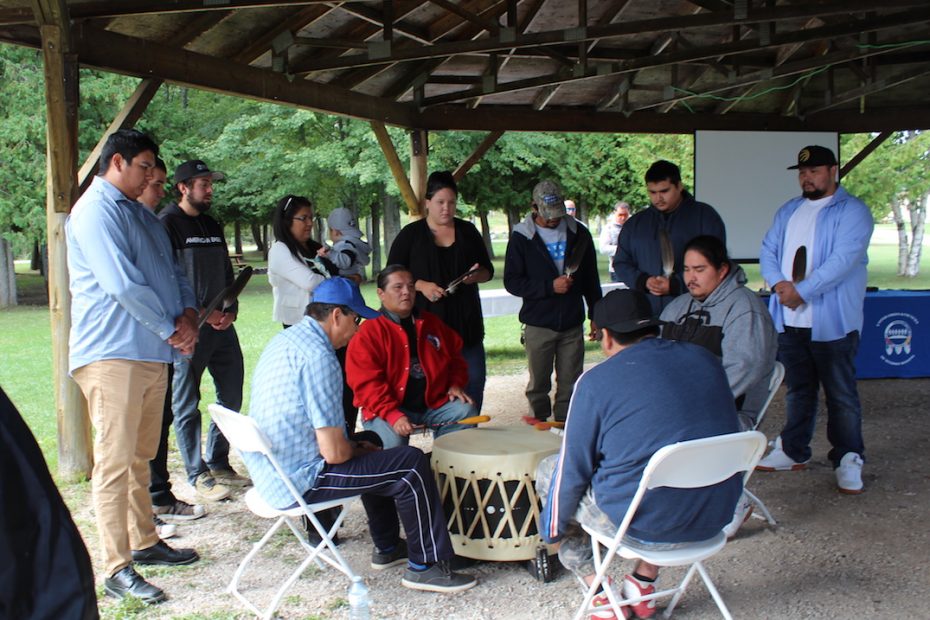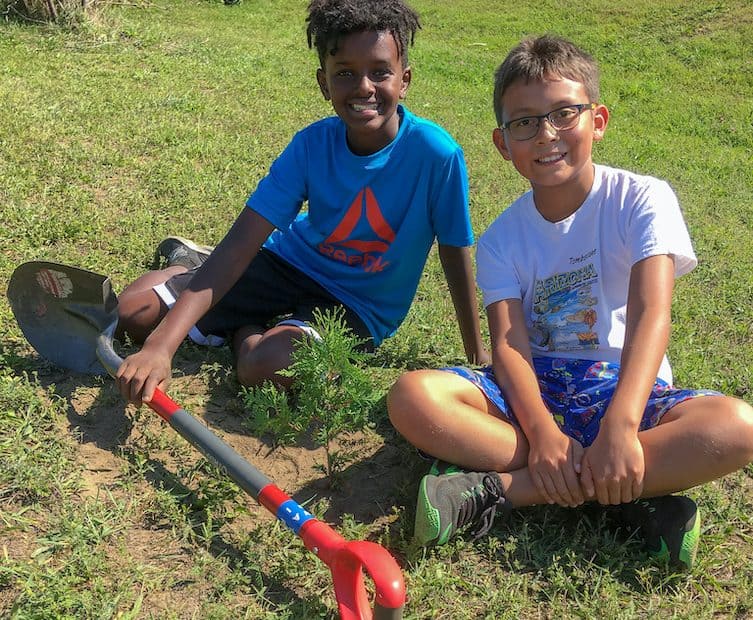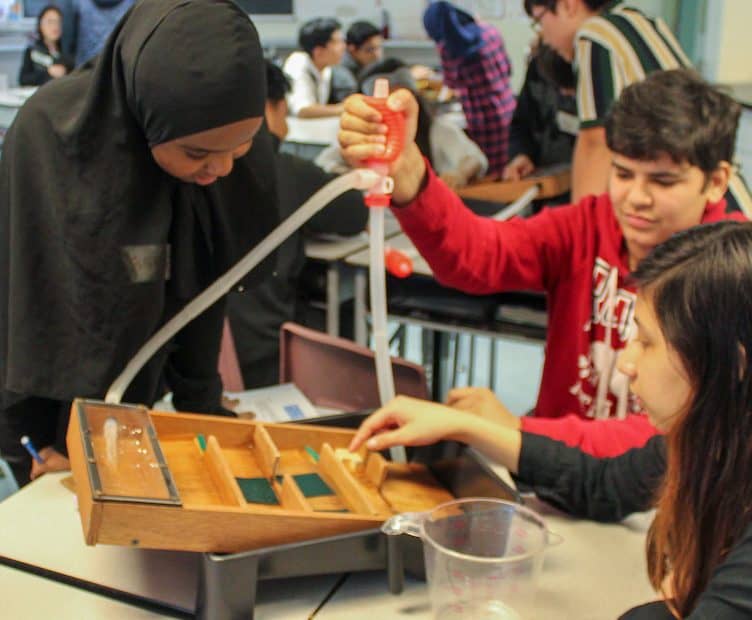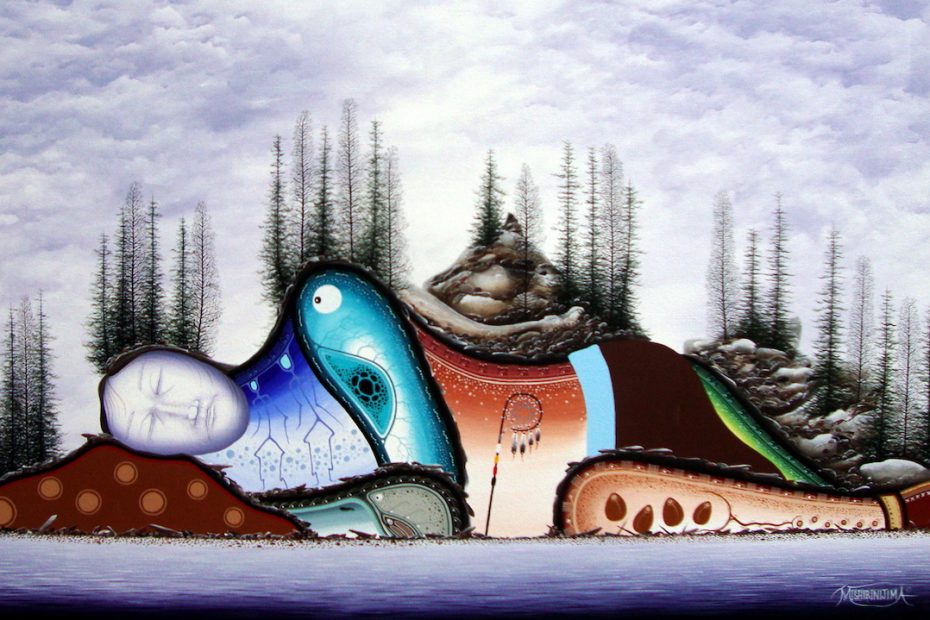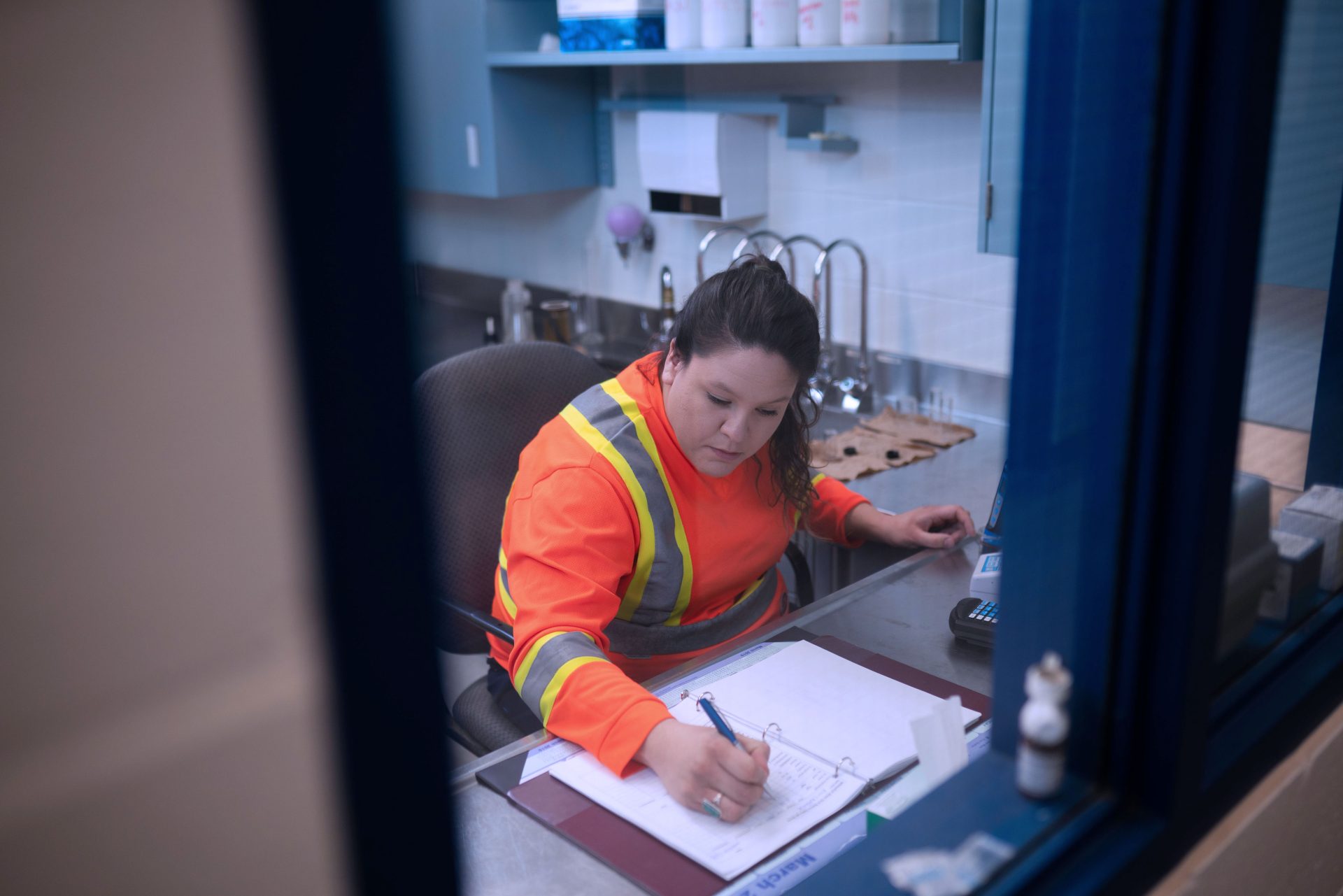Fall 2023
The latest news and updates on our programs.
Contents:
Graduation Day! 🎓
Celebrating the next generation of Indigenous water treatment plant operators
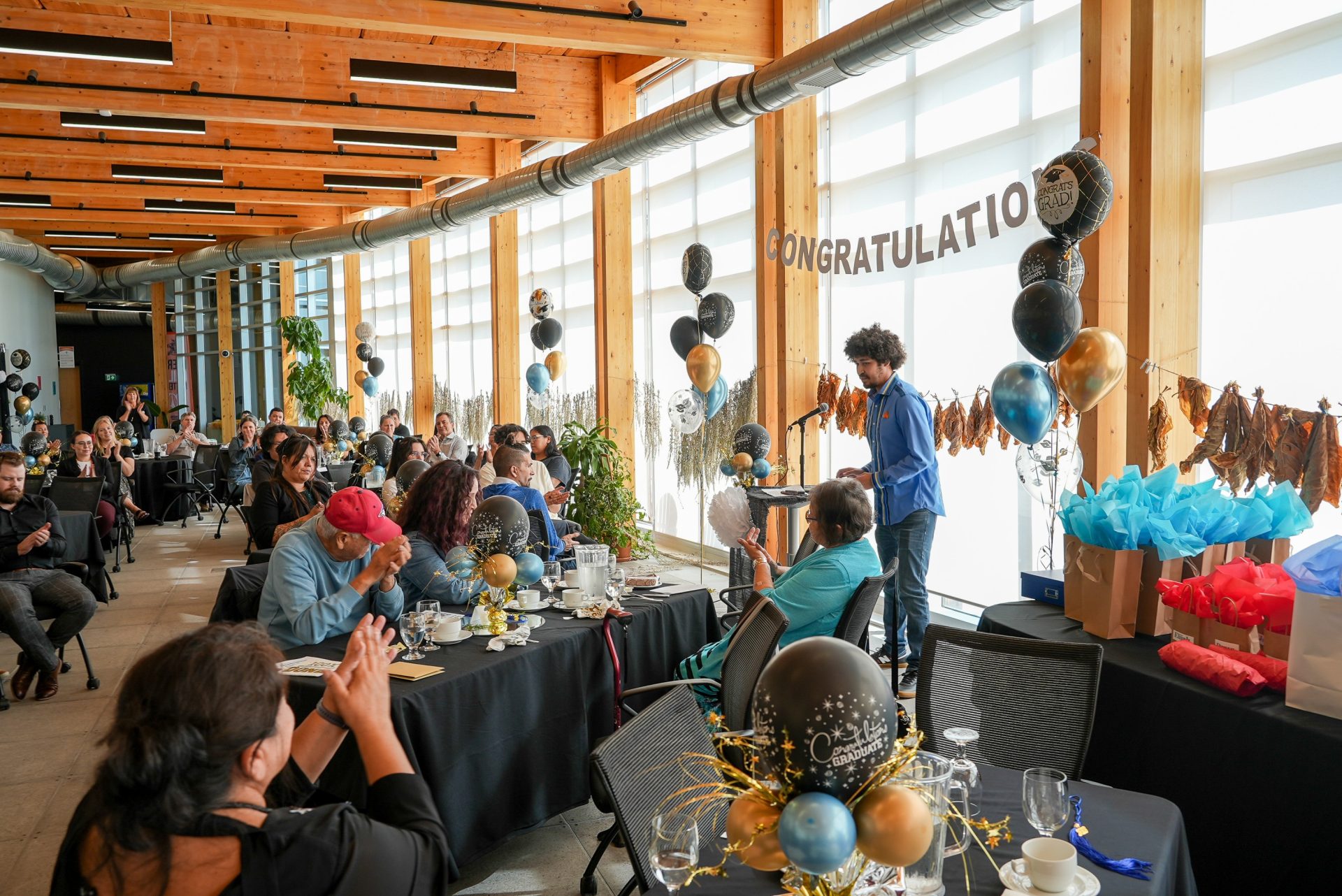
Graduation often marks the end of a journey. For the Indigenous youth and community members of Mamaweswen, The North Shore Tribal Council, who recently completed their Drinking Water Internship Program, graduation is just the beginning.
In late September Mamaweswen and Water First celebrated 11 interns on their graduation from the 15-month Drinking Water Internship Program. The Internship includes a paid training program where interns obtain entry-level certifications required to begin careers in water treatment. Sustainable access to safe, clean water in Indigenous communities in Canada continues to be a critical issue, and as qualified, local personnel, graduates bring technical skills and capacity to communities to ensure access to safe, clean drinking water for the long term.
Following graduation, interns join the Water First Alumni Network to stay engaged, build local networks and access opportunities for ongoing professional development and peer support.
“In the last 15 months, here with Water First, I’ve seen that we don’t have to look too far for inspiration and that we each have the potential to make that inspiring contribution to others. When you leave here today, celebrate what you’ve accomplished, but look forward with an eye towards how you too can be that inspiration to others.”
Nigel Debassige, Valedictorian
Atikameksheng Anishnawbek
READ MORE
The North Shore Tribal Council Drinking Water Internship Program began in June 2022 and marks Water First’s fourth successful Drinking Water Internship Program completed to date. The program was funded through the North Shore Tribal Council member First Nations employment and training program, together with the support of Water First donors.
Water First has collaborated with 37 First Nations communities through the Drinking Water Internship Program. Interns have worked approximately 98,000 hours in their local water plant, and 46 interns have successfully graduated from the program. A fifth internship program is underway with Ogemawahj Tribal Council, and Manitoba’s first internship program is soon to be launched.
Over the course of the North Shore Tribal Council Drinking Water Internship Program, each intern accumulated 1,800 hours of on-the-job experience in water treatment plants, which is part of the water operator in training (OIT) certification process. Interns pursued additional water operator certification exams, including water quality analyst and technical training like GIS and water sampling, leading to jobs in water treatment and in the environmental water field.
In Canada, 14% of First Nations communities are affected by a drinking water advisory; in Ontario, it’s 25%. The challenges are complex and layered. Communities may face issues relating to infrastructure, source water quality, or having enough trained people to manage water systems – or more than one of these issues at a time. Water First works with Indigenous communities that have identified education and training as part of their solution to the water crisis. Safe water needs skilled people. Learn more at www.waterfirst.ngo.
“Clean, safe, potable drinking water is a fundamental need in our communities. The success of this program has enhanced our community’s capacity to meet future demand. Congratulations to our Interns who worked hard to achieve their certifications in the water industry. We are proud of your accomplishments.”
Allan Moffatt, CEO
Mamaweswen, The North Shore Tribal Council
Up and Running 🏃🏽♂️
Our 5th Internship Program is well underway
The latest Internship Program, a partnership with Ogemawahj Tribal Council, was launched in June 2023, with 7 interns from 5 communities beginning their journeys to becoming water treatment plant operators. After gathering in Rama First Nation to complete the first of many in-person training workshops together over the course of the program, the group is now in full swing. The group has also already gathered for a week to explore the importance of mapping and GIS and to prepare for and write their Operator in Training and small systems exams. Next, the group will gather in early November to prepare for and write their Entry Level Course exam.
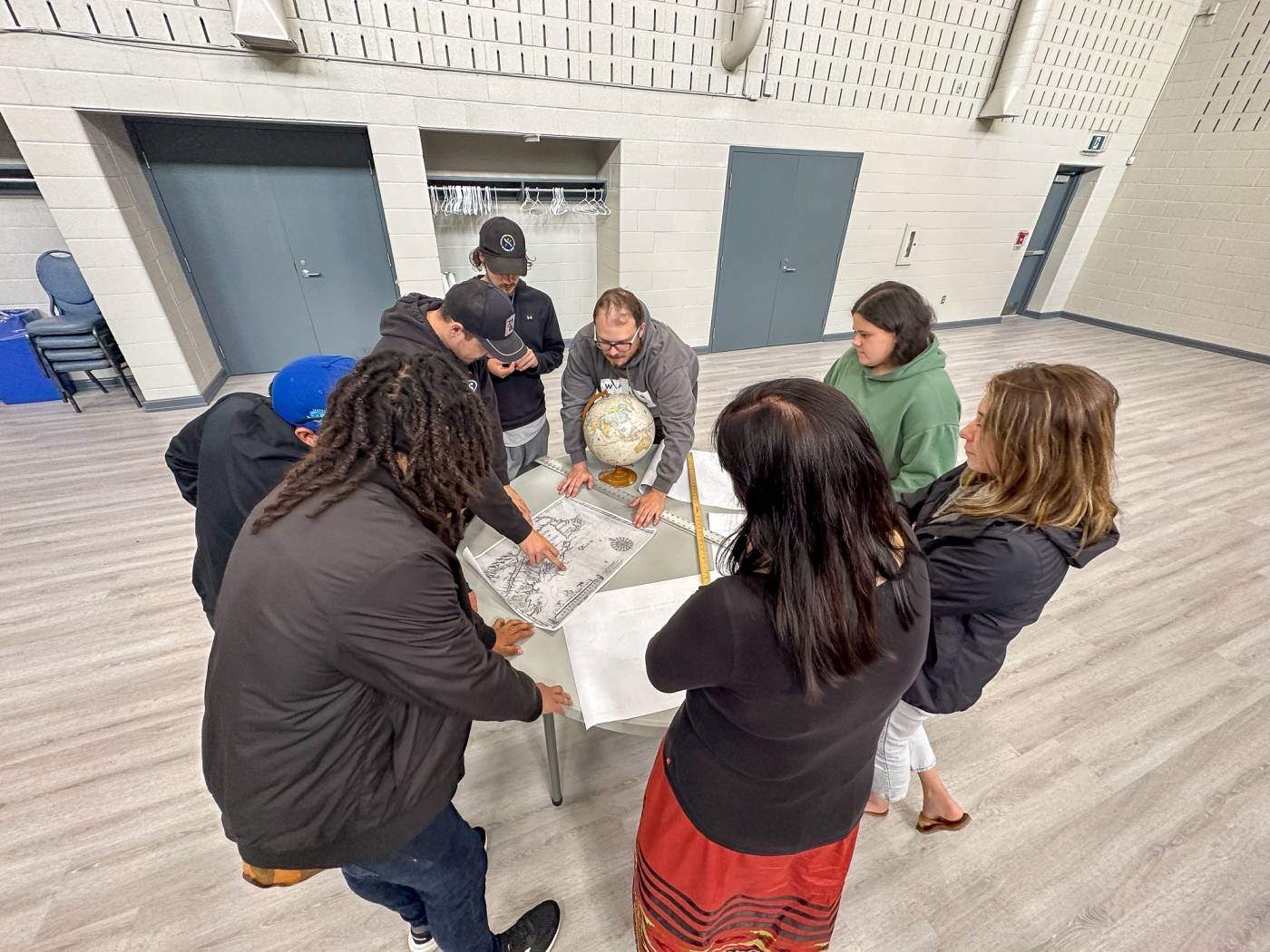
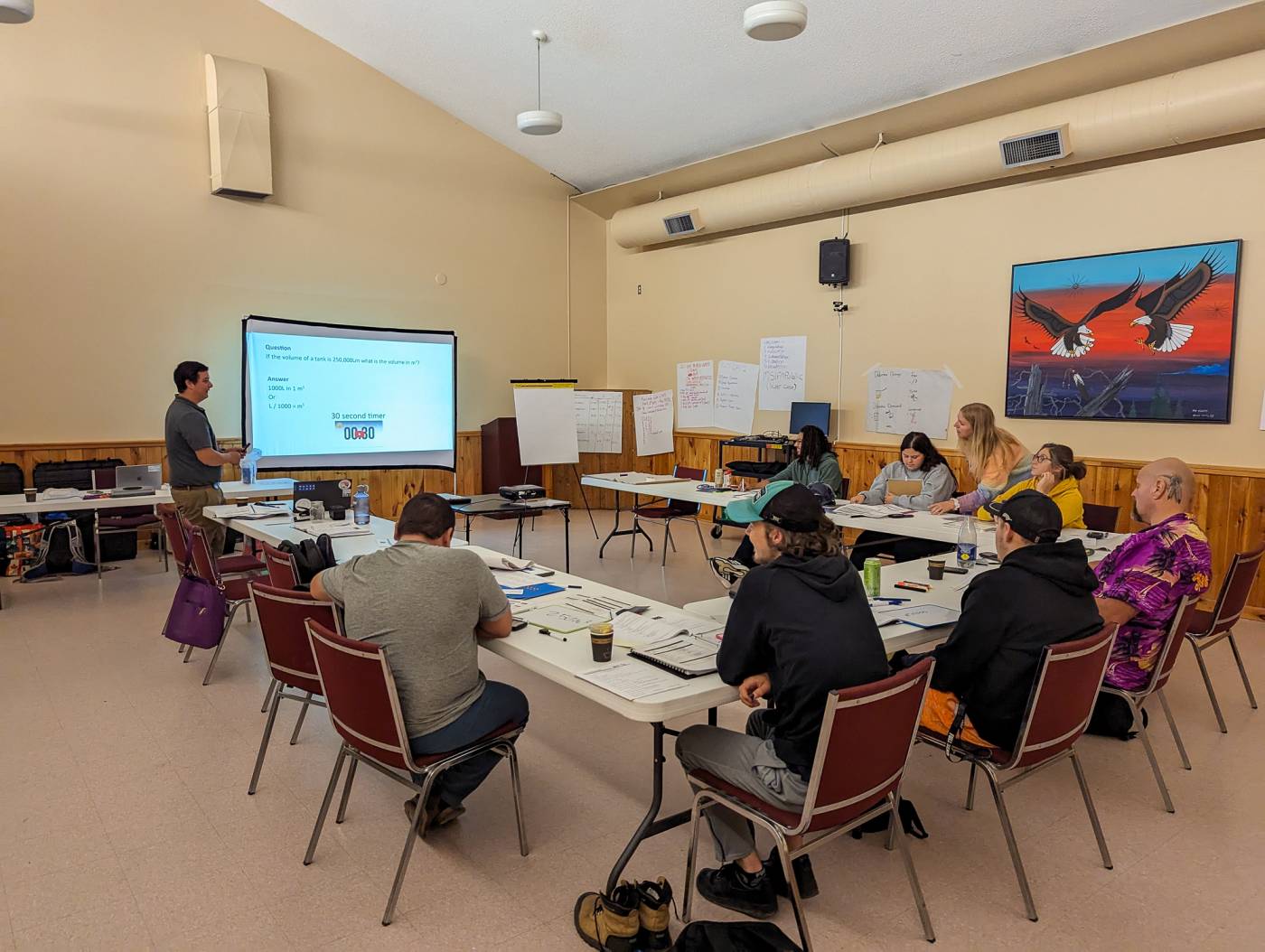
Save the date: November 30th! 🗓
Get ready for our next virtual event
Interested in hearing from participants in the Drinking Water Internship Program? Mark your calendar for Safe Water Needs Skilled People! Join us on November 30th at 12:00-1:30 PM ET (9:00 AM PT, 10:00 AM MT, 11:00 AM CT, 1:00 PM AT, 1:30 PM NFLD) for an opportunity to hear impactful stories from Water First staff, interns and graduates of our programs and from our Indigenous Advisory Council. Click the button below to RSVP.
Summer Success Stories ☀️
Earning high school credits through experiential learning
Earning high school credits is a priority for Water First and our students. We make this happen in our Summer Credit Program by emphasizing learning in a relevant and meaningful way. Integrating learning on local lands with guidance and teachings from Elders and Knowledge Keepers, water organizations and community programs, translates to buy-in from students, a love of learning, and ultimately success.
This Summer Credit Program, co-delivered by certified educators at Water First along with plenty of community collaborators, is a multi-week education program for youth in school in Indigenous communities. By participating in the land-based, experiential learning program, which is full of fun, hands-on water science activities and collaborations, students gain a Geography or Environmental Science high school credit! Students gain credits towards high school graduation in a way that meets their needs, allowing them to continue in their learning journey. Hands-on, experiential learning is prioritized as an alternative to mainstream teaching methods.
For the third year in a row, the program was delivered this summer with students from Beausoleil First Nation on Christian Island, as well as a second year of programming with students from Chippewas of Nawash Unceded First Nation and Saugeen First Nation on the Bruce Peninsula, and new this year, the Schools team worked with students from Sheshegwaning First Nation on Manitoulin Island.
Water First awarded 33 high school credits as a result of this summer’s credit program!
We’re excited to announce that communities continue to show interest in our summer programs, and we are exploring additional programs with partners. Stay tuned for future updates.
“During this week, some students told me they struggle to focus when sitting at a desk all day and often get removed from their school classrooms for being too disruptive. Yet these students were some of the most engaged and inquisitive participants in this outdoor experiential learning program.
I ended the week with a quiet realization that we were helping students, who simply may not fit into the mold of a traditional classroom, be successful and achieve their goals.”
Caleb Girard, reflecting on his time with students from Saugeen First Nation and Chippewas of Nawash Unceded First Nation
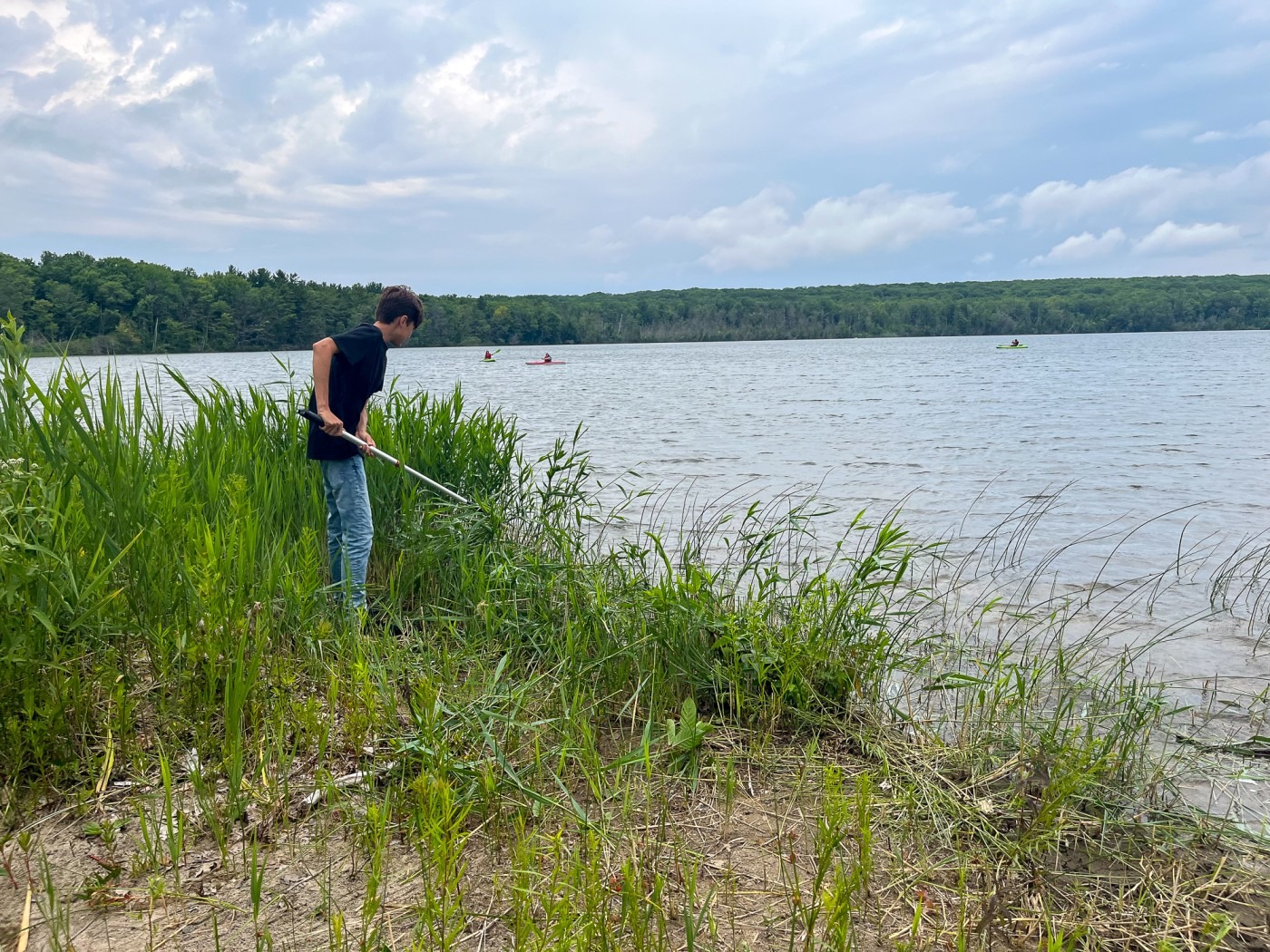
Our 3rd year of partnering on a Summer Credit Program with Beausoleil First Nation
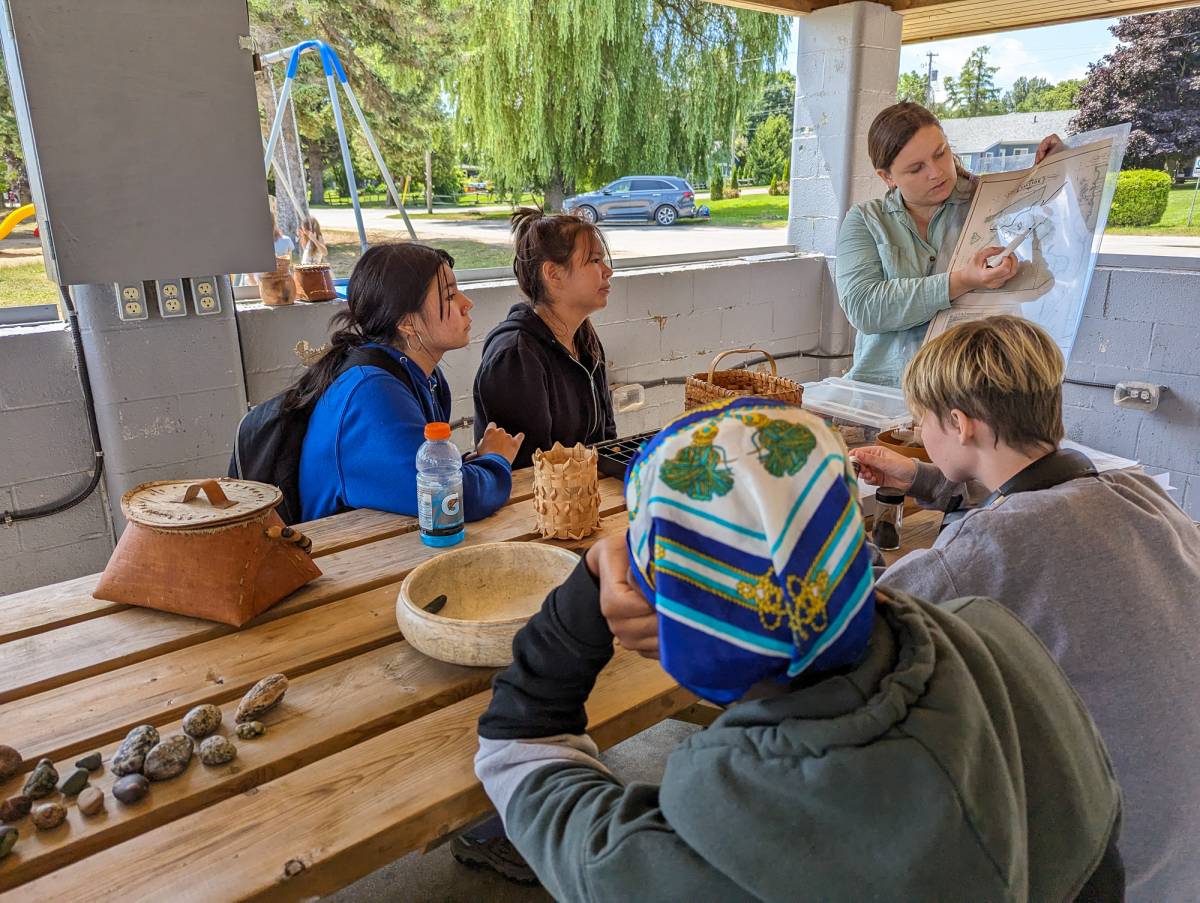
2 years of partnering with students from Chippewas of Nawash Unceded First Nation and Saugeen First Nation
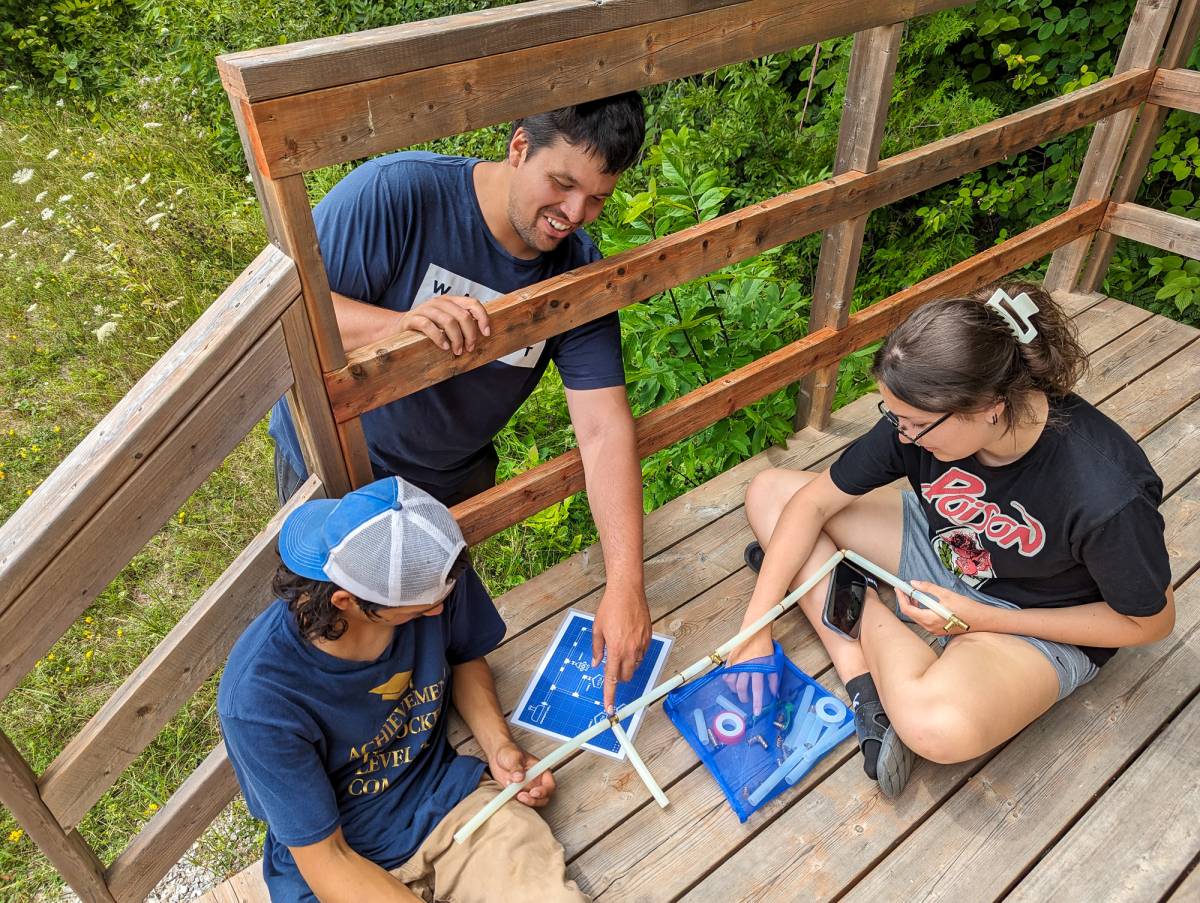
New this year: a Summer Credit Program delivered to students from Sheshegwaning First Nation
Meet Aiden 👋🏼
Aiden began his journey with Water First as a student in a week-long school program back in 2019. Since then Aiden has participated in four Water First school workshops and Water First’s Summer Credit Program. In addition to learning the ins and outs of water sampling and tackling the local phragmites problem Aiden enjoyed the plethora of outdoor activities, like kayaking, which are integral parts to Water First Programming.
This past summer Aiden joined Water first once again but this time as an assistant! Thank you Aiden for all your valuable help over the past few months assisting with in-school workshops and all of our outdoor learning.
Better Together 🌊
Deeper relationships lead to greater impact
At Water First, there’s no better feeling than getting invited back to a community to collaborate on a new project. For Water First, the most successful projects springboard into enhanced partnerships and deeper relationships. When Cory Girard, Project Manager for environmental water at Water First, returned to Brunswick House First Nation (BHFN) in early July 2023, she experienced this feeling firsthand.
Brunswick House First Nation is located about 150 kilometres northeast of Sault Ste. Marie. Girard has visited the community three times over the past year to train BHFN staff on the technical aspects of their climate change monitoring program, by tracking the effects of climate change on the waters and plants most heavily relied on by the community. After a successful field season in 2022, Water First was asked to return for training on a new-and-improved climate change monitoring program.
Read more about the inspiring journey of Santana, Shawn, Paradise and the growing BHFN team, who have worked tirelessly over the past year to enhance their climate change monitoring program, highlighting the connections of cultural activities like water ceremonies and careful observation of plants, animals and water sources to climate action.
“My goal for this project is to create climate change awareness in the community and document the long-term effects of climate change. I would like to see the Mountbatten Climate Change Project continue to strive for years to come.
Climate change means to me that Mother Earth is in pain, and she needs more people to protect the water, the trees, the ground and everything in between.”
Santana Vanbuskirk, Environmental Water Program Intern
Brunswick House First Nation
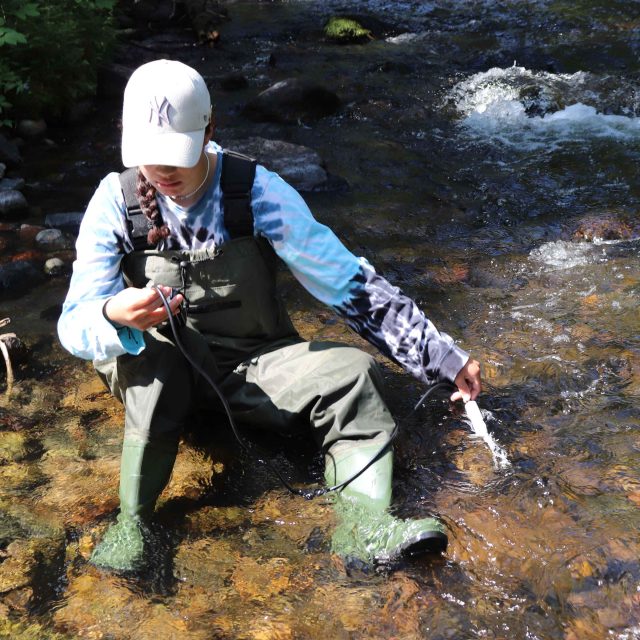
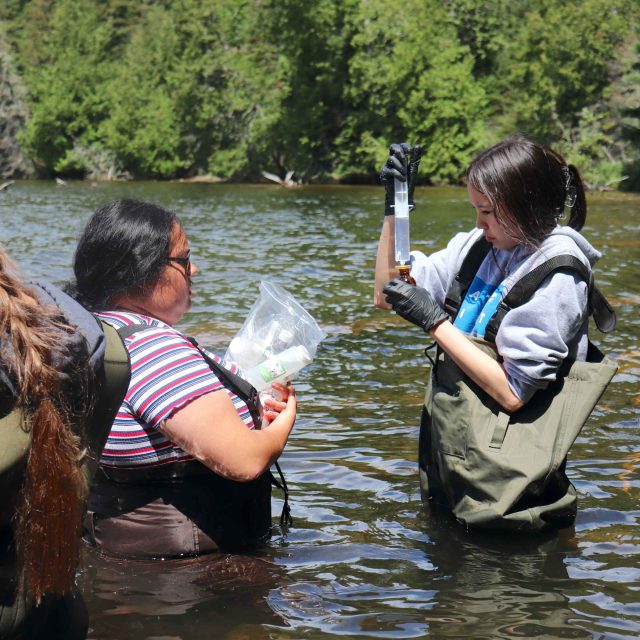
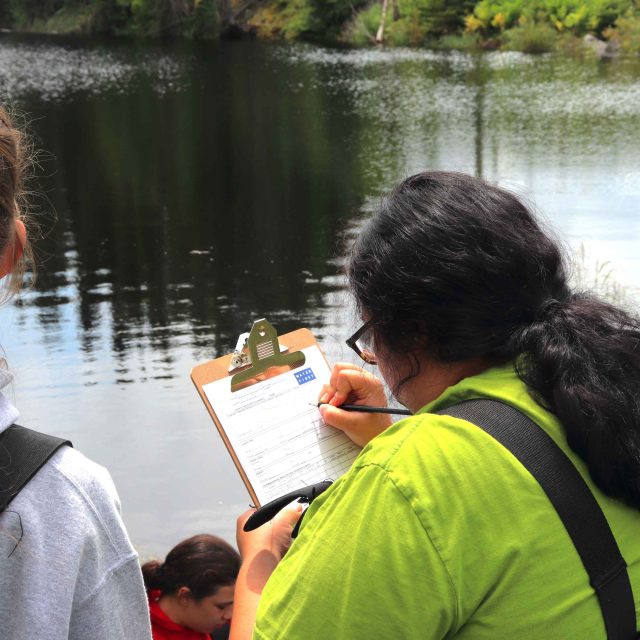
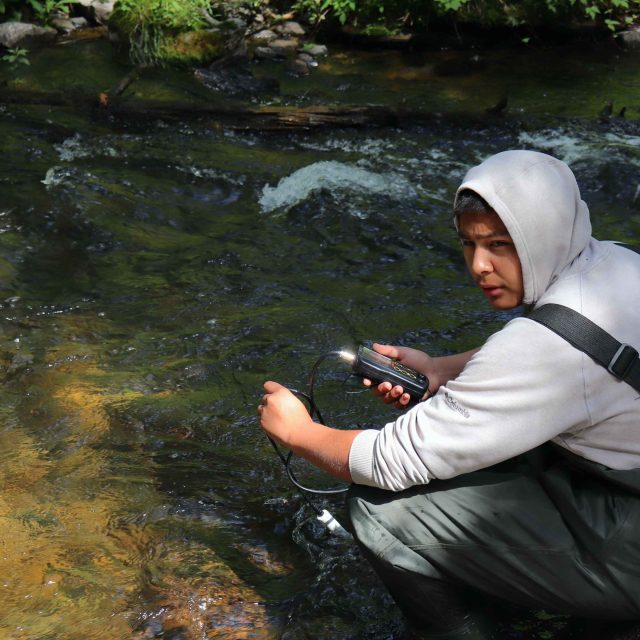
Park Lake, Labrador 🎣
Restoration for the future
After acquiring an old fishing lodge on Park Lake, Sheshatshiu Innu First Nation (SIFN) in central Labrador is embarking on a 10-year journey to clean up and improve the lodge site to run a 100% Innu-owned and operated tourism lodge, just south of Akami-Uapishkᵁ-KakKasuak-Mealy Mountains National Park Reserve. In 2021, Water First began working with SIFN to develop a long-term fish habitat monitoring and fish habitat restoration program for Park Lake.
For the second time in 2023, members from the Environmental Water team returned to beautiful Park Lake in June, spending two weeks out on the water trapping fish with Fyke nets for assessment. The team also continued the water quality monitoring work that has been conducted over the past two years.
The team visited once more in September, working with Elders, looking at habitats for fish species like brook trout and salmon, going over data management techniques and getting the opportunity to collaborate with local Knowledge Keepers on the continuation of the project.
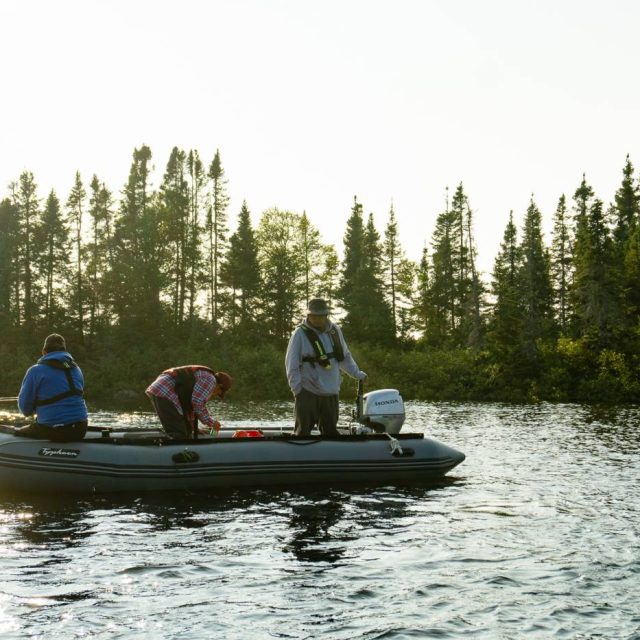
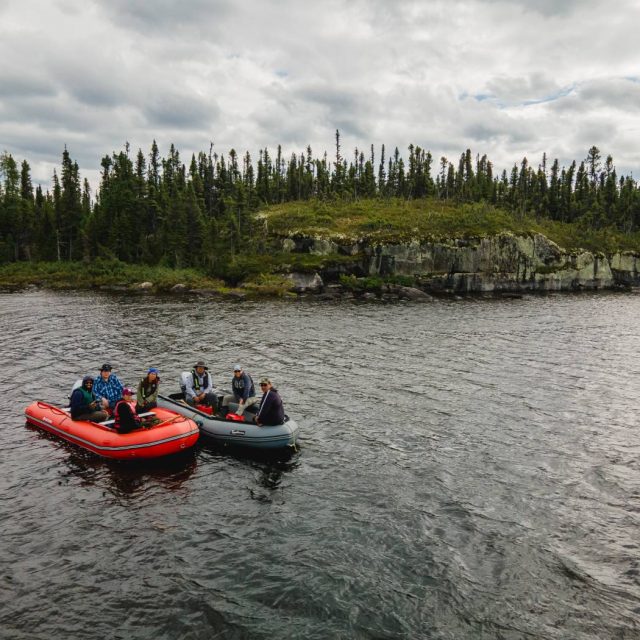
Charity Intelligence ⭐️
Water First Gets 5 Stars
Water First has been rated a 100 charity in Canada and was given 5 stars by Charity Intelligence, an organization that conducts assessments of charitable organizations to promote transparency and accountability with a focus on results. Charitable Intelligence’s rating is based on financial transparency, results reporting, demonstrated impact, need for funding, and cents to the cause.

Fall greetings from Water First!
From all of us, thank you for being a supporter and champion of Water First’s mission.
